Ph.D. Specialization in Data Science
The ph.d. specialization in data science is an option within the applied mathematics, computer science, electrical engineering, industrial engineering and operations research, and statistics departments..
Only students already enrolled in one of these doctoral programs at Columbia are eligible to participate in this specialization. Students should fulfill the requirements below in addition to those of their respective department's Ph.D. program. Students should discuss this specialization option with their Ph.D. advisor and their department's director for graduate studies.
Applied Mathematics Doctoral Program
Computer Science Doctoral Program
Decision, Risk, and Operations (DRO) Program
Electrical Engineering Doctoral Program
Industrial Engineering and Operations Research Doctoral Program
Statistics Doctoral Program
The specialization consists of either five (5) courses from the lists below, or four (4) courses plus one (1) additional course approved by the curriculum committee. All courses must be taken for a letter grade and students must pass with a B+ or above. At least three (3) of the courses should come from outside the student’s home department. At least one (1) course has to come from each of the three (3) thematic areas listed below.

Specialization Requirements
- COMS 4231 Analysis of Algorithms I
- COMS 6232 Analysis of Algorithms II
- COMS 4111 Introduction to Databases
- COMS 4113 Distributed Systems Fundamentals
- EECS 6720 Bayesian Models for Machine Learning
- COMS 4771 Machine Learning
- COMS 4772 Advanced Machine Learning
- IEOR E6613 Optimization I
- IEOR E6614 Optimization II
- IEOR E6711 Stochastic Modeling I
- EEOR E6616 Convex Optimization
- STAT 6301 Probability Theory I
- STAT 6201 Theoretical Statistics I
- STAT 6101 Applied Statistics I
- STAT 6104 Computational Statistics
- STAT 5224 Bayesian Statistics
- STCS 6701 Foundations of Graphical Models (joint with Computer Science)
Information Request Form
Ph.d. specialization committee.
- View All People
- Faculty of Arts and Sciences Professor of Statistics
- The Fu Foundation School of Engineering and Applied Science Professor of Computer Science
Richard A. Davis
- Faculty of Arts and Sciences Howard Levene Professor of Statistics
Vineet Goyal
- The Fu Foundation School of Engineering and Applied Science Associate Professor of Industrial Engineering and Operations Research
Garud N. Iyengar
- Data Science Institute Avanessians Director of the Data Science Institute
- The Fu Foundation School of Engineering and Applied Science Professor of Industrial Engineering and Operations Research
Gail Kaiser
Rocco a. servedio, clifford stein.
- The Fu Foundation School of Engineering and Applied Science Wai T. Chang Professor of Industrial Engineering and Operations Research and Professor of Computer Science
John Wright
- The Fu Foundation School of Engineering and Applied Science Associate Professor of Electrical Engineering
- Data Science Institute Associate Director for Academic Affairs
- College of Science
- Mathematical Sciences
- academic-programs

Data science is an emerging discipline that combines mathematics, computing and statistics to develop and apply methodologies required for data-driven industries. There is a high demand for data science professionals in many industries including technology, government, utilities and banking.
The department of Mathematical Sciences offers a PhD program in Data Science to prepare and train individuals who can immediately obtain positions in industry using data to guide decision-making. The program is interdisciplinary and open to individuals from many backgrounds.
Each student's program will be designed to meet individual interests and goals.
Application Deadlines
Deadlines for spring admission:.
- October 1 for International and domestic applicants.
Deadlines for Fall admission:
- February 1 for International and domestic applicants.
For both semesters, there may be special cases after the deadlines that will merit review for admission and funding.
Admission Requirements
Entry into the program requires Calculus I, II, and III (MATH 1411, MATH 1312, and MATH 2313), Matrix Algebra (MATH 3323), Principles of Mathematics (MATH 3325), Introduction to Analysis (MATH 3341), Probability (STAT 3330), and Statistics Inference (STAT 4380) or the equivalent of these courses.
In addition, it is recommended that the student possesses a good working knowledge of a high level computer language such as C++, JAVA, SAS, R (Splus), Python, or Matlab.
A complete application to the graduate program requires official transcripts, a statement of purpose, GRE scores, and 3 letters of recommendation. This application packet is reviewed for admission and funding for Teaching Assistantships by the program's faculty committee. A separate application for a Teaching or Research Assistantship is not needed.
A minimum TOEFL score of 213 (550 or higher on paper based TOEFL; minimum score of 6.5 on the IELTS; minimum score of 79 on the IBT - Internet Based - TOEFL) is required for international applicants whose first language is not English or who have not completed a university degree in the U.S. or other English-Speaking institution.
Applicants who do not have all the prerequisite coursework for full admission into the Data Science PhD program may be provisionally admitted and will be required to complete the leveling courses after entry into the program.
Degree Requirements
The required number of credit hours depends on the candidate's previous course history and will be evaluated by the Director of the Ph.D. program. The general degree plan requirements, pending evaluation of previously taken courses, are:
| Core | 16 | 0-16 |
| Prescribed Electives | 12 | 6-12 |
| Statistical Data Science Theory | 3 | 0-3 |
| Statistical Data Science Applications | 3 | 0-3 |
| Mathematical Applications | 3 | 0-3 |
| Computing | 3 | 0-3 |
| Free Electives | 12 | 0 |
| Research (Collaborations) | 21 | 21 |
| Dissertation | 6 | 6 |
All students in the program will be expected to complete and take qualifying exams for the following core required graduate courses:
- DS 6380 and DS 6381: Mathematical Foundations of Data Science I and II
- DS 6474: Introduction to Data Mining
- MATH 6330: Computational Methods of Linear Algebra
- STAT 6385: Statistics in Research
The remaining courses will usually be selected from the list below:
- CS 6322: Topics in Advanced Database Systems
- CS 6334: Parallel and Concurrent Programming
- CS 6350: Advanced Algorithms
- CS 6361: Machine Learning
- CS 6362: Data Mining
- DS 6339: Data Visualization
- DS 6494: Statistical Data Mining
- DS 6335: Introduction to Data Science Collaborations (SC Lab)
- DS 6336: Mathematical Applications in Data Science
- DS 6382: Statistical Theory for Big Data
- DS 6384: Linear Models for Data Science
- DS 6386: Stochastic Differential Equations and Appl.
- DS 6388: Multivariate Stat. Met. High Dimensional Data
- DS 6390: Data Science Research Collaborative
- DS 6392: Advanced Computational Data Science
- MATH 6311: Topics in Applied Mathematics
- MATH 6329: Numerical Analysis
- MATH 6335: Techniques in Optimization
- MATH 6343: Numerical Solutions to Partial Diff. Eq.
- MATH 6321: Measure and Probability Theory
- STAT 6329: Statistical Programming
- STAT 6331: Sampling Theory
- STAT 6335: Experimental Design
- STAT 6336: Categorical Data Analysis
- STAT 6354: Post Genomic Analysis
- STAT 6370: Special Topics
- STAT 6386: Stochastic Processes
- STAT 6388: Multivariate Data Analysis
- STAT 6390: Non-parametric Statistics
- STAT 6391: Time Series Analysis
- STAT 6392: Statistical Computing
- STAT 6393: Survival Analysis
- STAT 6397: Longitudinal Data Analysis
- STAT 6428: Introduction to Statistical Analysis
For course description search the UTEP's Course Catalog.
Apply on the Graduate School website , specifying the semester you want to start the PhD degree in Data Science.
Accepted applicants are eligible and may be considered for Teaching or Research Assistantships positions (available for students attending school full-time). IF funded, applicants will receive an offer letter for either a Teaching Assistant (TA) or Research Assistant (RA) position. These positions provide an in-state tuition waiver if required.
For the most current information on degrees offered and their requirements, please visit the Mathematical Sciences section of UTEP's Graduate Catalog.
C O R E F A C U L T Y
A s s o c i a t e d f a c u l t y, j o i n t h e p r o g r a m .

Frequently Asked Questions
S T U D E N T H I G H L I G H T S
Current students
Connect With Us
The University of Texas at El Paso Department of Mathematical Sciences Bell Hall 124 500 W University Ave El Paso, Texas 79968-0514
E: [email protected] P: 915-747-5761

Natural Sciences and Mathematics
Mathematical sciences.
Doctor of Philosophy in Data Science and Statistics
The program offers extensive coursework and intensive research experience in theory, methodology, and applications of statistics (see degree requirements ).
- Faculty members with broad and diverse research interests are available to supervise doctoral dissertations .
- Financial support in the form of assistantships, full tuition support, and scholarships and awards are provided. Additional scholarships are available for US citizens and permanent residents.
- Our students, both domestic and international, have a strong record of starting in full-time jobs right after graduation .
- Students have opportunities to participate in active Statistics Seminar series and the departmental Colloquium series.
- To enhance career prospects, students can pursue Graduate Certificate in Data Science , and possibly use the certificate courses to fulfill the PhD degree elective requirements.
- NSM Career Success Center is available to support professional development and experiential learning of students.
- GRE test score is not required for admission.
100% of our 22 PhD graduates since 2020, both domestic and international, secured full-time employment within a few months of receiving their degrees.
Placement of 2022 & 2023 PhD Graduates
| 2023 | Postdoctoral Fellow, T. H. Chan School of Public Health, Harvard University |
| 2023 | Assistant Professor, Peter O’Donnell School of Public Health, UT Southwestern Medical Center |
| 2023 | Principal Biostatistician, Regeneron Pharmaceuticals, Tarrytown, NY |
| 2023 | Biostatistician, Medpace Inc. |
| 2023 | Assistant Vice President, Citibank, Tampa, FL |
| 2022 | Senior Data Science Analyst, Discover Financial Services |
| 2022 | Statistician, MacroStat Clinical Research Co., Ltd., Shanghai |
| 2022 | Assistant Professor, Saudi Electronic University |
| 2022 | Analyst, MUFG Bank |
See a more complete list
Assistantships
Graduate Teaching Assistantships are offered to qualified PhD students on a competitive basis. These assistantships include a monthly stipend (currently set at $2,400) along with a full tuition waiver (covering 9 credit hours per term in the Fall and Spring semesters). The assistantship additionally covers the cost of health insurance purchased through the university and most fees. Graduate Research Assistantships for advanced PhD students are also available on some faculty members’ research grants. Typically, assistantship support is provided for five years and encompasses the Summer semester as well.
All admitted students are considered for assistantships; no separate application is necessary.
Scholarships, Fellowships & Awards
PhD students are additionally supported through the following awards:
- NSM McDermott PhD Admission Fellowship (for highly qualified new students, offered at the time of admission)
- Dean’s Fellowship and EEF Scholarship (for highly qualified new students who are U.S. citizens and permanent residents, offered at the time of admission)
- Julia Williams Van Ness Merit Scholarship and Mei Lein Fellowship
- Outstanding Teaching Assistant of the Year Award
- Dean of Graduate Education Dissertation Research Award
- Best Dissertation Award , David Daniel Thesis Award , and Outstanding Graduate Student Award
Conference Travel Support
NSM Conference Travel Award and Betty and Gifford Johnson Travel Award are available to provide financial support to PhD students to present their research at professional conferences.
- How To Apply
- Frequently Asked Questions
- Scholarships & Awards
- Office of Admissions and Enrollment
Graduate Resources
- Mathematics Research
- Statistics & Actuarial Science Research
- Graduate Advisors
- Mathematics Courses
- Statistics Courses
- Actuarial Science Courses
- Qualifying Exam Archive
- Office of Graduate Education
Ready to start your application?
Before you apply, visit our How to Apply page to get familiar with the admission requirements and application process.
DiscoverDataScience.org
PhD in Data Science – Your Guide to Choosing a Doctorate Degree Program

Created by aasif.faizal
Professional opportunities in data science are growing incredibly fast. That’s great news for students looking to pursue a career as a data scientist. But it also means that there are a lot more options out there to investigate and understand before developing the best educational path for you.
A PhD is the most advanced data science degree you can get, reflecting a depth of knowledge and technical expertise that will put you at the top of your field.

This means that PhD programs are the most time-intensive degree option out there, typically requiring that students complete dissertations involving rigorous research. This means that PhDs are not for everyone. Indeed, many who work in the world of big data hold master’s degrees rather than PhDs, which tend to involve the same coursework as PhD programs without a dissertation component. However, for the right candidate, a PhD program is the perfect choice to become a true expert on your area of focus.
If you’ve concluded that a data science PhD is the right path for you, this guide is intended to help you choose the best program to suit your needs. It will walk through some of the key considerations while picking graduate data science programs and some of the nuts and bolts (like course load and tuition costs) that are part of the data science PhD decision-making process.
Data Science PhD vs. Masters: Choosing the right option for you
If you’re considering pursuing a data science PhD, it’s worth knowing that such an advanced degree isn’t strictly necessary in order to get good work opportunities. Many who work in the field of big data only hold master’s degrees, which is the level of education expected to be a competitive candidate for data science positions.
So why pursue a data science PhD?
Simply put, a PhD in data science will leave you qualified to enter the big data industry at a high level from the outset.
You’ll be eligible for advanced positions within companies, holding greater responsibilities, keeping more direct communication with leadership, and having more influence on important data-driven decisions. You’re also likely to receive greater compensation to match your rank.
However, PhDs are not for everyone. Dissertations require a great deal of time and an interest in intensive research. If you are eager to jumpstart a career quickly, a master’s program will give you the preparation you need to hit the ground running. PhDs are appropriate for those who want to commit their time and effort to schooling as a long-term investment in their professional trajectory.
For more information on the difference between data science PhD’s and master’s programs, take a look at our guide here.
Topics include:
- Can I get an Online Ph.D in Data Science?
- Overview of Ph.d Coursework
Preparing for a Doctorate Program
Building a solid track record of professional experience, things to consider when choosing a school.
- What Does it Cost to Get a Ph.D in Data Science?
- School Listings

Data Science PhD Programs, Historically
Historically, data science PhD programs were one of the main avenues to get a good data-related position in academia or industry. But, PhD programs are heavily research oriented and require a somewhat long term investment of time, money, and energy to obtain. The issue that some data science PhD holders are reporting, especially in industry settings, is that that the state of the art is moving so quickly, and that the data science industry is evolving so rapidly, that an abundance of research oriented expertise is not always what’s heavily sought after.
Instead, many companies are looking for candidates who are up to date with the latest data science techniques and technologies, and are willing to pivot to match emerging trends and practices.
One recent development that is making the data science graduate school decisions more complex is the introduction of specialty master’s degrees, that focus on rigorous but compact, professional training. Both students and companies are realizing the value of an intensive, more industry-focused degree that can provide sufficient enough training to manage complex projects and that are more client oriented, opposed to research oriented.
However, not all prospective data science PhD students are looking for jobs in industry. There are some pretty amazing research opportunities opening up across a variety of academic fields that are making use of new data collection and analysis tools. Experts that understand how to leverage data systems including statistics and computer science to analyze trends and build models will be in high demand.
Can You Get a PhD in Data Science Online?
While it is not common to get a data science Ph.D. online, there are currently two options for those looking to take advantage of the flexibility of an online program.
Indiana University Bloomington and Northcentral University both offer online Ph.D. programs with either a minor or specialization in data science.
Given the trend for schools to continue increasing online offerings, expect to see additional schools adding this option in the near future.

Overview of PhD Coursework
A PhD requires a lot of academic work, which generally requires between four and five years (sometimes longer) to complete.
Here are some of the high level factors to consider and evaluate when comparing data science graduate programs.
How many credits are required for a PhD in data science?
On average, it takes 71 credits to graduate with a PhD in data science — far longer (almost double) than traditional master’s degree programs. In addition to coursework, most PhD students also have research and teaching responsibilities that can be simultaneously demanding and really great career preparation.
What’s the core curriculum like?
In a data science doctoral program, you’ll be expected to learn many skills and also how to apply them across domains and disciplines. Core curriculums will vary from program to program, but almost all will have a core foundation of statistics.
All PhD candidates will have to take a qualifying exam. This can vary from university to university, but to give you some insight, it is broken up into three phases at Yale. They have a practical exam, a theory exam and an oral exam. The goal is to make sure doctoral students are developing the appropriate level of expertise.
Dissertation
One of the final steps of a PhD program involves presenting original research findings in a formal document called a dissertation. These will provide background and context, as well as findings and analysis, and can contribute to the understanding and evolution of data science. A dissertation idea most often provides the framework for how a PhD candidate’s graduate school experience will unfold, so it’s important to be thoughtful and deliberate while considering research opportunities.
Since data science is such a rapidly evolving field and because choosing the right PhD program is such an important factor in developing a successful career path, there are some steps that prospective doctoral students can take in advance to find the best-fitting opportunity.
Join professional associations
Even before being fully credentials, joining professional associations and organizations such as the Data Science Association and the American Association of Big Data Professionals is a good way to get exposure to the field. Many professional societies are welcoming to new members and even encourage student participation with things like discounted membership fees and awards and contest categories for student researchers. One of the biggest advantages to joining is that these professional associations bring together other data scientists for conference events, research-sharing opportunities, networking and continuing education opportunities.
Leverage your social network
Be on the lookout to make professional connections with professors, peers, and members of industry. There are a number of LinkedIn groups dedicated to data science. A well-maintained professional network is always useful to have when looking for advice or letters of recommendation while applying to graduate school and then later while applying for jobs and other career-related opportunities.
Kaggle competitions
Kaggle competitions provide the opportunity to solve real-world data science problems and win prizes. A list of data science problems can be found at Kaggle.com . Winning one of these competitions is a good way to demonstrate professional interest and experience.
Internships
Internships are a great way to get real-world experience in data science while also getting to work for top names in the world of business. For example, IBM offers a data science internship which would also help to stand out when applying for PhD programs, as well as in seeking employment in the future.
Demonstrating professional experience is not only important when looking for jobs, but it can also help while applying for graduate school. There are a number of ways for prospective students to gain exposure to the field and explore different facets of data science careers.
Get certified
There are a number of data-related certificate programs that are open to people with a variety of academic and professional experience. DeZyre has an excellent guide to different certifications, some of which might help provide good background for graduate school applications.
Conferences
Conferences are a great place to meet people presenting new and exciting research in the data science field and bounce ideas off of newfound connections. Like professional societies and organizations, discounted student rates are available to encourage student participation. In addition, some conferences will waive fees if you are presenting a poster or research at the conference, which is an extra incentive to present.

It can be hard to quantify what makes a good-fit when it comes to data science graduate school programs. There are easy to evaluate factors, such as cost and location, and then there are harder to evaluate criteria such as networking opportunities, accessibility to professors, and the up-to-dateness of the program’s curriculum.
Nevertheless, there are some key relevant considerations when applying to almost any data science graduate program.
What most schools will require when applying:
- All undergraduate and graduate transcripts
- A statement of intent for the program (reason for applying and future plans)
- Letters of reference
- Application fee
- Online application
- A curriculum vitae (outlining all of your academic and professional accomplishments)
What Does it Cost to Get a PhD in Data Science?
The great news is that many PhD data science programs are supported by fellowships and stipends. Some are completely funded, meaning the school will pay tuition and basic living expenses. Here are several examples of fully funded programs:
- University of Southern California
- University of Nevada, Reno
- Kennesaw State University
- Worcester Polytechnic Institute
- University of Maryland
For all other programs, the average range of tuition, depending on the school can range anywhere from $1,300 per credit hour to $2,000 amount per credit hour. Remember, typical PhD programs in data science are between 60 and 75 credit hours, meaning you could spend up to $150,000 over several years.
That’s why the financial aspects are so important to evaluate when assessing PhD programs, because some schools offer full stipends so that you are able to attend without having to find supplemental scholarships or tuition assistance.
Can I become a professor of data science with a PhD.? Yes! If you are interested in teaching at the college or graduate level, a PhD is the degree needed to establish the full expertise expected to be a professor. Some data scientists who hold PhDs start by entering the field of big data and pivot over to teaching after gaining a significant amount of work experience. If you’re driven to teach others or to pursue advanced research in data science, a PhD is the right degree for you.
Do I need a master’s in order to pursue a PhD.? No. Many who pursue PhDs in Data Science do not already hold advanced degrees, and many PhD programs include all the coursework of a master’s program in the first two years of school. For many students, this is the most time-effective option, allowing you to complete your education in a single pass rather than interrupting your studies after your master’s program.
Can I choose to pursue a PhD after already receiving my master’s? Yes. A master’s program can be an opportunity to get the lay of the land and determine the specific career path you’d like to forge in the world of big data. Some schools may allow you to simply extend your academic timeline after receiving your master’s degree, and it is also possible to return to school to receive a PhD if you have been working in the field for some time.
If a PhD. isn’t necessary, is it a waste of time? While not all students are candidates for PhDs, for the right students – who are keen on doing in-depth research, have the time to devote to many years of school, and potentially have an interest in continuing to work in academia – a PhD is a great choice. For more information on this question, take a look at our article Is a Data Science PhD. Worth It?
Complete List of Data Science PhD Programs
Below you will find the most comprehensive list of schools offering a doctorate in data science. Each school listing contains a link to the program specific page, GRE or a master’s degree requirements, and a link to a page with detailed course information.
Note that the listing only contains true data science programs. Other similar programs are often lumped together on other sites, but we have chosen to list programs such as data analytics and business intelligence on a separate section of the website.
Boise State University – Boise, Idaho PhD in Computing – Data Science Concentration
The Data Science emphasis focuses on the development of mathematical and statistical algorithms, software, and computing systems to extract knowledge or insights from data.
In 60 credits, students complete an Introduction to Graduate Studies, 12 credits of core courses, 6 credits of data science elective courses, 10 credits of other elective courses, a Doctoral Comprehensive Examination worth 1 credit, and a 30-credit dissertation.
Electives can be taken in focus areas such as Anthropology, Biometry, Ecology/Evolution and Behavior, Econometrics, Electrical Engineering, Earth Dynamics and Informatics, Geoscience, Geostatistics, Hydrology and Hydrogeology, Materials Science, and Transportation Science.
Delivery Method: Campus GRE: Required 2022-2023 Tuition: $7,236 total (Resident), $24,573 total (Non-resident)
View Course Offerings
Bowling Green State University – Bowling Green, Ohio Ph.D. in Data Science
Data Science students at Bowling Green intertwine knowledge of computer science with statistics.
Students learn techniques in analyzing structured, unstructured, and dynamic datasets.
Courses train students to understand the principles of analytic methods and articulating the strengths and limitations of analytical methods.
The program requires 60 credit hours in the studies of Computer Science (6 credit hours), Statistics (6 credit hours), Data Science Exploration and Communication, Ethical Issues, Advanced Data Mining, and Applied Data Science Experience.
Students must also complete 21 credit hours of elective courses, a qualifying exam, a preliminary exam, and a dissertation.
Delivery Method: Campus GRE: Required 2022-2023 Tuition: $8,418 (Resident), $14,410 (Non-resident)
Brown University – Providence, Rhode Island PhD in Computer Science – Concentration in Data Science
Brown University’s database group is a world leader in systems-oriented database research; they seek PhD candidates with strong system-building skills who are interested in researching TupleWare, MLbase, MDCC, Crowd DB, or PIQL.
In order to gain entrance, applicants should consider first doing a research internship at Brown with this group. Other ways to boost an application are to take and do well at massive open online courses, do an internship at a large company, and get involved in a large open-source software project.
Coding well in C++ is preferred.
Delivery Method: Campus GRE: Required 2022-2023 Tuition: $62,680 total
Chapman University – Irvine, California Doctorate in Computational and Data Sciences
Candidates for the doctorate in computational and data science at Chapman University begin by completing 13 core credits in basic methodologies and techniques of computational science.
Students complete 45 credits of electives, which are personalized to match the specific interests and research topics of the student.
Finally, students complete up to 12 credits in dissertation research.
Applicants must have completed courses in differential equations, data structures, and probability and statistics, or take specific foundation courses, before beginning coursework toward the PhD.
Delivery Method: Campus GRE: Required 2022-2023 Tuition: $37,538 per year
Clemson University / Medical University of South Carolina (MUSC) – Joint Program – Clemson, South Carolina & Charleston, South Carolina Doctor of Philosophy in Biomedical Data Science and Informatics – Clemson
The PhD in biomedical data science and informatics is a joint program co-authored by Clemson University and the Medical University of South Carolina (MUSC).
Students choose one of three tracks to pursue: precision medicine, population health, and clinical and translational informatics. Students complete 65-68 credit hours, and take courses in each of 5 areas: biomedical informatics foundations and applications; computing/math/statistics/engineering; population health, health systems, and policy; biomedical/medical domain; and lab rotations, seminars, and doctoral research.
Applicants must have a bachelor’s in health science, computing, mathematics, statistics, engineering, or a related field, and it is recommended to also have competency in a second of these areas.
Program requirements include a year of calculus and college biology, as well as experience in computer programming.
Delivery Method: Campus GRE: Required 2022-2023 Tuition: $10,858 total (South Carolina Resident), $22,566 total (Non-resident)
View Course Offerings – Clemson
George Mason University – Fairfax, Virginia Doctor of Philosophy in Computational Sciences and Informatics – Emphasis in Data Science
George Mason’s PhD in computational sciences and informatics requires a minimum of 72 credit hours, though this can be reduced if a student has already completed a master’s. 48 credits are toward graduate coursework, and an additional 24 are for dissertation research.
Students choose an area of emphasis—either computer modeling and simulation or data science—and completed 18 credits of the coursework in this area. Students are expected to completed the coursework in 4-5 years.
Applicants to this program must have a bachelor’s degree in a natural science, mathematics, engineering, or computer science, and must have knowledge and experience with differential equations and computer programming.
Delivery Method: Campus GRE: Required 2022-2023 Tuition: $13,426 total (Virginia Resident), $35,377 total (Non-resident)
Harrisburg University of Science and Technology – Harrisburg, Pennsylvania Doctor of Philosophy in Data Sciences
Harrisburg University’s PhD in data science is a 4-5 year program, the first 2 of which make up the Harrisburg master’s in analytics.
Beyond this, PhD candidates complete six milestones to obtain the degree, including 18 semester hours in doctoral-level courses, such as multivariate data analysis, graph theory, machine learning.
Following the completion of ANLY 760 Doctoral Research Seminar, students in the program complete their 12 hours of dissertation research bringing the total program hours to 36.
Delivery Method: Campus GRE: Required 2022-2023 Tuition: $14,940 total
Icahn School of Medicine at Mount Sinai – New York, New York Genetics and Data Science, PhD
As part of the Biomedical Science PhD program, the Genetics and Data Science multidisciplinary training offers research opportunities that expand on genetic research and modern genomics. The training also integrates several disciplines of biomedical sciences with machine learning, network modeling, and big data analysis.
Students in the Genetics and Data Science program complete a predetermined course schedule with a total of 64 credits and 3 years of study.
Additional course requirements and electives include laboratory rotations, a thesis proposal exam and thesis defense, Computer Systems, Intro to Algorithms, Machine Learning for Biomedical Data Science, Translational Genomics, and Practical Analysis of a Personal Genome.
Delivery Method: Campus GRE: Not Required 2022-2023 Tuition: $31,303 total
Indiana University-Purdue University Indianapolis – Indianapolis, Indiana PhD in Data Science PhD Minor in Applied Data Science
Doctoral candidates pursuing the PhD in data science at Indiana University-Purdue must display competency in research, data analytics, and at management and infrastructure to earn the degree.
The PhD is comprised of 24 credits of a data science core, 18 credits of methods courses, 18 credits of a specialization, written and oral qualifying exams, and 30 credits of dissertation research. All requirements must be completed within 7 years.
Applicants are generally expected to have a master’s in social science, health, data science, or computer science.
Currently a majority of the PhD students at IUPUI are funded by faculty grants and two are funded by the federal government. None of the students are self funded.
IUPUI also offers a PhD Minor in Applied Data Science that is 12-18 credits. The minor is open to students enrolled at IUPUI or IU Bloomington in a doctoral program other than Data Science.
Delivery Method: Campus GRE: Required 2022-2023 Tuition: $9,228 per year (Indiana Resident), $25,368 per year (Non-resident)
Jackson State University – Jackson, Mississippi PhD Computational and Data-Enabled Science and Engineering
Jackson State University offers a PhD in computational and data-enabled science and engineering with 5 concentration areas: computational biology and bioinformatics, computational science and engineering, computational physical science, computation public health, and computational mathematics and social science.
Students complete 12 credits of common core courses, 12 credits in the specialization, 24 credits of electives, and 24 credits in dissertation research.
Students may complete the doctoral program in as little as 5 years and no more than 8 years.
Delivery Method: Campus GRE: Required 2022-2023 Tuition: $8,270 total
Kennesaw State University – Kennesaw, Georgia PhD in Analytics and Data Science
Students pursuing a PhD in analytics and data science at Kennesaw State University must complete 78 credit hours: 48 course hours and 6 electives (spread over 4 years of study), a minimum 12 credit hours for dissertation research, and a minimum 12 credit-hour internship.
Prior to dissertation research, the comprehensive examination will cover material from the three areas of study: computer science, mathematics, and statistics.
Successful applicants will have a master’s degree in a computational field, calculus I and II, programming experience, modeling experience, and are encouraged to have a base SAS certification.
Delivery Method: Campus GRE: Required 2022-2023 Tuition: $5,328 total (Georgia Resident), $19,188 total (Non-resident)
New Jersey Institute of Technology – Newark, New Jersey PhD in Business Data Science
Students may enter the PhD program in business data science at the New Jersey Institute of Technology with either a relevant bachelor’s or master’s degree. Students with bachelor’s degrees begin with 36 credits of advanced courses, and those with master’s take 18 credits before moving on to credits in dissertation research.
Core courses include business research methods, data mining and analysis, data management system design, statistical computing with SAS and R, and regression analysis.
Students take qualifying examinations at the end of years 1 and 2, and must defend their dissertations successfully by the end of year 6.
Delivery Method: Campus GRE: Required 2022-2023 Tuition: $21,932 total (New Jersey Resident), $32,426 total (Non-resident)
New York University – New York, New York PhD in Data Science
Doctoral candidates in data science at New York University must complete 72 credit hours, pass a comprehensive and qualifying exam, and defend a dissertation with 10 years of entering the program.
Required courses include an introduction to data science, probability and statistics for data science, machine learning and computational statistics, big data, and inference and representation.
Applicants must have an undergraduate or master’s degree in fields such as mathematics, statistics, computer science, engineering, or other scientific disciplines. Experience with calculus, probability, statistics, and computer programming is also required.
Delivery Method: Campus GRE: Required 2022-2023 Tuition: $37,332 per year
View Course Offering
Northcentral University – San Diego, California PhD in Data Science-TIM
Northcentral University offers a PhD in technology and innovation management with a specialization in data science.
The program requires 60 credit hours, including 6-7 core courses, 3 in research, a PhD portfolio, and 4 dissertation courses.
The data science specialization requires 6 courses: data mining, knowledge management, quantitative methods for data analytics and business intelligence, data visualization, predicting the future, and big data integration.
Applicants must have a master’s already.
Delivery Method: Online GRE: Required 2022-2023 Tuition: $16,794 total
Stevens Institute of Technology – Hoboken, New Jersey Ph.D. in Data Science
Stevens Institute of Technology has developed a data science Ph.D. program geared to help graduates become innovators in the space.
The rigorous curriculum emphasizes mathematical and statistical modeling, machine learning, computational systems and data management.
The program is directed by Dr. Ted Stohr, a recognized thought leader in the information systems, operations and business process management arenas.
Delivery Method: Campus GRE: Required 2022-2023 Tuition: $39,408 per year
University at Buffalo – Buffalo, New York PhD Computational and Data-Enabled Science and Engineering
The curriculum for the University of Buffalo’s PhD in computational and data-enabled science and engineering centers around three areas: data science, applied mathematics and numerical methods, and high performance and data intensive computing. 9 credit course of courses must be completed in each of these three areas. Altogether, the program consists of 72 credit hours, and should be completed in 4-5 years. A master’s degree is required for admission; courses taken during the master’s may be able to count toward some of the core coursework requirements.
Delivery Method: Campus GRE: Required 2022-2023 Tuition: $11,310 per year (New York Resident), $23,100 per year (Non-resident)
University of Colorado Denver – Denver, Colorado PhD in Big Data Science and Engineering
The University of Colorado – Denver offers a unique program for those students who have already received admission to the computer science and information systems PhD program.
The Big Data Science and Engineering (BDSE) program is a PhD fellowship program that allows selected students to pursue research in the area of big data science and engineering. This new fellowship program was created to train more computer scientists in data science application fields such as health informatics, geosciences, precision and personalized medicine, business analytics, and smart cities and cybersecurity.
Students in the doctoral program must complete 30 credit hours of computer science classes beyond a master’s level, and 30 credit hours of dissertation research.
The BDSE fellowship requires students to have an advisor both in the core disciplines (either computer science or mathematics and statistics) as well as an advisor in the application discipline (medicine and public health, business, or geosciences).
In addition, the fellowship covers full stipend, tuition, and fees up to ~50k for BDSE fellows annually. Important eligibility requirements can be found here.
Delivery Method: Campus GRE: Required 2022-2023 Tuition: $55,260 total
University of Marylan d – College Park, Maryland PhD in Information Studies
Data science is a potential research area for doctoral candidates in information studies at the University of Maryland – College Park. This includes big data, data analytics, and data mining.
Applicants for the PhD must have taken the following courses in undergraduate studies: programming languages, data structures, design and analysis of computer algorithms, calculus I and II, and linear algebra.
Students must complete 6 qualifying courses, 2 elective graduate courses, and at least 12 credit hours of dissertation research.
Delivery Method: Campus GRE: Required 2022-2023 Tuition: $16,238 total (Maryland Resident), $35,388 total (Non-resident)
University of Massachusetts Boston – Boston, Massachusetts PhD in Business Administration – Information Systems for Data Science Track
The University of Massachusetts – Boston offers a PhD in information systems for data science. As this is a business degree, students must complete coursework in their first two years with a focus on data for business; for example, taking courses such as business in context: markets, technologies, and societies.
Students must take and pass qualifying exams at the end of year 1, comprehensive exams at the end of year 2, and defend their theses at the end of year 4.
Those with a degree in statistics, economics, math, computer science, management sciences, information systems, and other related fields are especially encouraged, though a quantitative degree is not necessary.
Students accepted by the program are ordinarily offered full tuition credits and a stipend ($25,000 per year) to cover educational expenses and help defray living costs for up to three years of study.
During the first two years of coursework, they are assigned to a faculty member as a research assistant; for the third year students will be engaged in instructional activities. Funding for the fourth year is merit-based from a limited pool of program funds
Delivery Method: Campus GRE: Required 2022-2023 Tuition: $18,894 total (in-state), $36,879 (out-of-state)
University of Nevada Reno – Reno, Nevada PhD in Statistics and Data Science
The University of Nevada – Reno’s doctoral program in statistics and data science is comprised of 72 credit hours to be completed over the course of 4-5 years. Coursework is all within the scope of statistics, with titles such as statistical theory, probability theory, linear models, multivariate analysis, statistical learning, statistical computing, time series analysis.
The completion of a Master’s degree in mathematics or statistics prior to enrollment in the doctoral program is strongly recommended, but not required.
Delivery Method: Campus GRE: Required 2022-2023 Tuition: $5,814 total (in-state), $22,356 (out-of-state)
University of Southern California – Los Angles, California PhD in Data Sciences & Operations
USC Marshall School of Business offers a PhD in data sciences and operations to be completed in 5 years.
Students can choose either a track in operations management or in statistics. Both tracks require 4 courses in fall and spring of the first 2 years, as well as a research paper and courses during the summers. Year 3 is devoted to dissertation preparation and year 4 and/or 5 to dissertation defense.
A bachelor’s degree is necessary for application, but no field or further experience is required.
Students should complete 60 units of coursework. If the students are admitted with Advanced Standing (e.g., Master’s Degree in appropriate field), this requirement may be reduced to 40 credits.
Delivery Method: Campus GRE: Required 2022-2023 Tuition: $63,468 total
University of Tennessee-Knoxville – Knoxville, Tennessee The Data Science and Engineering PhD
The data science and engineering PhD at the University of Tennessee – Knoxville requires 36 hours of coursework and 36 hours of dissertation research. For those entering with an MS degree, only 24 hours of course work is required.
The core curriculum includes work in statistics, machine learning, and scripting languages and is enhanced by 6 hours in courses that focus either on policy issues related to data, or technology entrepreneurship.
Students must also choose a knowledge specialization in one of these fields: health and biological sciences, advanced manufacturing, materials science, environmental and climate science, transportation science, national security, urban systems science, and advanced data science.
Applicants must have a bachelor’s or master’s degree in engineering or a scientific field.
All students that are admitted will be supported by a research fellowship and tuition will be included.
Many students will perform research with scientists from Oak Ridge national lab, which is located about 30 minutes drive from campus.
Delivery Method: Campus GRE: Required 2022-2023 Tuition: $11,468 total (Tennessee Resident), $29,656 total (Non-resident)
University of Vermont – Burlington, Vermont Complex Systems and Data Science (CSDS), PhD
Through the College of Engineering and Mathematical Sciences, the Complex Systems and Data Science (CSDS) PhD program is pan-disciplinary and provides computational and theoretical training. Students may customize the program depending on their chosen area of focus.
Students in this program work in research groups across campus.
Core courses include Data Science, Principles of Complex Systems and Modeling Complex Systems. Elective courses include Machine Learning, Complex Networks, Evolutionary Computation, Human/Computer Interaction, and Data Mining.
The program requires at least 75 credits to graduate with approval by the student graduate studies committee.
Delivery Method: Campus GRE: Not Required 2022-2023 Tuition: $12,204 total (Vermont Resident), $30,960 total (Non-resident)
University of Washington Seattle Campus – Seattle, Washington PhD in Big Data and Data Science
The University of Washington’s PhD program in data science has 2 key goals: training of new data scientists and cyberinfrastructure development, i.e., development of open-source tools and services that scientists around the world can use for big data analysis.
Students must take core courses in data management, machine learning, data visualization, and statistics.
Students are also required to complete at least one internship that covers practical work in big data.
Delivery Method: Campus GRE: Required 2022-2023 Tuition: $17,004 per year (Washington resident), $30,477 (non-resident)
University of Wisconsin-Madison – Madison, Wisconsin PhD in Biomedical Data Science
The PhD program in Biomedical Data Science offered by the Department of Biostatistics and Medical Informatics at UW-Madison is unique, in blending the best of statistics and computer science, biostatistics and biomedical informatics.
Students complete three year-long course sequences in biostatistics theory and methods, computer science/informatics, and a specialized sequence to fit their interests.
Students also complete three research rotations within their first two years in the program, to both expand their breadth of knowledge and assist in identifying a research advisor.
Delivery Method: Campus GRE: Required 2022-2023 Tuition: $10,728 total (in-state), $24,054 total (out-of-state)
Vanderbilt University – Nashville, Tennessee Data Science Track of the BMI PhD Program
The PhD in biomedical informatics at Vanderbilt has the option of a data science track.
Students complete courses in the areas of biomedical informatics (3 courses), computer science (4 courses), statistical methods (4 courses), and biomedical science (2 courses). Students are expected to complete core courses and defend their dissertations within 5 years of beginning the program.
Applicants must have a bachelor’s degree in computer science, engineering, biology, biochemistry, nursing, mathematics, statistics, physics, information management, or some other health-related field.
Delivery Method: Campus GRE: Required 2022-2023 Tuition: $53,160 per year
Washington University in St. Louis – St. Louis, Missouri Doctorate in Computational & Data Sciences
Washington University now offers an interdisciplinary Ph.D. in Computational & Data Sciences where students can choose from one of four tracks (Computational Methodologies, Political Science, Psychological & Brain Sciences, or Social Work & Public Health).
Students are fully funded and will receive a stipend for at least five years contingent on making sufficient progress in the program.
Delivery Method: Campus GRE: Required 2022-2023 Tuition: $59,420 total
Worcester Polytechnic Institute – Worcester, Massachusetts PhD in Data Science
The PhD in data science at Worcester Polytechnic Institute focuses on 5 areas: integrative data science, business intelligence and case studies, data access and management, data analytics and mining, and mathematical analysis.
Students first complete a master’s in data science, and then complete 60 credit hours beyond the master’s, including 30 credit hours of research.
Delivery Method: Campus GRE: Required 2022-2023 Tuition: $28,980 per year
Yale University – New Haven, Connecticut PhD Program – Department of Stats and Data Science
The PhD in statistics and data science at Yale University offers broad training in the areas of statistical theory, probability theory, stochastic processes, asymptotics, information theory, machine learning, data analysis, statistical computing, and graphical methods. Students complete 12 courses in the first year in these topics.
Students are required to teach one course each semester of their third and fourth years.
Most students complete and defend their dissertations in their fifth year.
Applicants should have an educational background in statistics, with an undergraduate major in statistics, mathematics, computer science, or similar field.
Delivery Method: Campus GRE: Required 2022-2023 Tuition: $46,900 total

- Related Programs

- Youth Program
- Wharton Online
Statistics and Data Science
Wharton’s phd program in statistics and data science provides the foundational education that allows students to engage both cutting-edge theory and applied problems. these include theoretical research in mathematical statistics as well as interdisciplinary research in the social sciences, biology and computer science..
Wharton’s PhD program in Statistics and Data Science provides the foundational education that allows students to engage both cutting-edge theory and applied problems. These include problems from a wide variety of fields within Wharton, such as finance, marketing, and public policy, as well as fields across the rest of the University such as biostatistics within the Medical School and computer science within the Engineering School.
Major areas of departmental research include:
- analysis of observational studies;
- Bayesian inference, bioinformatics;
- decision theory;
- game theory;
- high dimensional inference;
- information theory;
- machine learning;
- model selection;
- nonparametric function estimation; and
- time series analysis.
Students typically have a strong undergraduate background in mathematics. Knowledge of linear algebra and advanced calculus is required, and experience with real analysis is helpful. Although some exposure to undergraduate probability and statistics is expected, skills in mathematics and computer science are more important. Graduates of the department typically take positions in academia, government, financial services, and bio-pharmaceutical industries.
For information on courses and sample plan of study, please visit the University Graduate Catalog .
Get the Details.
Visit the Statistics and Data Science website for details on program requirements and courses. Read faculty and student research and bios to see what you can do with a Statistics PhD.

Statistics and Data Science Doctoral Coordinator
Dr. Bhaswar Bhattacharya Associate Professor of Statistics and Data Science Associate Professor of Mathematics (secondary appointment) Email: [email protected] Phone: 215-573-0535

NYU Center for Data Science
Harnessing Data’s Potential for the World
PhD in Data Science
An NRT-sponsored program in Data Science
- Areas & Faculty
- Admission Requirements
- Medical School Track
- NRT FUTURE Program
Advances in computational speed and data availability, and the development of novel data analysis methods, have birthed a new field: data science. This new field requires a new type of researcher and actor: the rigorously trained, cross-disciplinary, and ethically responsible data scientist. Launched in Fall 2017, the pioneering CDS PhD Data Science program seeks to produce such researchers who are fluent in the emerging field of data science, and to develop a native environment for their education and training. The CDS PhD Data Science program has rapidly received widespread recognition and is considered among the top and most selective data science doctoral programs in the world. It has recently been recognized by the NSF through an NRT training grant.
The CDS PhD program model rigorously trains data scientists of the future who (1) develop methodology and harness statistical tools to find answers to questions that transcend the boundaries of traditional academic disciplines; (2) clearly communicate to extract crisp questions from big, heterogeneous, uncertain data; (3) effectively translate fundamental research insights into data science practice in the sciences, medicine, industry, and government; and (4) are aware of the ethical implications of their work.
Our programmatic mission is to nurture this new generation of data scientists, by designing and building a data science environment where methodological innovations are developed and translated successfully to domain applications, both scientific and social. Our vision is that combining fundamental research on the principles of data science with translational projects involving domain experts creates a virtuous cycle: Advances in data science methodology transform the process of discovery in the sciences, and enable effective data-driven governance in the public sector. At the same time, the demands of real-world translational projects will catalyze the creation of new data science methodologies. An essential ingredient of such methodologies is that they embed ethics and responsibility by design.
These objectives will be achieved by a combination of an innovative core curriculum, a novel data assistantship mechanism that provides training of skills transfer through rotations and internships, and communication and entrepreneurship modules. Students will be exposed to a wider range of fields than in more standard PhD programs while working with our interdisciplinary faculty. In particular, we are proud to offer a medical track for students eager to explore data science as applied to healthcare or to develop novel theoretical models stemming from medical questions.
In short, the CDS PhD Data Science program prepares students to become leaders in data science research and prepares them for outstanding careers in academia or industry. Successful candidates are guaranteed financial support in the form of tuition and a competitive stipend in the fall and spring semesters for up to five years.* We invite you to learn more through our webpage or by contacting [email protected] .
*The Ph.D. program also offers students the opportunity to pursue their study and research with Data Science faculty based at NYU Shanghai. With this opportunity, students generally complete their coursework in New York City before moving full-time to Shanghai for their research. For more information, please visit the NYU Shanghai Ph.D. page .

Cornell University does not offer a separate Masters of Science (MS) degree program in the field of Statistics. Applicants interested in obtaining a masters-level degree in statistics should consider applying to Cornell's MPS Program in Applied Statistics.
Choosing a Field of Study
There are many graduate fields of study at Cornell University. The best choice of graduate field in which to pursue a degree depends on your major interests. Statistics is a subject that lies at the interface of theory, applications, and computing. Statisticians must therefore possess a broad spectrum of skills, including expertise in statistical theory, study design, data analysis, probability, computing, and mathematics. Statisticians must also be expert communicators, with the ability to formulate complex research questions in appropriate statistical terms, explain statistical concepts and methods to their collaborators, and assist them in properly communicating their results. If the study of statistics is your major interest then you should seriously consider applying to the Field of Statistics.
There are also several related fields that may fit even better with your interests and career goals. For example, if you are mainly interested in mathematics and computation as they relate to modeling genetics and other biological processes (e.g, protein structure and function, computational neuroscience, biomechanics, population genetics, high throughput genetic scanning), you might consider the Field of Computational Biology . You may wish to consider applying to the Field of Electrical and Computer Engineering if you are interested in the applications of probability and statistics to signal processing, data compression, information theory, and image processing. Those with a background in the social sciences might wish to consider the Field of Industrial and Labor Relations with a major or minor in the subject of Economic and Social Statistics. Strong interest and training in mathematics or probability might lead you to choose the Field of Mathematics . Lastly, if you have a strong mathematics background and an interest in general problem-solving techniques (e.g., optimization and simulation) or applied stochastic processes (e.g., mathematical finance, queuing theory, traffic theory, and inventory theory) you should consider the Field of Operations Research .
Residency Requirements
Students admitted to PhD program must be "in residence" for at least four semesters, although it is generally expected that a PhD will require between 8 and 10 semesters to complete. The chair of your Special Committee awards one residence unit after the satisfactory completion of each semester of full-time study. Fractional units may be awarded for unsatisfactory progress.
Your Advisor and Special Committee
The Director of Graduate Studies is in charge of general issues pertaining to graduate students in the field of Statistics. Upon arrival, a temporary Special Committee is also declared for you, consisting of the Director of Graduate Studies (chair) and two other faculty members in the field of Statistics. This temporary committee shall remain in place until you form your own Special Committee for the purposes of writing your doctoral dissertation. The chair of your Special Committee serves as your primary academic advisor; however, you should always feel free to contact and/or chat with any of the graduate faculty in the field of Statistics.
The formation of a Special Committee for your dissertation research should serve your objective of writing the best possible dissertation. The Graduate School requires that this committee contain at least three members that simultaneously represent a certain combination of subjects and concentrations. The chair of the committee is your principal dissertation advisor and always represents a specified concentration within the subject & field of Statistics. The Graduate School additionally requires PhD students to have at least two minor subjects represented on your special committee. For students in the field of Statistics, these remaining two members must either represent (i) a second concentration within the subject of Statistics, and one external minor subject; or, (ii) two external minor subjects. Each minor advisor must agree to serve on your special committee; as a result, the identification of these minor members should occur at least 6 months prior to your A examination.
Some examples of external minors include Computational Biology, Demography, Computer Science, Economics, Epidemiology, Mathematics, Applied Mathematics and Operations Research. The declaration of an external minor entails selecting (i) a field other than Statistics in which to minor; (ii) a subject & concentration within the specified field; and, (iii) a minor advisor representing this field/subject/concentration that will work with you in setting the minor requirements. Typically, external minors involve gaining knowledge in 3-5 graduate courses in the specified field/subject, though expectations can vary by field and even by the choice of advisor. While any choice of external minor subject is technically acceptable, the requirement that the minor representative serve on your Special Committee strongly suggests that the ideal choice(s) should share some natural connection with your choice of dissertation topic.
The fields, subjects and concentrations represented on your committee must be officially recognized by the Graduate School ; the Degrees, Subjects & Concentrations tab listed under each field of study provides this information. Information on the concentrations available for committee members chosen to represent the subject of Statistics can be found on the Graduate School webpage .
Statistics PhD Travel Support
The Department of Statistics and Data Science has established a fund for professional travel for graduate students. The intent of the Department is to encourage travel that enhances the Statistics community at Cornell by providing funding for graduate students in statistics that will be presenting at conferences. Please review the Graduate Student Travel Award Policy website for more information.
Completion of the PhD Degree
In addition to the specified residency requirements, students must meet all program requirements as outlined in Program Course Requirements and Timetables and Evaluations and Examinations, as well as complete a doctoral dissertation approved by your Special Committee. The target time to PhD completion is between 4 and 5 years; the actual time to completion varies by student.
Students should consult both the Guide to Graduate Study and Code of Legislation of the Graduate Faculty (available at www.gradschool.cornell.edu ) for further information on all academic and procedural matters pertinent to pursuing a graduate degree at Cornell University.
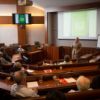

- Youth Program
- Wharton Online
PhD Program
Wharton’s PhD program in Statistics provides the foundational education that allows students to engage both cutting-edge theory and applied problems. These include problems from a wide variety of fields within Wharton, such as finance, marketing, and public policy, as well as fields across the rest of the University such as biostatistics within the Medical School and computer science within the Engineering School.
Major areas of departmental research include: analysis of observational studies; Bayesian inference, bioinformatics; decision theory; game theory; high dimensional inference; information theory; machine learning; model selection; nonparametric function estimation; and time series analysis.
Students typically have a strong undergraduate background in mathematics. Knowledge of linear algebra and advanced calculus is required, and experience with real analysis is helpful. Although some exposure to undergraduate probability and statistics is expected, skills in mathematics and computer science are more important. Graduates of the department typically take positions in academia, government, financial services, and bio-pharmaceutical industries.
Apply online here .
Department of Statistics and Data Science
The Wharton School, University of Pennsylvania Academic Research Building 265 South 37th Street, 3rd & 4th Floors Philadelphia, PA 19104-1686
Phone: (215) 898-8222
- Contact Information
- Course Descriptions
- Course Schedule
- Doctoral Inside: Resources for Current PhD Students
- Penn Career Services
- Apply to Wharton
- Financial Aid

Ph.D. Program
Advising The vice chair for graduate studies is the chief graduate adviser and heads a committee of faculty advisers who may serve as academic advisers. The research interests of the members of this committee span most of the major areas of statistics. During their first quarter in the program students are required to meet with an academic adviser who assists them in planning a reasonable course of study. In addition, the academic adviser is responsible for monitoring the student’s degree progress and approving the study list each quarter. Students are encouraged to begin thinking about their research interests as early as possible. After the student identifies a dissertation topic, the chair of the dissertation committee becomes the student’s academic adviser.
Continuing students should meet with either the vice chair for graduate studies or their academic adviser at least once each quarter and a record of this interview is placed in the student’s academic file. Each fall a committee consisting of all regular departmental faculty meet to evaluate the progress of all enrolled doctoral students. This committee decides if students are making satisfactory progress, and if not offers specific recommendations to correct the situation. For students who have begun dissertation work, the determination of satisfactory progress is typically delegated to the academic adviser. Students who are found to be consistently performing unsatisfactorily may be recommended for termination by a vote of this committee. Doctoral students normally are considered to be making satisfactory progress if they take the written qualifying examination in the summer following their first year of study and the University Oral Qualifying Examination by the end of their second year.
Major Fields or Sub-disciplines The strengths of current and prospective faculty dictate the specific fields of emphasis in the department: applied multivariate analysis; bioinformatics ( Center for Statistical Research in Computational Biology ); computational and computer-intensive statistics; computer vision; cognition; artificial intelligence; machine learning ( Center for Vision, Cognition, Learning, and Autonomy ); social statistics ( Center for Social Statistics ); experimental design and environmental statistics.
Foreign Language Requirement None.
Course Requirements Students are required to pass, with a grade of B- or better, 54 units of approved graduate course work (200 series) and to maintain an overall grade-point average of 3.0 or better. At least 40 of these units must be in courses from this department; the remaining units may be from courses in related departments. Students are strongly encouraged to take Statistics 200A-200B-200C, 201A-201B-201C, and 202A-202B-202C. All doctoral students are required to take Statistics 290 for at least six quarters, and strongly encouraged to take Stats 290 during each quarter of enrollment. In addition, all doctoral students can take Statistics 296 and/or 596, or 599 as needed. Please note that up to two units of Statistics 285 and eight units of Statistics 596 can be counted toward the 40 units from our department. Stats 290, 296, and 599 are not counted.
Students with gaps in their previous training are allowed to take, with the approval of their academic adviser, undergraduate courses offered by the department. However, Statistics 100A-100B-100C, 101A-101B-101C and 102A-102B-102C may not be applied toward course requirements for a graduate degree in the department. Students who need a basic refresher course are encouraged to take Statistics 100A-100B-100C.
Teaching Experience Students are required to complete at least one quarter of service as a teaching assistant for a minimum of 25% time appointment. Students who serve as teaching assistants in the department must have taken or be currently enrolled in Statistics 495A-495B-495C. International students for whom English is a second language must pass either the Test of Spoken English (TSE) or the UCLA Test of Oral Proficiency (TOP) in English before they may serve as teaching assistants.
Written and Oral Qualifying Examinations Academic Senate regulations require all doctoral students to complete and pass university written and oral qualifying examinations prior to doctoral advancement to candidacy. Also, under Senate regulations, the University Oral Qualifying Examination is open only to the student and appointed members of the doctoral committee. In addition to university requirements, some graduate programs have other pre-candidacy examination requirements. What follows in this section is how students are required to fulfill all of these requirements for this doctoral program.
All committee nominations and reconstitutions adhere to the Minimum Standards for Doctoral Committee Constitution.
The written qualifying examination consists of a high-quality paper, solely authorized by the student. This paper can be a research paper containing an original contribution, or a focused critical survey paper. The paper should demonstrate that the student understands and can integrate and communicate ideas clearly and concisely. The paper should be approximately 10 pages, single-spaced, and the style should be suitable for submission to a first-rate journal or technical conference. Any contributions that are not the student’s, including those of the student’s adviser, must be explicitly acknowledged in detail.
After passing the written qualifying examination, students select a doctoral committee that administers the University Oral Qualifying Examination, required for advancement to candidacy. Students are encouraged to begin thinking about their research interests as early as possible and to seek out faculty members who might serve on their doctoral committee. Students making satisfactory progress are expected to take the written qualifying examination in the summer following their first year of study and the University Oral Qualifying Examination by the end of their second year.
Advancement to Candidacy Students are advanced to candidacy and awarded the Candidate in Philosophy (C.Phil.) degree upon successful completion of the written and oral qualifying examinations.
Doctoral Dissertation Every doctoral degree program requires the completion of an approved dissertation that demonstrates the student’s ability to perform original, independent research and constitutes a distinct contribution to knowledge in the principal field of study.
Final Oral Examination (Defense of the Dissertation) Required for all students in the program. Please see the Advice on Taking the Oral Exam for more information.
Time-to-Degree Students are expected to advance to candidacy for the Ph.D. degree within six quarters of full-time work. Completion of all degree requirements (including the dissertation) normally takes 15 quarters. The maximum time to degree is 24 quarters.
Termination of Graduate Study and Appeal of Termination
University Policy
A student who fails to meet the above requirements may be recommended for termination of graduate study. A graduate student may be disqualified from continuing in the graduate program for a variety of reasons. The most common is failure to maintain the minimum cumulative grade point average (3.00) required by the Academic Senate to remain in good standing (some programs require a higher grade point average). Other examples include failure of examinations, lack of timely progress toward the degree and poor performance in core courses. Probationary students (those with cumulative grade point averages below 3.00) are subject to immediate dismissal upon the recommendation of their department. University guidelines governing termination of graduate students, including the appeal procedure, are outlined in Standards and Procedures for Graduate Study at UCLA.
Special Departmental or Program Policy for the Ph.D. Program
A student who does not advance to doctoral candidacy within six quarters of full-time study is subject to a recommendation for termination. The graduate vice chair informs a student of such a recommendation and the student is asked to submit a written appeal and to solicit letters of support from members of the faculty. The appeal is considered by the Graduate Studies Committee, which makes the final departmental decision.
For Students Who Entered Before Fall 2022 Please click this link . Then navigate to “Program Requirements” in the tab that opens and select the academic year when you matriculated.
Timeline to Filing Your Dissertation
- By Fall of your 2nd year, choose your Faculty Adviser and discuss with your faculty adviser who will be on your committee.
- Complete and submit the Nomination of Doctoral Committee Form at least one month before you take your orals.
- Contact Student Affairs to schedule a time and date to take your orals. Confirm the time and date with your committee.
- Your Adviser will let you know when you are ready to take your final orals and submit your dissertation online. When that time comes, arrange time, date and location with the student affairs office.
- If you still need more time and after you’ve advanced choose to do a Filing Fee instead please read this website carefully: https://grad.ucla.edu/academics/graduate-study/filing-fee-application/
- You must also complete the Filing Fee application found here: https://grad.ucla.edu/gasaa/etd/filingfee.pdf
- Important dates and workshops are found here: https://grad.ucla.edu/academics/calendar/thesis-dissertation-filing-deadlines-and-workshops/
- Should you choose the Filing Fee for a specific quarter, you must be registered and enrolled the quarter before AND you must submit a complete first draft of your dissertation to all committee members at the time you submit your filing fee application (in order to apply the filing fee, students must be registered and enrolled in at least 2 units the quarter before).
Faculty Research Interest See the faculty directory listing for current members and their interests at http://directory.stat.ucla.edu/ .
- Current Students
- Online Only Students
- Faculty & Staff
- Parents & Family
- Alumni & Friends
- Community & Business
- Student Life
- College of Computing and Software Engineering
- Executive Advisory Board
- CCSE Job Openings
- Academic Advising
- Student Resources
- International Student Resources
- Faculty Resources
- School of Data Science and Analytics
- Department of Computer Science
- Department of Information Technology
- Department of Software Engineering and Game Development
- Undergraduate
- Why Partner?
- Ways to Engage
- Friends & Corporate Affiliates
- K-12 outreach
- Employer Networking

PhD in Data Science and Analytics
Degrees & Programs
- Doctoral Degree in Data Science and Analytics
- Certificates
We launched the first formal PhD program in Data Science in 2015. Our program sits at the intersection ofcomputer science, statistics, mathematics, and business. Our students engage in relevant research with faculty from across our eleven colleges. As one of the institutions on the forefront of the development of data science as an academic discipline, we are committed to developing the next generation of Data Science leaders, researchers, and educators. Culturally, we are committed to the discipline of Data Science, through ethical practices, attention to fairness, to a diverse student body, to academic excellence, and research which makes positive contributions to our local, regional, and global community.
Herman Ray , Director, Ph.D. in Data Science and Analytics

About the Doctoral Degree in Data Science and Analytics
This degree will train individuals to translate and facilitate new innovative research, structured and unstructured, complex data into information to improve decision making. This curriculum includes heavy emphasis on programming, data mining, statistical modeling, and the mathematical foundations to support these concepts. Importantly, the program also emphasizes communication skills – both oral and written – as well as application and tying results to business and research problems.
Because this degree is a Ph.D., it creates flexibility. Graduates can either pursue a position in the private or public sector as a "practicing" Data Scientist – where continued demand is expected to greatly outpace the supply - or pursue a position within academia, where they would be uniquely qualified to teach these skills to the next generation.
Information Sessions for Fall 2025 Admission
To be announced
Data Science and Analytics PhD Curriculum
Stage One: Pre-Program Requirements
- Successful applicants will have completed a masters degree in a computational field (e.g., engineering, computer science, statistics, economics, finance, etc.)
- Applicants are expected to have deep proficiency in at least one analytical programming language (e.g., SAS, R, Python). SQL and Java are helpful but not required.
- Interested applicants who have earned an undergraduate degree are encouraged to apply to the Ph.D. Program with the embedded MS in Computer Science or with the MS in Applied Statistics.
Stage Two: Coursework
The Ph.D. in Data Science and Analytics requires 78 total credit hours spread over four years of study. Example Program of Study:
- CS 8265 - Big Data Analytics
- CS 8267 - Machine Learning
- MATH 8010 - Theory of Linear Models (optional)
- MATH 8020 - Graph Theory
- MATH 8030 - Applied Discrete and Combinatorial Mathematics
- STAT 8240 - Data Mining I
- STAT 8250 - Data Mining II
- Comprehensive Exam
- 21 credit hours of electives/concentration
Students take up to 9 credit hours of 6000- or 7000-level courses in DS, STAT, or CS with permission of the program director. Students take any 8000- or 9000-level course in DS, STAT, MATH, CS or IT, or the HHS courses in the mHealth concentration.
- at least 15 credit hours in CS courses at 8000 or 9000 levels (except CS 9900)
- at least 15 credit hours in STAT courses at 8000 or 9000 levels
- HHS 8000 - Introduction to mHealth
- HHS 8010 - Ethical Issues in mHealth, Healthcare and Human Subjects Research
- STAT 8235 - Advanced Longitudinal Data Analysis
- HHS 8050 - Advanced Research in mHealth
- HHS 8020 - mHealth Applications or HHS 8030 - Advanced Special Topics in mHealth
- Develop Dissertation Research Proposal
- DS 9700 Doctoral Internship/Research Lab
- DS 9900 Dissertation
- Dissertation Proposal Defense
- DS 9900 DissertationFinal Dissertation Defense
Stage Three: Project Engagement and Research/Dissertation
Relevant, interdisciplinary research forms the foundation of the Ph.D. in Data Science and Analytics. While students are encouraged to engage in research from their first semester, the last two years of the program are structured to help students transition into becoming independent, lead researchers. In this last stage of the program, students will work with research faculty, including their advisor, in one of our data science research labs.
Program Student Learning Outcomes
At the end of the program, students will be able to:
- Demonstrate their understanding of the research process
- Demonstrate mastery of core concepts relevant to three key areas in mathematics, statistics and computer science
- Develop themselves as professionals prepared for work as a doctoral-educated individual beyond graduation
Admission Requirements and Application
Frequently Asked Questions (FAQ)
How long will the program take?
How much does the program cost?
Who would be successful in the program?
Where do these graduates work after graduation?
What are the publication/research requirements?
What did Science Doctoral Students Study?
- Applied Computer Science
- Applied Economics and Statistics
- Applied Statistics
- Applied Mathematics
- Bioinformatics
- Business Analytics
- Chemical Biology
- Computer Science
- Data Science
- Forecasting & Strategic Management
- Integrative Biology
- Public Admin in Economic Policy Mgmt
- Mathematics
- Mechanical Engineering
- Software Engineering
What is the Project Engagement requirement?
Can I pursue the program part- time while I am working full-time?
Can I live on campus?
Are the courses online?
Do I have to have a masters degree to apply?
Where did Data Doctoral Students Study?
- Ajou University, South Korea
- Albert-Ludwigs University of Freiburg
- Auburn University
- Bowling Green State University
- Clemson University
- Columbia University
- Columbus State University
- Florida State University
- Georgia Southern University
- Georgia State
- Georgia Tech
- Iran University of Science and Technology
- Kennesaw State University
- Marshall University
- Michigan State University
- Murray State University
- North Carolina State University
- St. Petersburg State University, Russia
- University of KwaZulu-Natal, South Africa
- University of Michigan
- University of North Carolina
- University of Toledo
Ph.D. in Data Science and Analytics Student Cohorts

Royce Alfred
Bachelor's Degree: Psychology, Kennesaw State University
Master's Degree: Applied Statistics and Analytics, Kennesaw State University
Work History: 4 years as a Data Scientist at Equifax
Professional Objective: Work as a research data scientist in the corporate environment

Venkata Abhiram Chitty
Bachelor's Degree: Mathematics, Statistics and Computer Science, Osmania University, Telangana, India
Master's Degree: Data Science, VIT-AP University, Amaravati, Andhra Pradesh, India
Professional Objective: To apply my Data Science skills in public health domain and help the society

Caleb Greski
Bachelor's Degree:
Master's Degree:
Work History:
Courses Taught:
Publications:
Professional Objective:
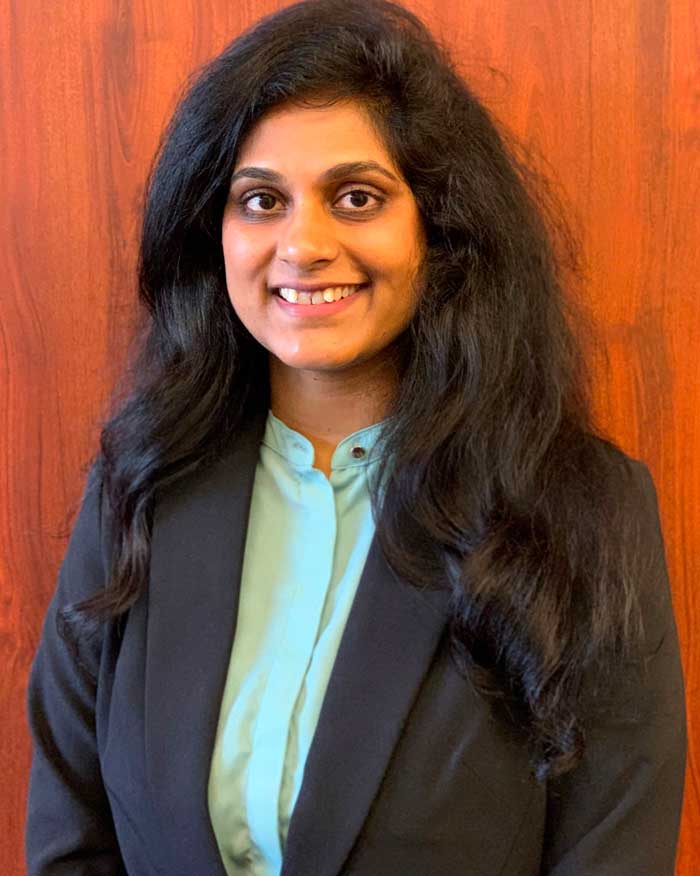
Moukthika Kadaparthi
Bachelor's Degree: Electrical and Electronics Engineering, SASTRA Deemed University
Master's Degree: Computers and Information Science, Cleveland State University
Work History:
- Business Intelligence Analyst, Philips Healthcare, Georgia
- Graduate Research Assistant, Cleveland State University, Ohio
Professional Objective: My objective is to enter academia with the aim of sharing the practical applications of data science in diverse domains and its potential positive impacts. With my unique blend of academic rigor and industry experience, I am driven to analyze complex data sets using cutting-edge data science techniques, to provide actionable insights and support data-driven decision-making.
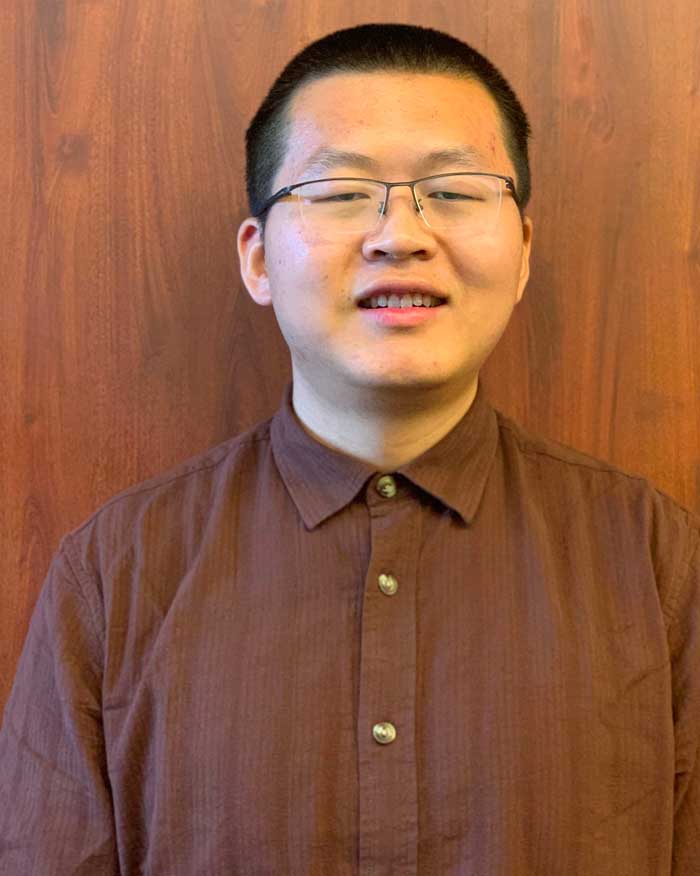
Bachelor's Degree: Civil Engineering, Huazhong University of Science and Technology, China
Master's Degree: Business Analytics, Syracuse University
- Credit Modeling Analyst, Agricultural Development Bank of China
- Research Assistant, Changjiang Securities
- Graduate Assistant, Syracuse University
Courses Taught: Calculus I, Marketing Analytics, Data Mining
Awards: Merit-Based Scholarship, Syracuse University
Professional Objective: To secure a challenging position in a reputable organization to expand myself within the field of Artificial Intelligence.
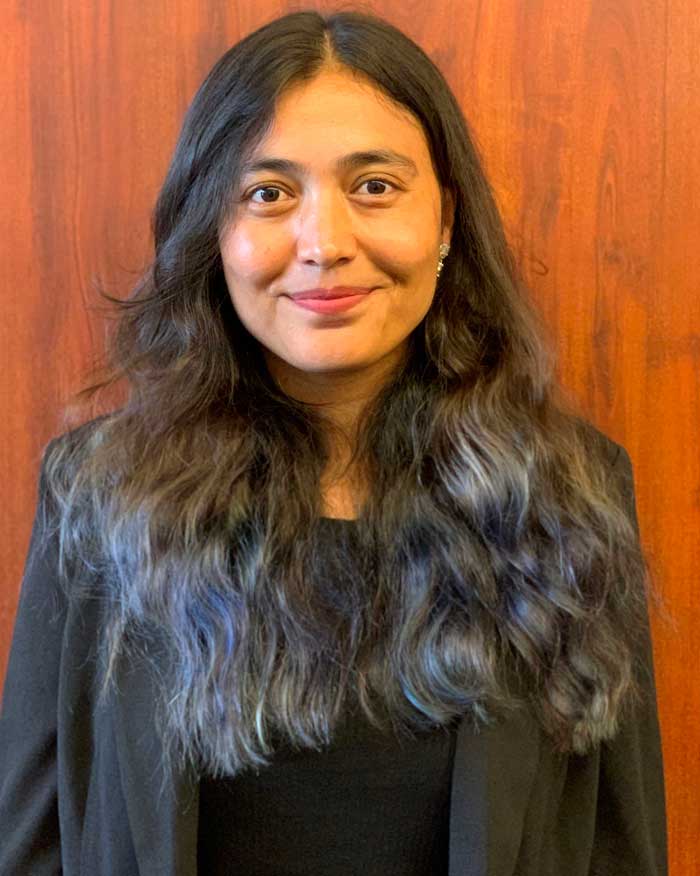
Kausar Perveen
Bachelor's Degree: Bachelor in Engineering Software Engineering, National University of Sciences and Technology, Pakistan
Master's Degree: Masters in Data Science, Illinois Institute of Technology, Chicago
- Fullstack Developer at ItRunsInMyFamily, Charleston, South Carolina
- Software Engineer II , Xgrid Pakistan
- Senior Research Coordinator, Aga Khan University Pakistan
- Machine Learning Engineer, Agoda Thailand
Publications: National cervical cancer burden estimation through systematic review and analysis of publicly available data in Pakistan
Service and Awards:
- Fulbright Scholarship award for Master’s degree in Data Science
- Aga Khan Education Service Pakistan, merit cumulative need based scholarship for Bachelors in Software Engineering
Professional Objective: My main motivation behind getting a degree in Data Science is to receive and perform qualified research experience in Data Science and public health
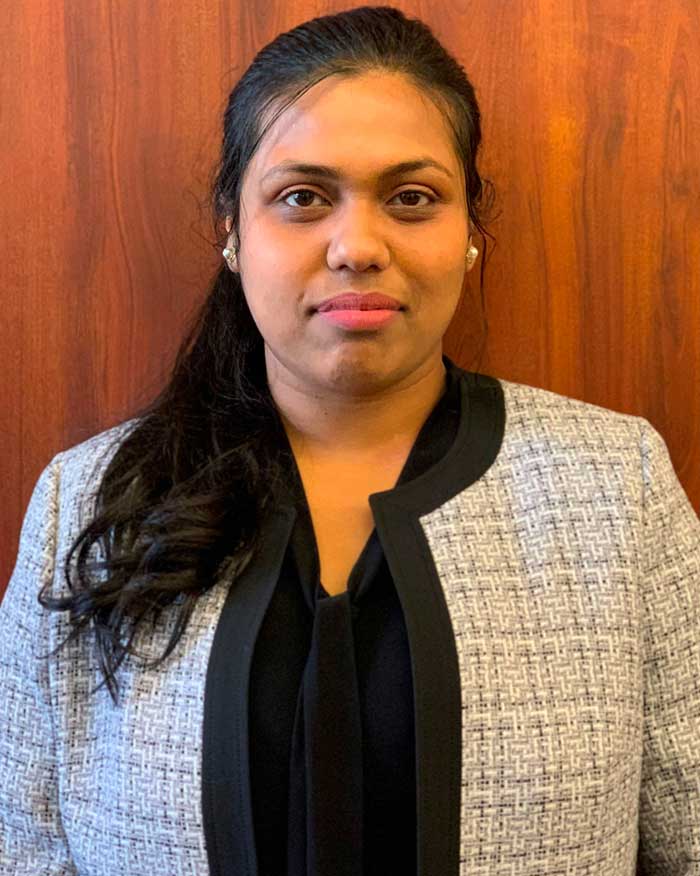
Bachelor's Degree: Statistics, University of Dhaka, Dhaka, Bangladesh
Master's Degree: Mathematics (Statistics Concentration), University of Toledo, Ohio
- Analytics Engineer Intern, Cooper Smith, Toledo, Ohio
- Business AnalystAkij Food and Beverage Limited, Dhaka, Bangladesh
Courses Taught: Introduction to Statistics
Professional Objective: I am interested to work as a data scientist in the industry

Ayomide Isaac Afolabi
Bachelor's Degree: Chemical Engineering, Ladoke Akintola University of Technology
Master's Degree: Data Science, Auburn University
Work History: Graduate Research Assistant, Auburn University
Courses Taught: Python Programming
Publications: Larson EA, Afolabi A, Zheng J, Ojeda AS. Sterols and sterol ratios to trace fecal contamination: pitfalls and potential solutions. Environ Sci Pollut Res Int. 2022 Jul;29(35):53395-53402. doi: 10.1007/s11356-022-19611-2 . Epub 2022 Mar 14. PMID: 35287190
Professional Objective: To work as a research data scientist in the industry
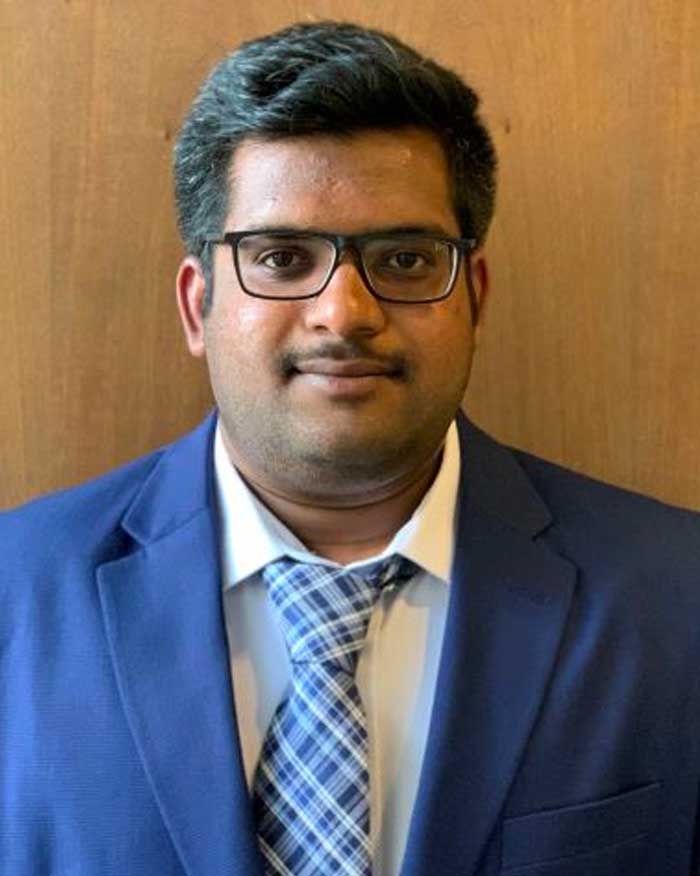
Dinesh Chowdary Attota
Bachelor's Degree: Computer Science, Jawaharlal Nehru Technological University Kakinada (JNTUK), India
Master's Degree: Computer Science, Kennesaw State University
Work History: Associate Consultant, SL Techknow Solutions India Pvt Ltd, India 2018 - 2020
Publications:
- An Ensemble Multi-View Federated Learning Intrusion Detection for IoT
- A Conversational Recommender System for Exploring Pedagogical Design Patterns
- An Ensembled Method For Diabetic Retinopathy Classification using Transfer Learning
Professional Objective: I'd like to be a faculty member at a university so that I can continue to do research.

Nzubechukwu Ohalete
Bachelor's Degree: Mathematics,University of Nigeria, Nsukka
Master's Degree: Applied Statistics, Bowling Green State University
Work History: Graduate Assistant/Data Analyst, Federal University of Technology, Owerri - Mathematics Department
Courses Taught: Elementary Mathematics, Mathematical Methods
Awards: James A. Sullivan Outstanding Graduate Student Award, Applied Statistics and Operations Research Department, April 2022
Professional Objective: To use data science techniques to solve problems which makes our lives better and also makes our world a better place

Ryan Parker
Bachelor's Degree: Microbiology, University of Tennessee - Knoxville
Master's Degree: Integrative Biology, Kennesaw State University
Work History: Instructor of Biology, Kennesaw State University
Courses Taught: Nursing Microbiology Lectures and Labs, Introductory Biology Labs, Biotechnology Lectures and Labs
- Parker RA, Gabriel KT, Graham K, Cornelison CT. Validation of methylene blue viability staining with the emerging pathogen Candida auris. J Microbiol Methods. 2020 Feb;169:105829. doi: 10.1016/j.mimet.2019.105829 . Epub 2019 Dec 27. PMID: 31884053.
- Parker RA, Gabriel KT, Graham KD, Butts BK, Cornelison CT. Antifungal Activity of Select Essential Oils against Candida auris and Their Interactions with Antifungal Drugs. Pathogens. 2022 Jul 22;11(8):821. doi: 10.3390/pathogens11080821 . PMID: 35894044; PMCID: PMC9331469.
Awards: Best Graduate Poster: Symposium for Student Scholars hosted by Kennesaw State University (Fall 2018) for Poster: "Antifungal Activity of Select Essential Oils and Synergism with Antifungal Drugs against Candida auris"
Professional Objective : To apply Data Science techniques to large scientific datasets, such as genomic and astronomical data, and to help bridge the gap between disparate fields by working in an interdisciplinary space to offer integrative and data-driven solutions to the increasingly complex problems presented to the traditional Sciences.
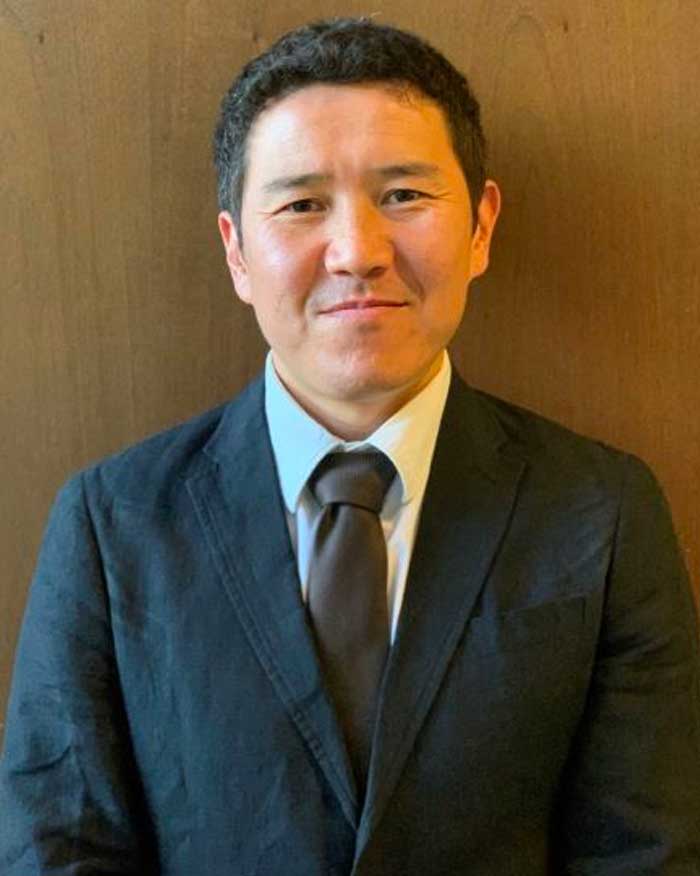
Askhat Yktybaev
Bachelor's Degree: Forecasting and Strategic Management, Saint-Petersburg State University of Economics and Finance, Russia
Master's Degree: Forecasting and Strategic Management, Saint-Petersburg State University of Economics and Finance, Russia; Public Administration in Economic Policy Management, School of International and Public Affairs, Columbia University
Work History:
- from Data Analyst to Head of Research Unit, Central Bank of Kyrgyz Republic
- Sr. Data Scientist in OJSC, Aiyl Bank, Kyrgyzstan
- Consultant, The World Bank, Washington D.C.
Courses Taught: Financial Programing in the Central Bank, Monetary Policy Transmission Mechanism
Service and Awards: Winner of the Joint Japan/World Bank Graduate Scholarship Program, National Bank Silver Medal for Best Forecast
Professional Objective: I want to found a successful Fintech startup one day.
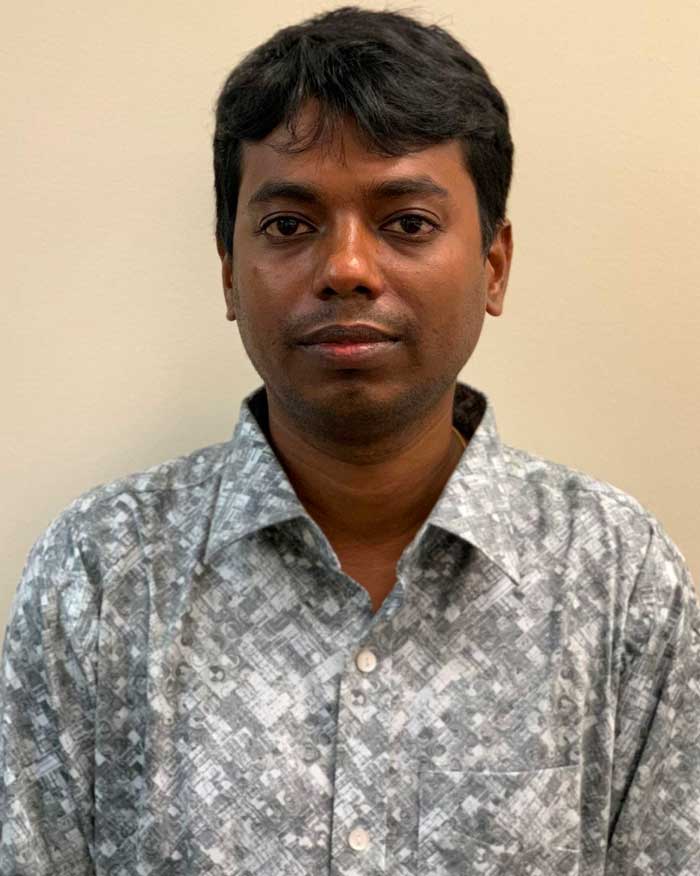
Sanad Biswas
Bachelor's Degree: Statistics, Biostatistics and Informatics, University of Dhaka, Bangladesh
Master's Degree: Statistics, University of Toledo, OH
- Research Assistant: US Army Research Lab, Kennesaw State University
- Consultant, Statistical Consulting Service, University of Toledo
- Graduate Teaching Assistant, University of Toledo
Courses Taught: Calculus and Business Calculus, Facilitated students’ study of Statistics courses at the University of Toledo.
Professional Objective: To work as a researcher in the industry or as a faculty. I am primarily interested in the application of machine learning in different fields.
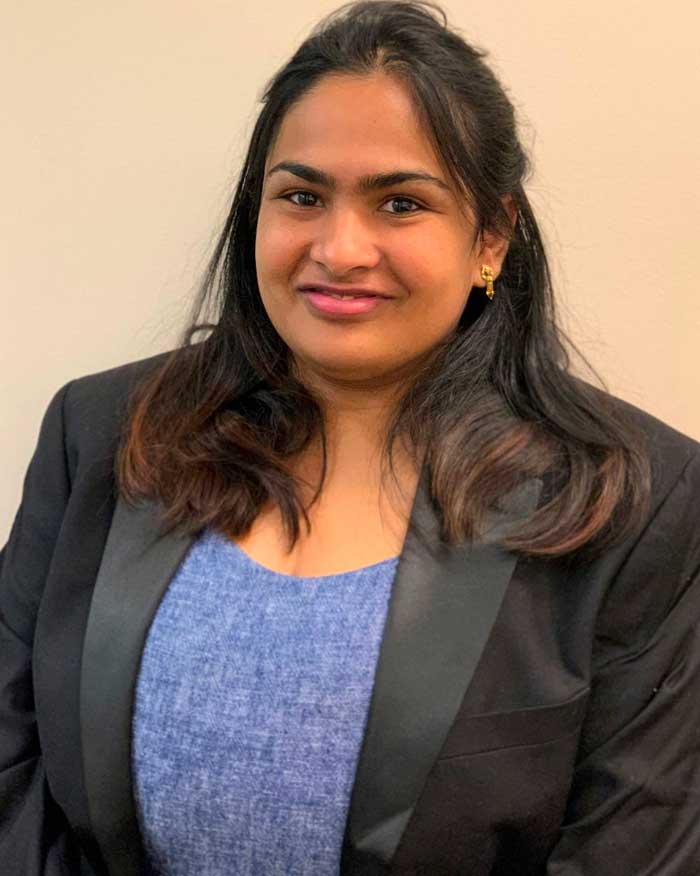
Mallika Boyapati
Bachelor's Degree: Electronics and Computer Engineering, K L University, India
Master's Degree: Applied Computer Science, Columbus State University
- T-Mobile, Seattle, WA, USA: Sr. Data analyst, 2018- 2021
- UITS, Columbus State University, Columbus, GA, USA: Data Analyst -Graduate assistant, 2016-2018
- Menlo Technologies, India: Jr. Data Analyst, Intern, 2014- 2016
Courses Taught: DATA 4310 - Statistical Data Mining
Publications:
- Anti-Phishing Approaches in the Era of the Internet of Things. In: Pathan, AS.K. (eds) Towards a Wireless Connected World: Achievements and New Technologies. Springer, Cham - https://doi.org/10.1007/978-3-031-04321-5_3
- An empirical analysis of image augmentation against model inversion attack in federated learning - https://doi.org/10.1007/s10586-022-03596-1
- M. Boyapati and R. Aygun, "Phishing Web Page Detection using Web Scraping," SoutheastCon 2023, Orlando, FL, USA, 2023, pp. 167-174, doi: 10.1109/SoutheastCon51012.2023.10115148.
- M. Boyapati and R. Aygun, "Default Prediction on Commercial Credit Big Data Using Graph-based Variable Clustering," 2023 IEEE 17th International Conference on Semantic Computing (ICSC), Laguna Hills, CA, USA, 2023, pp. 139-142, doi: 10.1109/ICSC56153.2023.00029.
- Boyapati, M., Aygun, R. (2023) Explainable Machine Learning for Default Prediction on Commercial Credit Big Data Using Graph-based Variable Clustering. In Encyclopedia with Semantic Computing and Robotic Intelligence VOL. 0 https://doi.org/10.1142/S2529737623500119
- Winners of Dataiku March Madness Bracket-thon, 2021 in predicting the NBA bracket
- Winners of 2021 Analytics Day Ph.D. level research poster presentation
Professional Objective: To leverage strong analytical and technical abilities to research and develop effective data models, visualize data, and uncover insights that makes an impact in field of data science
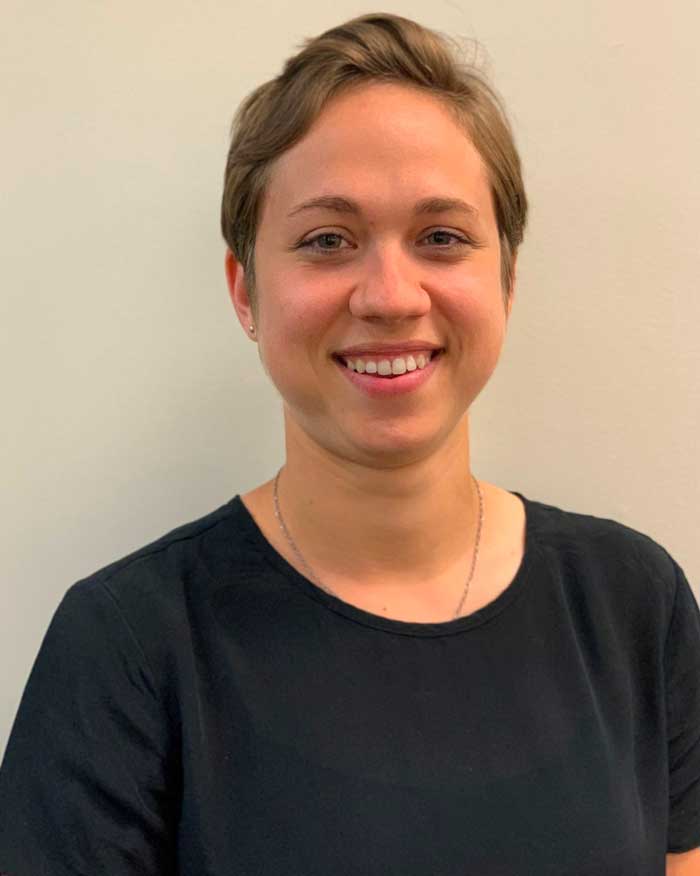
Nina Grundlingh
Bachelor's Degree: Applied Mathematics and Statistics, University of KwaZulu-Natal, South Africa
Master's Degree: Statistics, University of KwaZulu-Natal, South Africa
Courses Taught: Introduction to Statistics, University of KwaZulu-Natal
- Grundlingh, N., Zewotir, T., Roberts, D. & Manda, S. Modelling diabetes in South Africa. The 61st conference of the South African Statistical Association, 27-29 November 2019, Nelson Mandela University, South Africa.
- Grundlingh, N., Zewotir, T., Roberts, D. & Manda, S. Modelling diabetes in the South African population. College of Agriculture, Engineering and Science Postgraduate Research & Innovation Symposium 2019, 17 October 2019, University of KwaZulu-Natal, Westville, South Africa (the award for best MSc presentation was also received for this).
- Grundlingh, N., Zewotir, T., Roberts, D. & Manda, S. Modelling risk factors of diabetes and pre-diabetes in South Africa. IBS SUSAN-SSACAB 2019 Conference, 8-11 September 2019, Cape Town, South Africa.
- University of KwaZulu-Natal Postgraduate Research & Innovation Symposium 2019 – Best Masters oral presentation
- South African Statistical Association Honours Project Competition 2018/2019 – 2nd place and special prize for best use of SAS
Professional Objective: To work in a teaching position – sharing how data science can be applied to different fields and the positive impact it could have. I would like to use my theological background and passion to bring insight, clarity, and wisdom to data science problems.
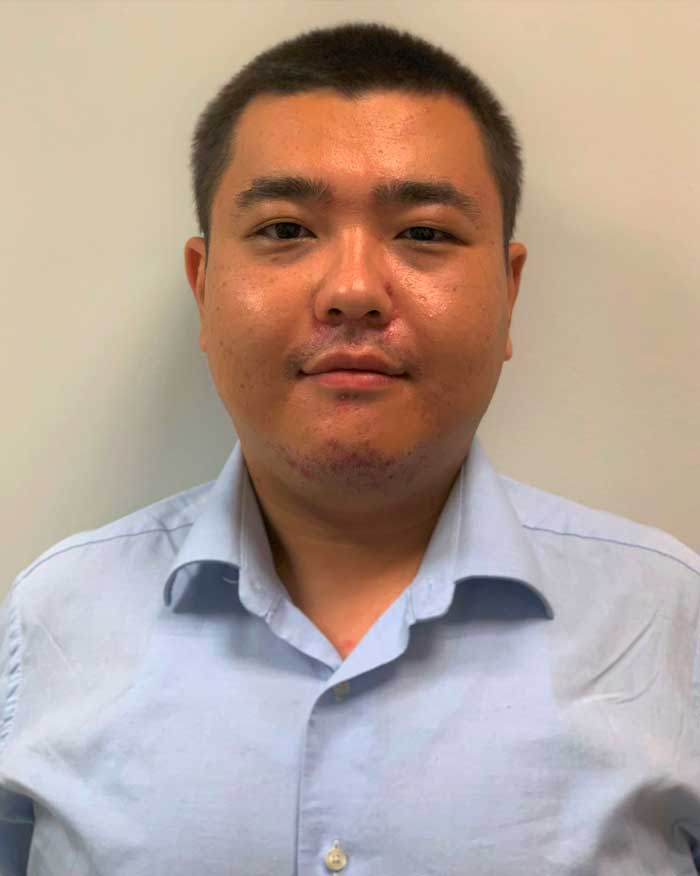
Namazbai Ishmakhametov
Bachelor's Degree: Specialist in Mathematical Methods in Economics, Kyrgyz-Russian Slavic University
Master's Degree: Analytics, Institute for Advanced Analytics at North Carolina State University
- Expert at the Centre for Economic Research, National bank of the Kyrgyz Republic
- Consultant in World Bank project dedicated to strengthening the regulatory practices in Kyrgyz Republic
- Consultant at Deloitte Consulting LLP, Science Based Services group, Analytics & Cognitive offering
- Macroeconomic modeling expert in the Economic Department, National bank of the Kyrgyz Republic
Courses Taught: Introductory statistics and econometrics (cross-sections, times series and panels) lecturer at Ata-Turk Alatoo International University, Kyrgyzstan
- Ishmakhametov Namazbai, Abdygulov Tolkunbek, Jenish Nurbek. 2020. “ Impact of 2014-2015 shocks on economic behavior of the households in the Kyrgyz Republic ". Working Paper of the National Bank of the Kyrgyz Republic
- Sherrill W. Hayes, Jennifer L. Priestley, Namazbai Ishmakhametov, Herman E. Ray. 2020. “ I’m not Working from Home, I’m Living at Work ”: Perceived Stress and Work-Related Burnout before and during COVID-19”. PsyArxiv Preprints
- Ishmakhametov Namazbai, Arykov Ruslan. 2016. “ Credit Risk Model on the Example of the Commercial Banks of the Kyrgyz Republic ”. Working Paper of the National Bank of the Kyrgyz Republic
- Namazbai Ishmakhametov, Anvar Muratkhanov.2015. “Modeling strategy of the Bank of the Kyrgyz Republic”. National bank of Poland – Swiss National bank joint seminar. Zurich, Switzerland
Professional Objective: To apply my quantitative skills in the field of biotech either in corporate or government sector
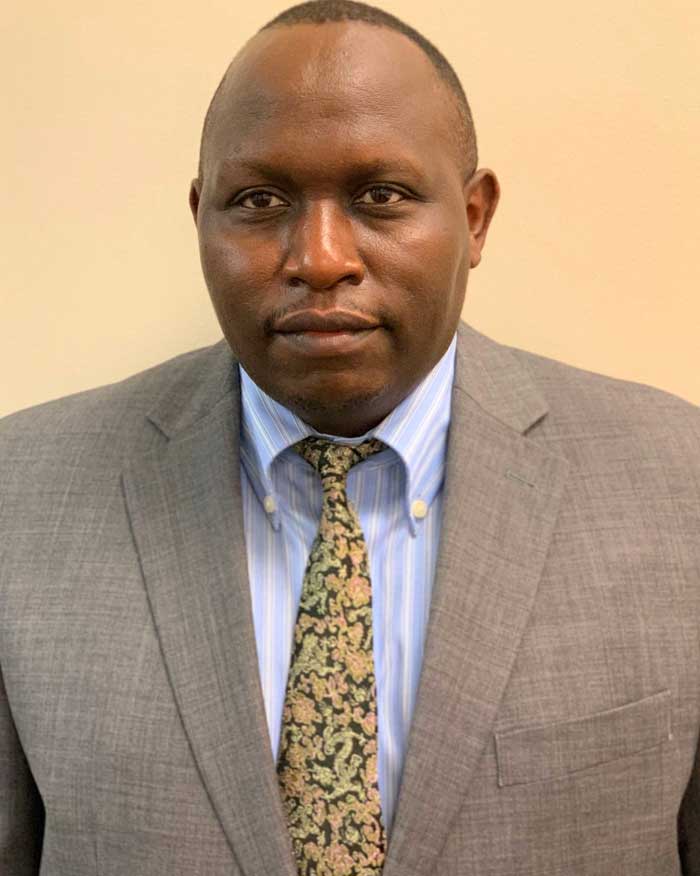
Symon Kimitei
Bachelor's Degrees: Mathematics, Kennesaw State University, and Computer Science, Kennesaw State University
Master's Degree: Mathematics (Scientific Computing Concentration), Georgia State University
Work History: Senior Lecturer and Math Department Coordinator of Supplemental Instruction, Kennesaw State University
Courses Taught: Calculus 1, Precalculus, Applied Calculus & College Algebra
- Haskin, S., Kimitei, S., Chowdhury, M., Rahman, F., Longitudinal Predictive Curves of Health-Risk Factors for American Adolescent Girls. Journal of Adolescent Health. JAH-2021-00601R1
- Symon K Kimitei, Algorithms for Toeplitz Matrices with Applications to Image Deblurring . 2008. Georgia State University, Masters thesis. ScholarWorks
Poster Presentations:
- Kimitei, Symon & Sammie Haskin. "Nadaraya-Watson Kernel Regression Longitudinal Analysis of Healthcare Risk Factors of African American and Caucasian American Girls." Kennesaw State University R Day Presentation. 11 Nov. 2019. Poster presentation.
- Kimitei, Symon. " Social Network Analysis in Supreme Court Case Rulings by Precedence Using SAS Optgraph/Python." 23rd Annual Symposium of Scholars. Kennesaw State University. 19 April. 2018. Poster presentation.
Professional Objective: As a Ph.D. student in Analytics & Data Science, I hope to gain skills in the program that will propel me into a Data Scientist / Machine Learning Engineer with a specialization in the design and implementation of deep learning & machine learning algorithms.

Jitendra Sai Kota
Bachelor's Degree: Computer Science & Engineering, Amrita Vishwa Vidyapeetham, India
Master's Degree: Computer Science, Florida State University
Work History: Teaching Assistant Professor in Computer Science at an Engineering College in India
Courses Taught: Problem Solving & Program Design through C, Artificial Intelligence, Data Mining
Publications: Kota, Jitendra Sai, Vayelapelli, Mamatha. 2020. "Predicting the Outcome of a T20 Cricket Game Based on the Players' Abilities to Perform Under Pressure". IEIE Transactions on Smart Processing and Computing 9(3):230-237. DOI: 10.5573/IEIESPC.2020.9.3.230
Professional Objective: to work in Data Science in a Corporate Environment
ResearchGate
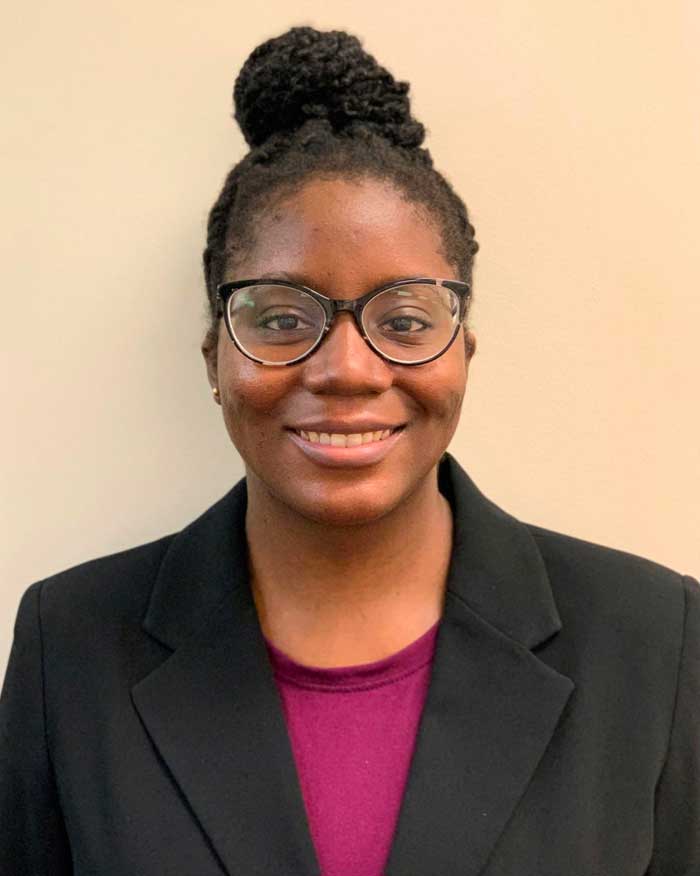
Catrice Taylor
Bachelor's Degree: Economics, Clemson University
Master's Degrees: Applied Economics and Statistics, Clemson University, and Applied Statistics, Kennesaw State University
Professional Objective: To work as an industry data scientist in a corporate environment
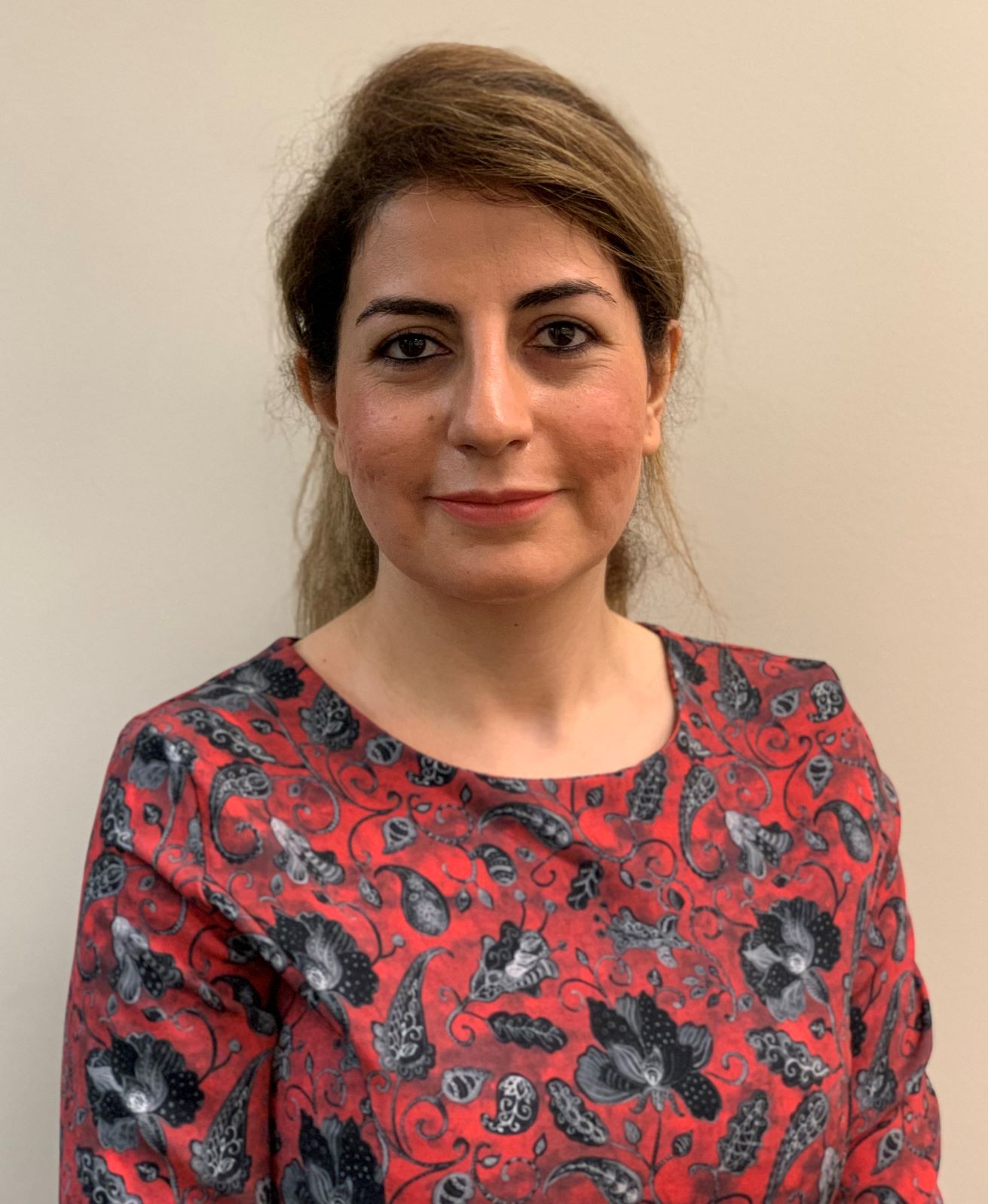
Sahar Yarmohammadtoosky
Bachelor's Degree: Applied Mathematics, Sheikh Bahaei University, Isfahan, Iran
Master's Degree: Applied Mathematics, Iran University of Science & Technology, Tehran, Iran
Courses Taught: Numerical Analysis and Linear Algebra, Iran University of Science & Technology
Publications: Noah, G., Sahar, Y., Anthony P. & Hung, C.C. "ISODS: An ISODATA-Based Initial Centroid Algorithm". Accepted to: 10th International Conference on Information, March 6 - 8, 2021, Hosei University, Tokyo, Japan
Professional Objective: My goal is to become a competent Data Science specialist capable of using my skills to bring meaning to data, getting a faculty position at a university

Martin Brown
Graduation Date: Spring 2024
Dissertation: A Holistic and Collaborative Behavioral Health Detection Framework Using Sensitive Police Narratives
Dissertation Advisors: Dr. Dominic Thomas and Dr. Md Abdullah Al Hafiz Khan
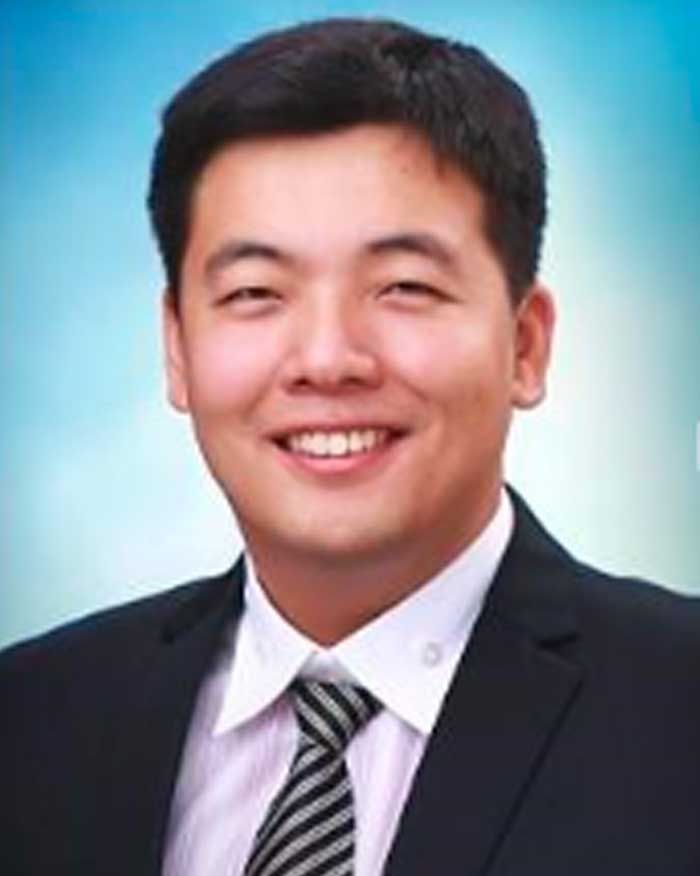
Inchan Hwang
Bachelor’s Degree: Computer Science, Georgia Southwestern State University
Master’s Degree: Software Engineering, Ajou University, South Korea
Courses Tutored: Precalculus, College Algebra, Calculus I at Georgia Southwestern State University
Tutoring College Algebra, Calculus I and II at Academic Skills Center, Georgia Southwestern State University Research Assistant at Intelligence of HyperConnected Systems Lab of Ajou University Fullstack web developer, windows system programmer in the cybersecurity industry Professional Objective: To work in big data analytics, and research and development of machine learning in engineering, and security
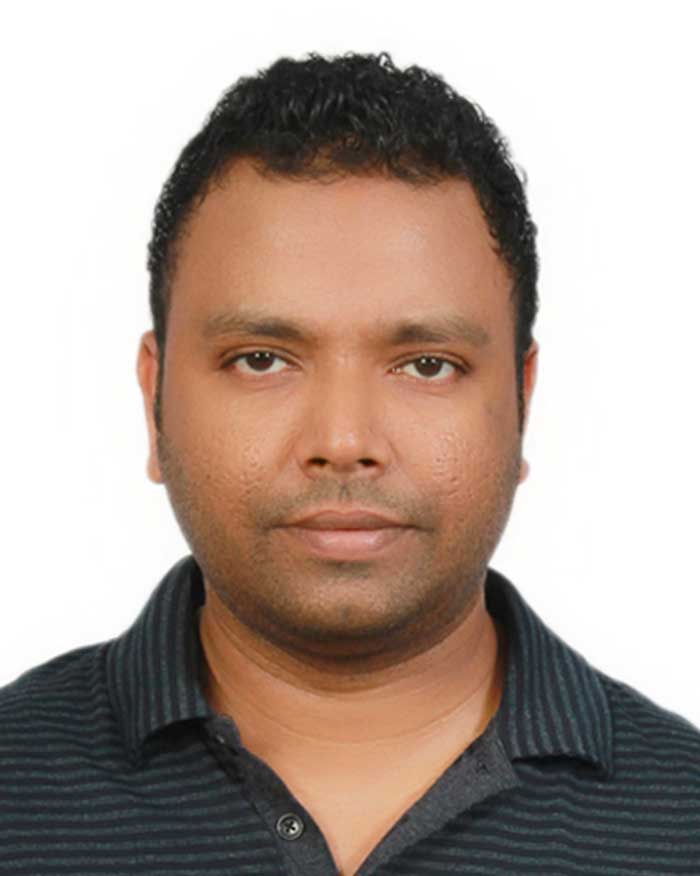
Duleep Prasanna Rathgamage Don
Bachelor's degree: Physics and Mathematics, The Open University of Sri Lanka
Master's degree: Mathematics, Georgia Southern University
- Graduate Teaching Assistant, Georgia Southern University, 2016 - 2018
- Graduate Teaching Assistant, University of Wyoming, 2019 - 2020
Courses Taught: Trigonometry, and Calculus I & II
Publications/Presentations:
- Don, R. D. and Iacob, I. E., ‘DCSVM: Fast Multi-class Classification using Support Vector Machines’, International Journal of Machine Learning and Cybernetics .
- Rathgamage Don, D., Iacob, E., ‘Divide and Conquer Support Vector Machine for Multiclass Classification’, Research Symposium (2018), Georgia Southern University.
- Rathgamage Don, D., Iacob, E., ‘Multiclass Classification using Support Vector Machines’, MAA Southeastern Section Meeting (2018), Clemson University.
Professional Objective: To work in big data analytics, and research and development of machine learning in engineering, and medicine

Linglin Zhang
Bachelor’s Degree: Biological Sciences, Hubei University, China
Master’s Degree: Chemical Biology, University of Michigan and Bioinformatics, Georgia Institute of Technology
Selected Publications: Rebecca Shen, Zhi Li, Linglin Zhang, Yingqi Hua, Min Mao, Zhicong Li, Zhengdong Cai, Yunping Qiu, Jonathan Gryak, Kayvan Najarian. (2018). Osteosarcoma Patients Classification Using Plain X-Rays and Metabolomic Data. 40th Annual International Conference of the IEEE Engineering in Medicine and Biology Society (EMBC). 690-693, 2018.
Professional Objective: To become a researcher in industry or academia. My background in Biology and Bioinformatics could provide me strong theoretical support on a research role in the health industry. The experience of doing an internship at Equifax equipped me of certain knowledge on business cases.
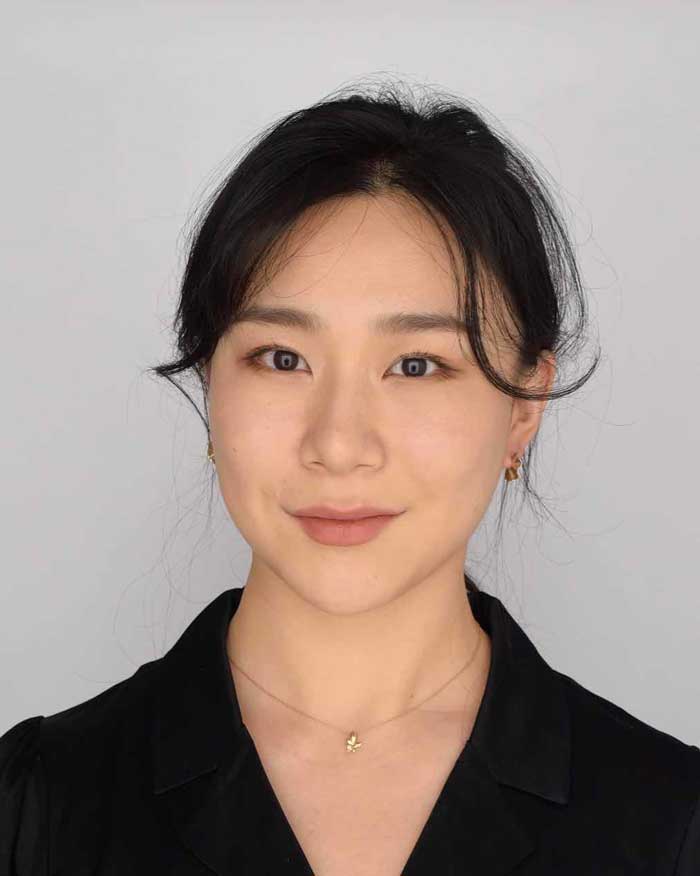
Yihong Zhang
Bachelor’s Degree: Psychology Mathematics Interdisciplinary, Chatham University
Master’s Degree: Mathematics and Statistics Allied with Computer Science, Georgia State University
- Research Assistant - Collaborated with biomedical department to analyze and visualize microarray gene expression data, Facilitated in data pre-processing and machine learning modeling of clinical liver cirrhosis image data, Assisted in feature engineering of image analysis in deep learning for pathology diagnosis with Mayo Clinic’s pilot project.
- Graduate Lab Assistant - Tutored students with statistics and math subjects.
Professional Objective: Make better use of data in healthcare and bioinformatic industry as a data scientist.
2019 - 2020

Trent Geisler
Graduation Date: Summer 2022
Dissertation: Novel Instance-Level Weighted Loss Function for Imbalanced Learning
Dissertation Advisor: Dr. Herman Ray
Current Position: Assistant Professor, Department of Systems Engineering, United States Military Academy West Point
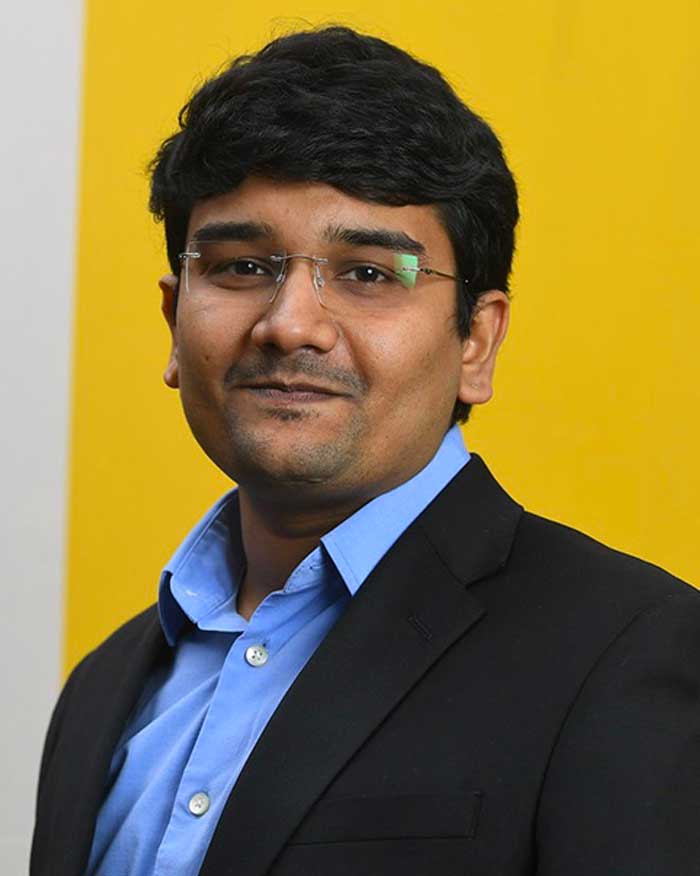
Srivatsa Mallapragada
Dissertation: Multi-Modality Transformer for E-Commerce: Inferring User Purchase Intention to Bridge the Query-Product Gap
Dissertation Advisor: Dr. Ying Xie
Current Position: Data Scientist, Rue Gilt Groupe (RGG)
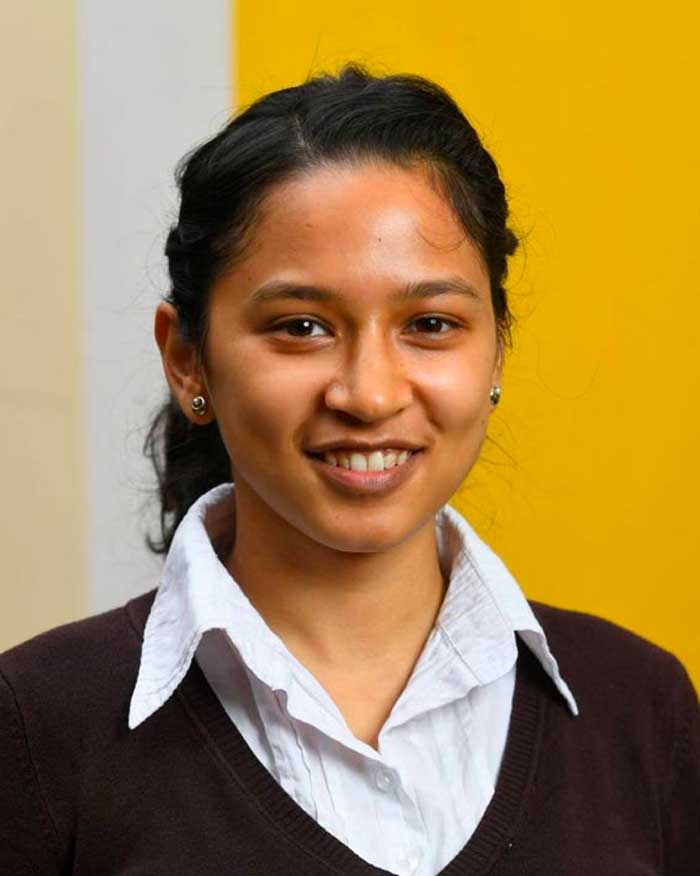
Sudhashree Sayenju
Graduation Date: Spring 2023
Dissertation: Quantification and Mitigation of Various Types of Biases in Deep NLP Models
Dissertation Advisor: Dr. Ramazan Aygun
Current Position: Lecturer, Data Science and Analytics, Kennesaw State University

Christina Stradwick
Bachelor’s Degree: Music Performance and Mathematics, Marshall University
Master’s Degree: Mathematics with Emphasis in Statistics, Marshall University
Courses Taught: Prep for College Algebra at Marshall University
Selected Presentations:
- Stradwick, C. Exploring the Variance of the Sample Variance. Spring Meeting of the Mathematical Association of America Ohio Section, University of Akron, 2019.
- Stradwick, C., Vaughn, L., Hanan Khan, A. Data Modeling on Insurance Beneficiary Dataset. College of Science Research Expo 2018, Marshall University, 2018. Poster Presentation.
- Stradwick, C. Disease modeling on networks. The 13th Annual UNCG Regional Mathematics and Statistics Conference, University of North Carolina at Greensboro, 2017. Poster Presentation.
Professional Objectives: To work as a researcher in industry or in a laboratory setting. I would like to use my background in mathematics and statistics to develop novel solutions that address limitations in current data science techniques and to apply known data science methods to solve real-world problems.
2018 - 2019

Md Shafiul Alam
Graduation Date: Fall 2022
Dissertation: Appley: App roximate Shap ley Values for Model Explainability in Linear Time
Dissertation Advisor: Dr. Ying Xie
Current Position: AI Framework Engineer, Intel Corporation

Jonathan Boardman
Dissertation: Ethical Analytics: A Framework for a Practically-Oriented Sub-Discipline of AI Ethics
Current Position: Data Scientist, Equifax
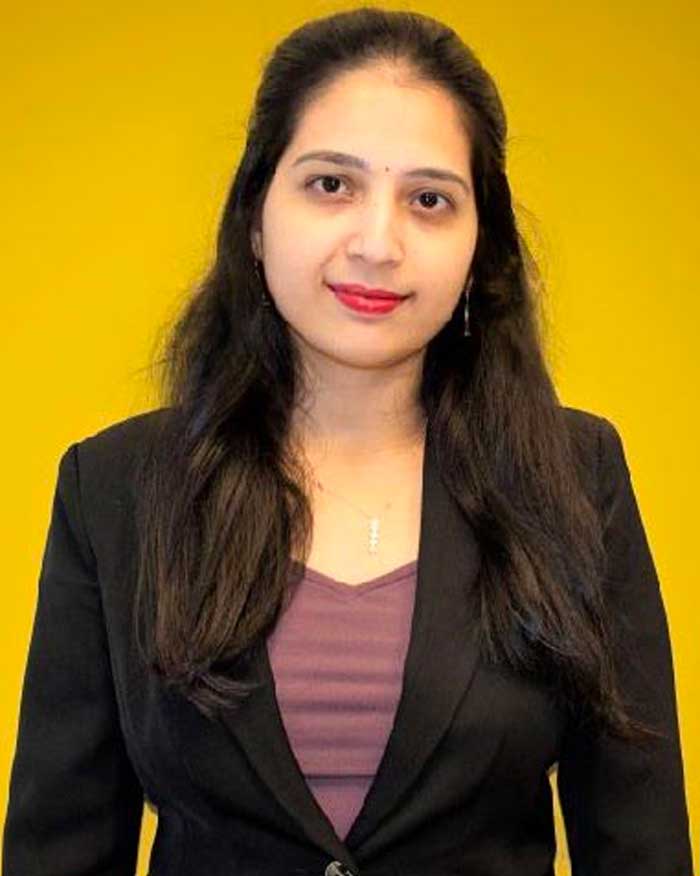
Tejaswini Mallavarapu
Bachelor’s Degree: Pharmacy, Acharya Nagarjuna University, India
Master’s Degree: Computer Science, Kennesaw State University
- Graduate Research Assistant, Kennesaw State University, 2017-present
- Research Analyst, Divis Laboratories, 2013-2014
Selected Publications:
- T. Mallavarapu, Y. Kim, J.H. Oh, and M. Kang, "R-PathCluster: Identifying Cancer Subtype of Glioblastoma Multiforme Using Pathway-Based Restricted Boltzmann Machine," Proceedings of IEEE International Conference on Bioinformatics & Biomedicine (IEEE BIBM 2017), International Workshop on Deep Learning in Bioinformatics, Biomedicine, and Healthcare Informatics, Accepted, 2017.
- M.R. Shivalingam, K.S.G. Arul Kumaran, D. Jeslin, Ch. MadhusudhanaRao, M. Tejaswini, "Design and Evaluation of Binding Properties of Cassia roxburghii Seed Galacto mannan and Moringa oleifera Gum in the Formulation of Paracetamol Tablets," Research Journal of Pharmacy and Technology(RJPT). 3(1): Jan.-Mar. 2010; Page 254-256.
- M.R. Shivalingam, K.S.G. Arul Kumaran, D. Jeslin, Y.V. Kishore Reddy, M. Tejaswini, Ch. MadhusudhanaRao, V. Tejopavan, "Cassia roxburghii Seed Galacto manna— a potential binding agent in the tablet formulation," Journal of Biomedical Science and Research(JBSR), Vol 2 (1), 2010, 18-22
Professional Objective: To be a data scientist in the field of health care or bioinformatics where I can leverage my analytical skills and knowledge towards the advancement of the research field.
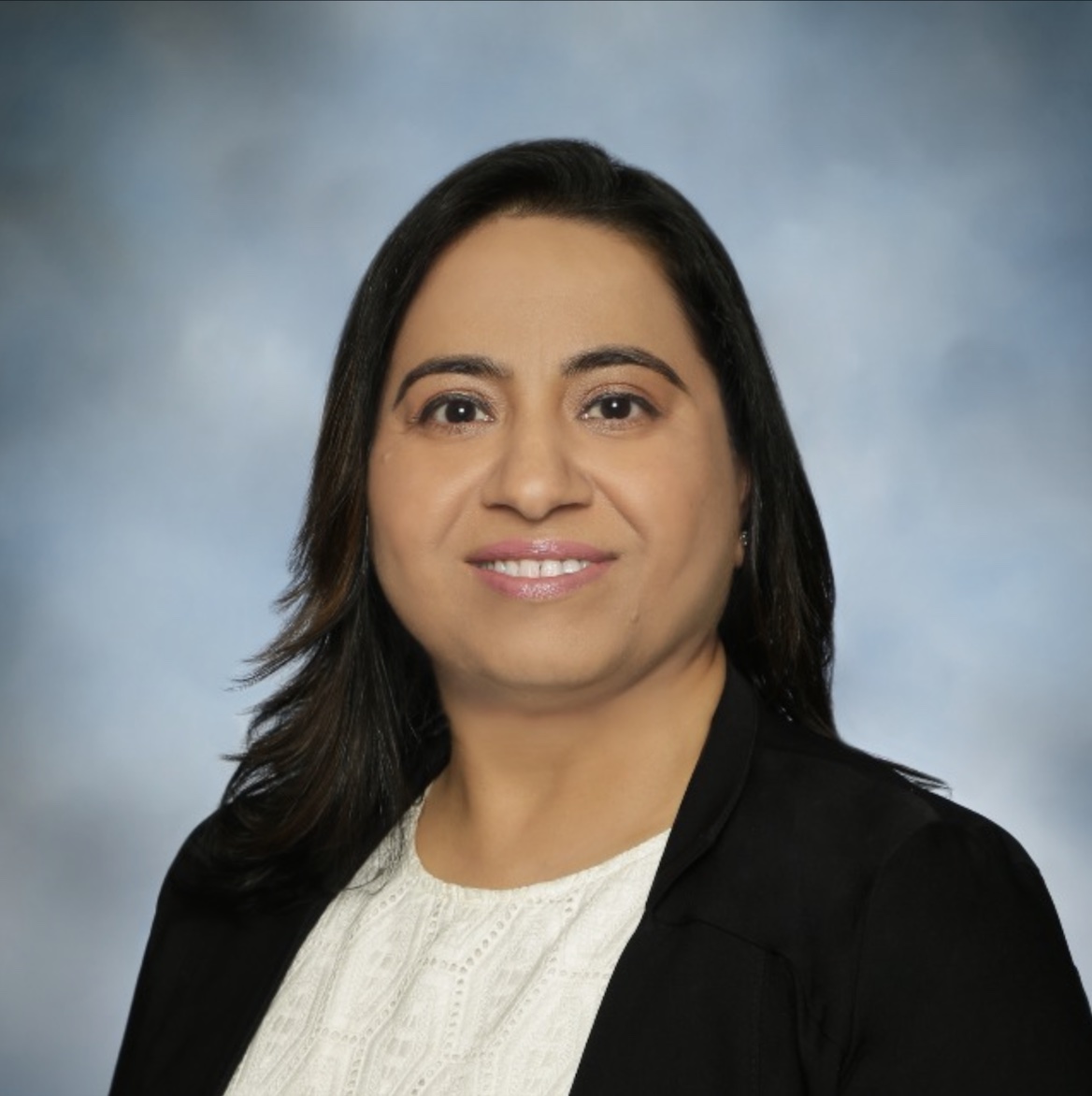
Seema Sangari
Dissertation: Debiasing Cyber Incidents - Correcting for Reporting Delays and Under-reporting
Dissertation Advisor: Dr. Michael Whitman
Current Position: Principal Modeler, HSB

Srivarna Settisara Janney
Bachelor’s Degree: Mechanical Engineering, Visveswaraiah Technological University, India
- Graduate Research Assistant, Kennesaw State University, 2016-2018
- Senior Software Engineer, Torry Harris Business Solutions (THBS), United Kingdom, 2010-2012 and India, 2012-2014
- Software Engineer, Torry Harris Business Solutions (THBS), India, 2007-2010
Selected Publications/Presentations:
- S.S. Janney, S. Chakravarty, “New Algorithms for CS – MRI: WTWTS, DWTS, WDWTS”, One-page research paper, 40th International Conference of IEEE Engineering in Medicine and Biology Society (IEEE EMBC), Jul 2018
- Master thesis presented at Southeast Symposium on Contemporary Engineering Topics (SSCET), UAH Engineering Forum, Alabama, Aug 2018
- Master thesis poster is accepted to be presented at Biomedical Engineering Society (BMES) 2018 Annual Meeting, Oct 2018
- Submitted draft copy for book chapter contribution on “Bioelectronics and Medical Devices”, Elsevier Publisher, May 2018
- Showcased 3MT, Georgia Council of Graduate Schools (GCGS), Apr 2018
- Master thesis presented in workshop for “Medical Signal and Image Processing” at Department of Biotechnology & Medical Engineering, NIT Rourkella, Feb 2018
- S.S. Janney, I. Karim, J. Yang, C.C Hung, Y. Wang, “Monitoring and Assessing Traffic Safety Using Live Video Images”, GDOT project showcase, 4th Annual Transportation Research Expo, Sept 2016
- 1st Place Winner, Graduate Research Project, C-day Poster Presentation, Kennesaw State University, Spring 2018
- People's Choice Award, 3 Minute Thesis (3MT), Apr 2018
- CCSE Dean’s 4.0 Club, Jan 2018
- 3rd Place Winner, Hackathon 2017 - HPCC Systems Big Data
- Foundation of Computer Science, Certified by Kennesaw State University, Jun 2016
- Fundamental of RESTful API Design, Certified by APIGEE, Nov 2014
- Member of HandsOnAtlanta, since 2014
- SOA Associate, Certified by IBM, Jun 2008
Professional Objective: I would like to be a researcher in Data Science and Analytics in medical imaging technologies contributing to advancements that would help medical and healthcare professionals provide value-based and personalized health care. I would like to look at career opportunities in industry and academia that fuel my interest in research.
2017 - 2018

Graduation Date: Summer 2021
Dissertation: Incentive-based Data Sharing and Exchanging Mechanism Design
Dissertation Advisor: Dr. Meng Han
Current Position: Assistant Professor, Saint Joseph's University - Erivan K. Haub School of Business

Mohammad Masum
Dissertation: Integrated Machine Learning Approaches to Improve Classification Performance and Feature Extraction Process for EEG Dataset
Dissertation Advisor: Dr. Hossain Shahriar
Current Position: Assistant Professor, San Jose State University

Lauren Staples
Graduation Date: Fall 2021
Dissertation: A Distance-Based Clustering Framework for Categorical Time Series: A Case Study in the Episodes of Care Healthcare Delivery System
Dissertation Advisor: Dr. Joseph DeMaio
Current Position: Senior Data Scientist, Microsoft
2016 - 2017

Shashank Hebbar
Dissertation: Tree-BERT - Advanced Representation Learning for Relation Extraction
Current Position: Data Scientist, Credigy
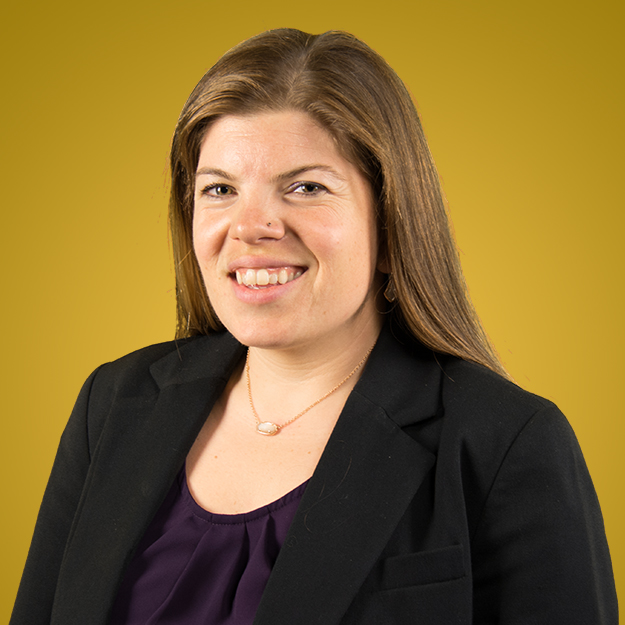
Jessica Rudd
Graduation Date: Summer 2020
Dissertation: Quantitatively Motivated Model Development Framework: Downstream Analysis Effects of Normalization Strategies
Dissertation Advisor: Dr. Herman Ray
Current Position: Senior Data Engineer, Intuit Mailchimp
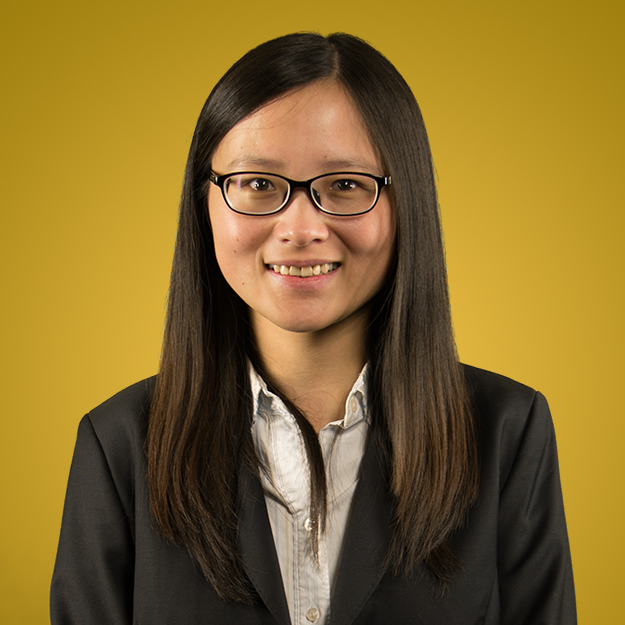
Graduation Date: Spring 2020
Dissertation: Data-driven Investment Decisions in P2P Lending: Strategies of Integrating Credit Scoring and Profit Scoring
Dissertation Advisor: Dr. Sherry NI
Current Position: Applied Scientist II, Amazon
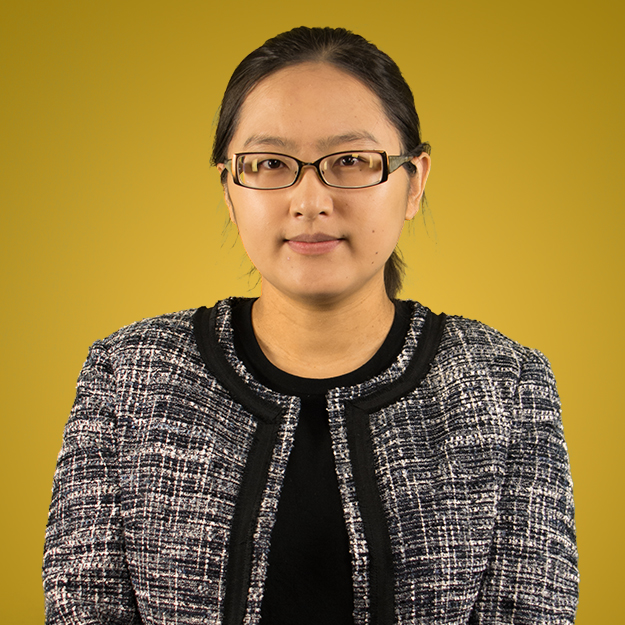
Dissertation: A Novel Penalized Log-likelihood Function for Class Imbalance Problem
Current Position: Data Scientist/Research Engineer, Hewlett Packard Enterprise

Dissertation: Attack and Defense in Security Analytics
Dissertation Advisor: Dr. Selena He
Current Position: NLP Data Scientist, NBME
2015 - 2016

Edwin Baidoo
Graduation Date: Spring 2020
Dissertation: A Credit Analysis of the Unbanked and Underbanked: An Argument for Alternative Data
Dissertation Advisor: Dr. Stefano Mazzotta
Current Position: Assistant Professor, Business Analytics, Tennessee Technological University
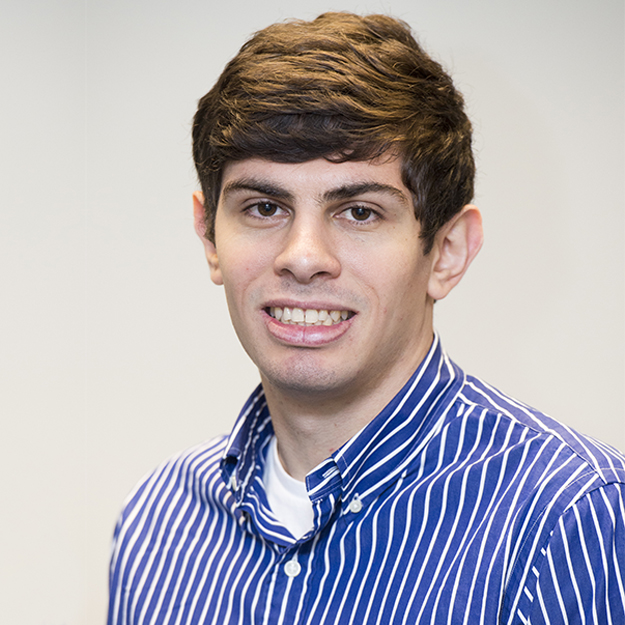
Bogdan Gadidov
Graduation Date: Summer 2019
Dissertation: One- and Two-Step Estimation of Time Variant Parameters and Nonparametric Quantiles
Dissertation Advisor: Dr. Mohammed Chowdhury
Current Position: Data Scientist, Variant

Dissertation: Biologically Interpretable, Integrative Deep Learning for Cancer Survival Analysis
Dissertation Advisor: Dr. Mingon Kang
Current Position: Assistant Professor, Chinese Academy of Medical Sciences, Peking Union Medical College

Graduation Date: Spring 2019
Dissertation: Deep Embedding Kernel
Current Position: Assistant Professor, Information Technology, Kennesaw State University

Bob Venderheyden
Graduation Date: Fall 2019
Dissertation: Ordinal Hyperplane Loss
Dissertation Advisor: Dr. Ying Xie
Current Position: Principal Data Scientist, Microsoft
Contact Info
Kennesaw Campus 1000 Chastain Road Kennesaw, GA 30144
Marietta Campus 1100 South Marietta Pkwy Marietta, GA 30060
Campus Maps
Phone 470-KSU-INFO (470-578-4636)
kennesaw.edu/info
Media Resources
Resources For
Related Links
- Financial Aid
- Degrees, Majors & Programs
- Job Opportunities
- Campus Security
- Global Education
- Sustainability
- Accessibility
470-KSU-INFO (470-578-4636)
© 2024 Kennesaw State University. All Rights Reserved.
- Privacy Statement
- Accreditation
- Emergency Information
- Report a Concern
- Open Records
- Human Trafficking Notice
| You might be using an unsupported or outdated browser. To get the best possible experience please use the latest version of Chrome, Firefox, Safari, or Microsoft Edge to view this website. |
Where To Earn A Ph.D. In Data Science Online In 2024

Updated: Apr 3, 2024, 2:15pm

Data science is among the most in-demand skill sets in the modern economy. Data science professionals help businesses make decisions by creating analytical models, combining elements of math, artificial intelligence, machine learning and statistics.
If you want to pursue a high-paying data science career or teach data science at the college level, you may want to earn a terminal degree in the field. Online Ph.D. in data science programs allow you to advance your career while balancing other responsibilities at work or home.
We found two online data science programs that met our ranking criteria. Read on to learn more about these schools and find answers to frequently asked questions about data science.
Why You Can Trust Forbes Advisor Education
Forbes Advisor’s education editors are committed to producing unbiased rankings and informative articles covering online colleges, tech bootcamps and career paths. Our ranking methodologies use data from the National Center for Education Statistics , education providers, and reputable educational and professional organizations. An advisory board of educators and other subject matter experts reviews and verifies our content to bring you trustworthy, up-to-date information. Advertisers do not influence our rankings or editorial content.
- 6,290 accredited, nonprofit colleges and universities analyzed nationwide
- 52 reputable tech bootcamp providers evaluated for our rankings
- All content is fact-checked and updated on an annual basis
- Rankings undergo five rounds of fact-checking
- Only 7.12% of all colleges, universities and bootcamp providers we consider are awarded
Online Ph.D. in Data Science Option
Capitol technology university, national university.
Located just outside Washington, D.C., in South Laurel, Maryland, Capitol Technology University offers an online doctoral degree in business analytics and data science. The program includes a limited residency requirement: Students must complete a course in contemporary research in management on campus, during which they take a qualifying exam. The degree requires 54 to 66 credits, and students can graduate within three years.
All students must also complete a dissertation and an oral defense of their work. The program costs $950 per credit for both in-state and out-of-state learners. Retired and active duty military receive a tuition discount.
At a Glance
- School Type: Private
- Application Fee: $100
- Degree Credit Requirements: 54 to 66 credits
- Program Enrollment Options: Part-time
- Notable Major-Specific Courses: Management theory in a global economy; analytics and decision analysis
- Concentrations Available: N/A
- In-Person Requirements: Yes, for residency
Based in San Diego, California, National University (NU) offers a variety of online programs, including a Ph.D. in data science. NU’s program requires 60 credits and takes an estimated 40 months. NU aims for flexibility, delivering coursework asynchronously and offering a new start date each Monday. The curriculum comprises 20 courses covering data science principles and data preparation methods.
NU runs on the quarter system and charges $442 per quarter unit for graduate courses. The program does not include any in-person requirements.
- Application Fee: Free
- Degree Credit Requirements: 60 credits
- Notable Major-Specific Courses: Principles of data science, data preparation methods
- In-Person Requirements: No
How To Find the Right Online Ph.D. in Data Science for You
Consider your future goals.
A Ph.D. in data science makes sense if you want to become a college professor , conduct original research or compete for the highest-paying and most cognitively demanding business analytics and machine learning positions. If you plan to pursue other careers, you may not need a terminal degree in this field.
If you want to work in academia, make sure your chosen doctorate in data science includes a dissertation requirement. A dissertation allows you to perform original research and contribute to scholarship in your field before you graduate. In turn, you’ll get a sense of your chosen career and a head start on professional publication.
Understand Your Expenses and Financing Options
Per-credit tuition rates for the programs in our guide ranged from $442 to $950. A 60-credit degree from NU totals about $26,500, while the 66-credit option at Capitol Tech costs more than $62,000.
Private universities, including NU and Capitol Tech, tend to cost more than public schools. Graduate students at nonprofit private universities paid an average of $20,408 per year in 2022-23, according to the National Center for Education Statistics . Over the course of a typical three-year Ph.D. program, this translates to about $61,000. This roughly matches Capitol Tech’s tuition, while NU offers a more affordable program.
While a Ph.D. might help you land a lucrative role in the long run, the upfront investment is still significant. Make sure to fill out the FAFSA ® to access federal student aid. This application is the gateway to opportunities like scholarships, grants and loans. You can pursue similar opportunities through schools and nonprofit organizations.
As a doctoral student, you may be able to access graduate assistantships or stipends, but these are often reserved for on-campus students who teach undergraduates or assist professors with research.
Should You Enroll in a Ph.D. in Data Science Online?
Pursuing a Ph.D. in data science online suits a specific kind of learner. To decide if that’s you, ask yourself a few key questions:
- What’s my budget? In some cases, public universities allow students who exclusively enroll in online courses to pay in-state or otherwise discounted tuition rates. Even if you have to pay full price, distance learners generally save on costs associated with housing and transportation.
- What are my other commitments? Distance learning is often a good fit for parents and students who need to work full time while pursuing their degree. Learners with outside responsibilities might pursue a program with asynchronous course delivery, which eliminates scheduled class sessions.
- What’s my learning style? Distance learning requires a great deal of discipline, organization and time management. If you need external accountability or prefer the structure of a peer group or physical classroom, on-campus learning might offer a better fit.
Accreditation for Online Ph.D.s in Data Science
There are two important types of college accreditation to consider: institutional and programmatic.
Institutional accreditation is essential; it involves vetting schools to ensure the quality of their finances, academics, and faculty, among other areas. The Council for Higher Education Accreditation (CHEA) and U.S. Department of Education oversee the regional agencies that administer this process.
You should only enroll at institutionally accredited schools. Otherwise, you will be ineligible for federal financial aid. You can check a school’s accreditation status on its website or by visiting the directory on CHEA’s website .
Individual departments and degrees earn programmatic accreditation based on their curriculum, faculty and learner outcomes. However, this process has not been widely established for data science programs, so it shouldn’t make or break your enrollment decision. However, you can still keep an eye out for accreditation from the Data Science Council of America (DASCA).
Our Methodology
We ranked two accredited, nonprofit colleges offering online Ph.D.s in data science in the U.S. using 15 data points in the categories of student experience, credibility, student outcomes and affordability. We pulled data for these categories from reliable resources such as the Integrated Postsecondary Education Data System ; private, third-party data sources; and individual school and program websites.
Data is accurate as of February 2024. Note that because online doctorates are relatively uncommon, fewer schools meet our ranking standards at the doctoral level.
We scored schools based on the following metrics:
Student Experience:
- Student-to-faculty ratio
- Socioeconomic diversity
- Availability of online coursework
- Total number of graduate assistants
- Proportion of graduate students enrolled in at least some distance education
Credibility:
- Fully accredited
- Programmatic accreditation status
- Nonprofit status
Student Outcomes:
- Overall graduation rate
- Median earnings 10 years after graduation
Affordability:
- In-state graduate student tuition
- In-state graduate student fees
- Alternative tuition plans offered
- Median federal student loan debt
- Student loan default rate
We listed the two schools in the U.S. that met our ranking criteria.
Find our full list of methodologies here .
Frequently Asked Questions (FAQs) About Earning a Ph.D. in Data Science Online
Can i do a ph.d. in data science online.
Yes, you can. National University and Capitol Technology University both offer Ph.D. programs in data science that you can complete mostly or entirely online.
Is a Ph.D. worth it for data science?
It depends on your goals and circumstances. A Ph.D. in data science may be a good fit if you want to pursue a career in research or academia or compete for advanced, lucrative positions in business analytics, artificial intelligence or machine learning.
Is it okay to get a Ph.D. online?
Yes, as long as the program is accredited. Distance learning requires strong motivation and self-discipline, so it suits some students better than others.
Can you become a professor with an online Ph.D.?
Yes, you can. Online diplomas feature the same coursework and degree requirements as in-person degrees, and your degree won’t say “online”.
- Best Online Bachelor’s Degrees In Cybersecurity
- Best Master’s In Computer Science Online
- Best Online Data Science Master’s Degrees
- Best Online Master’s In Computer Engineering
- Best Online Master’s In Information Technology Programs
- Best Software Engineering Master’s Online
- Best Master’s In Cybersecurity Online Degrees
- Best Online Computer Programming Degrees
- Best Online Information Technology Degree
- Best Online Software Engineering Degrees
- Best Online Computer Science Degrees
- How To Become A Cybersecurity Analyst
- How To Become a Web Developer
- How To Become A Sales Engineer
- How To Become a Software Engineer
- Careers In Cybersecurity
- 10 Careers In Game Design To Consider
- How To Become A Cybersecurity Engineer
- How To Become A Game Developer
- Earning An Associate In Computer Science
- Earning A Bachelor’s Degree In Cybersecurity
- How To Become A Cybersecurity Specialist
- Cybersecurity Salary Guide
- The 7 Best Programming Languages To Learn For Beginners
- How Long Does It Take To Learn Coding? And Other Coding Questions
- How To Learn Python For Free
- Artificial Intelligence In Education
- Cybersecurity Degree Guide
- Software Developer Vs. Software Engineer
- What Is CISSP Certification? Qualifications, Benefits And Salary
- Ask A Tech Recruiter

How To Become A Computer And Information Systems Manager
How To Become A Computer Programmer: A Step-By-Step Guide

2024 Tech Industry Statistics
Computer Science Degree Guide: Courses, Careers And Online Options
How To Become A Network Engineer: Job Outlook And Salary
How To Become A Cloud Developer: Salary, Education And Job Outlook
Mikeie Reiland is a writer who has written features for Oxford American, Bitter Southerner, Gravy, and SB Nation, among other publications. He received a James Beard nomination for a feature he wrote in 2023.
PhD in Applied Mathematics
Phd in applied mathematics degree.
Applied Mathematics at the Harvard John A. Paulson School of Engineering is an interdisciplinary field that focuses on the creation and imaginative use of mathematical concepts to pose and solve problems over the entire gamut of the physical and biomedical sciences and engineering, and increasingly, the social sciences and humanities. The program has focuses on understanding nature through the fusion of Artificial Intelligence, Computing (classical to quantum), and Mathematics. We value foundational contributions, societal impact, and ethics in our work. Our program uniquely interfaces with diverse fields, including physics, neuroscience, materials science, economics, biology and fluid mechanics, to tackle some of the most pressing challenges of our time, such as sustainability, responsible digital transformations, and health and well-being.
Working individually and as part of teams collaborating across the University and beyond, you will partner with faculty to quantitatively describe, predict, design and control phenomena in a range of fields. Projects current and past students have worked on include collaborations with mechanical engineers to uncover some of the fundamental properties of artificial muscle fibers for soft robotics and developing new ways to simulate tens of thousands of bubbles in foamy flows for industrial applications such as food and drug production.
Our core mission is to provide students with individualized programs tailored to their interests, needs, and background. We welcome students from diverse technical backgrounds. Our program is dedicated to the principles of diversity, equity, and inclusion. We celebrate and value differences among our members, and we strive to create an equitable and inclusive environment for people of all backgrounds.
APPLY NOW >
Applied Mathematics PhD Degree
Harvard School of Engineering offers a Doctor of Philosophy (Ph.D.) degree in Applied Mathematics conferred through the Harvard Kenneth C. Griffin Graduate School of Arts and Sciences . Doctoral students may earn the masters degree en route to the Ph.D. Prospective students apply through Harvard Griffin GSAS; in the online application, select “Engineering and Applied Sciences” as your program choice and select “PhD Applied Math” in the Area of Study menu.
The Applied Mathematics program does not offer an independent Masters Degree.
Applied Mathematics PhD Career Paths
Our graduates have gone on to careers such as start-up pioneers, social innovators, and a range of careers in industry in organizations like the Kingdom of Morocco, Meta, and Bloomberg. Others have secured faculty positions at Dartmouth, Imperial College in London, and UCLA. More generally, students with a PhD in Applied Mathematics can go on to careers in academia, banking, data science, bioinformatics, management consulting, government/military research, and more. Also, r ead about some of our Applied Mathematics alumni .
Admissions & Academic Requirements
Please review the admissions requirements and other information before applying. Our website also provides admissions guidance , program-specific requirements , and a PhD program academic timeline .
Academic Background
Applicants typically have bachelor’s degrees in the natural sciences, mathematics, computer science, or engineering.
Standardized Tests
GRE General: Not Accepted
Applied Mathematics Faculty & Research Areas
View a list of our Applied Mathematics faculty and applied mathematics affiliated research areas , Please note that faculty members listed as “Affiliates" or "Lecturers" cannot serve as the primary research advisor.
Applied Mathematics Centers & Initiatives
View a list of the research centers & initiatives at SEAS and the Applied Mathematics faculty engagement with these entities .
Graduate Student Clubs
Graduate student clubs and organizations bring students together to share topics of mutual interest. These clubs often serve as an important adjunct to course work by sponsoring social events and lectures. Graduate student clubs are supported by the Harvard Kenneth C. Griffin School of Arts and Sciences. Explore the list of active clubs and organizations .
Funding and Scholarship
Learn more about financial support for PhD students.
- How to Apply
Learn more about how to apply or review frequently asked questions for prospective graduate students.
In Applied Mathematics
- First-Year Exploration
- Areas of Application
- AM & Economics
- How to Declare
- Who are my Advisors?
- Secondary Field
- Senior Thesis
- Research for Course Credit (AM 91R & AM 99R)
- AB/SM Information
- Peer Concentration Advisors (PCA) Program
- Student Organizations
- PhD Timeline
- PhD Model Program (Course Guidelines)
- Oral Qualifying Examination
- Committee Meetings
- Committee on Higher Degrees
- Research Interest Comparison
- Collaborations
- Cross-Harvard Engagement
- Clubs & Organizations
- Centers & Initiatives
- Alumni Stories
Graduate News

Master's student capstone spotlight: AI-Enabled Information Extraction for Investment Management
Extracting complicated data from long documents
Academics , AI / Machine Learning , Applied Computation , Computer Science , Industry
Master's student capstone spotlight: AI-Assisted Frontline Negotiation
Speeding up document analysis ahead of negotiations
Academics , AI / Machine Learning , Applied Computation , Computer Science
Master's student capstone spotlight: A Remote Sensing Framework for Rail Incident Situational Awareness Drones
Using drones to rapidly assess disaster sites
PhD Program
Advanced undergraduate or masters level work in mathematics and statistics will provide a good background for the doctoral program. Quantitatively oriented students with degrees in other scientific fields are also encouraged to apply for admission. In particular, the department has expanded its research and educational activities towards computational biology, mathematical finance and information science. The doctoral program normally takes four to five years to complete.
Doctoral Program in Statistics
Statistics phd minor.

- Core Members
- Affiliate Members
- Interdisciplinary Doctoral Program in Statistics
- Minor in Statistics and Data Science
- MicroMasters program in Statistics and Data Science
- Data Science and Machine Learning: Making Data-Driven Decisions
- Norbert Wiener Fellowship
- Stochastics and Statistics Seminar
- IDSS Distinguished Seminars
- IDSS Special Seminar
- SDSC Special Events
- Online events
- IDS.190 Topics in Bayesian Modeling and Computation
- Past Events
- LIDS & Stats Tea
- Interdisciplinary PhD in Mathematics and Statistics
Requirements: Students must complete their primary program’s degree requirements along with the IDPS requirements. Statistics requirements must not unreasonably impact performance or progress in a student’s primary degree program.
PhD Earned on Completion: Mathematics and Statistics
IDPS/Mathematics Chair : Philippe Rigollet
| IDS.190 | Doctoral Seminar in Statistics P |
| (pick one) | |
| 6.7700 (6.436) | Fundamentals of Probability B |
| 18.675 | Theory of Probability B |
| (pick one) | |
| 18.655 | Mathematical Statistics A- |
| IDS.160 | Mathematical Statistics – A Non-Asymptotic Approach A- |
| (pick one) B (all options) | |
| 6.7220 (6.252/15.084) | Nonlinear Optimization |
| 6.7230 (6.256) | Algebraic Techniques and Semidefinite Optimization |
| 6.7810 (6.438) | Algorithms for Inference |
| 6.7900 (6.867) | Machine Learning |
| 6.7910 (9.520/6.860) | Statistical Learning Theory and Applications |
| 6.7320 (18.337/6.338) | Numerical Computing and Interactive Software |
| 18.338 | Eigenvalues of Random Matrices |
| 6.5210 (18.415/6.854) | Advanced Algorithms |
| 6.5220 (18.416/6.856) | Randomized Algorithms |
| 18.657 | Topics in Statistics |
| (pick one) B (all options) | |
| 6.8800 (6.555, 16.456/HST.582) | Biomedical Signal and Image Processing |
| 6.8300 (6.869) | Advances in Computer Vision |
| 9.073/HST.460 | Statistics for Neuroscience Research |
| 9.272/HST.576 | Topics in Neural Signal Processing |
| 18.367 | Waves and Imaging |
| 6.3732 (IDS.131/6.439) | Statistics, Computation and Applications |
MIT Statistics + Data Science Center Massachusetts Institute of Technology 77 Massachusetts Avenue Cambridge, MA 02139-4307 617-253-1764

- Accessibility
- Interdisciplinary PhD in Aero/Astro and Statistics
- Interdisciplinary PhD in Brain and Cognitive Sciences and Statistics
- Interdisciplinary PhD in Economics and Statistics
- Interdisciplinary PhD in Mechanical Engineering and Statistics
- Interdisciplinary PhD in Physics and Statistics
- Interdisciplinary PhD in Political Science and Statistics
- Interdisciplinary PhD in Social & Engineering Systems and Statistics
- LIDS & Stats Tea
- Spring 2023
- Spring 2022
- Spring 2021
- Fall – Spring 2020
- Fall 2019 – IDS.190 – Topics in Bayesian Modeling and Computation
- Fall 2019 – Spring 2019
- Fall 2018 and earlier
- Menu Close
- Search
PhD in Applied Mathematics and Statistics
Create knowledge at the nation’s leading research institution. Our doctoral program in applied mathematics and statistics prepares you for leadership, no matter what professional path you choose.

With an emphasis on mathematical reasoning, mathematical modeling and computation, interdisciplinary, and the development of new methodology, the department’s doctoral program produces graduates with broad expertise, who have worked in cutting-edge advances in applied mathematics and statistics, and who are prepared to pursue careers in academia, industry, the public sector, and more.
Research and academic opportunities in the doctoral program cover a wide range of interconnected areas within applied mathematics that reflect the department faculty’s diverse scientific interests. These include:
- Data Science with a focus on theoretical foundations, modeling techniques, and algorithm development.
- Probability and statistics with a focus both on theory and applications, particularly related to machine learning.
- Financial mathematics , as well as a concentration in optimization/operations research, which address discrete and continuous optimization problems.
- Discrete mathematics , with a focus on combinatorics and graph theory.
- Computational and applied mathematics , with a focus on the development of mathematical and numerical models for various applications in fluid dynamics, shape analysis and biomedical engineering.
Ph.D. Student Handbook
Explore your options

Pursue a PhD with a focus on computational medicine
Doctoral candidates can focus their studies on computational medicine, through a partnership with JHU’s Institute for Computational Medicine, a collaboration between JHU’s School of Engineering and the renowned School of Medicine.
A commitment to discovery

Connecting the Dots - Carey Priebe has worked with hospitals hoping to reduce stress on surgical nurses, shown how satellites can spot Martian volcanoes, and given law enforcement new tools against human traffickers, shadowy financial networks, and corporate fraud.

NSF Program Support Career-readiness for Graduate Students - To help prepare graduate students in the mathematical sciences for careers in business, industry, and government, the Johns Hopkins Engineering and the University of Illinois at Urbana-Champaign are partnering to create the Internship Network in the Mathematical Sciences (INMAS).

Computational and Data Science
Interdisciplinary Ph.D. in Computational & Data Science. Research-intensive, programming, communication skills.
Home » Program » Computational and Data Science, Ph.D.
Computational and Data Science, Ph.D.
The Ph.D. in Computational and Data Science is an interdisciplinary program that includes faculty from Agriculture, Biology, Chemistry, Computer Science, Engineering Technology, Geosciences, Mathematical Sciences, and Physics and Astronomy.
The program is research-intensive and applied in nature, seeking to produce graduates with competency in the following three key areas:
- Mastery of the mathematical methods of computation as applied to scientific research investigations coupled with a firm understanding of the underlying fundamental science in at least one disciplinary specialization.
- Deep knowledge of programming languages, scientific programming, and computing technology so that graduates can adapt and grow as computing systems evolve
- effective written and oral communication skills so that graduates are prepared to assume leadership positions in academia, national labs, and industry.
The Ph.D. in Computational and Data Science program is designed for students who are working toward their doctoral degrees. However, with a few extra courses and requirements, most students in the program can complete a master's degree in mathematics, Computer Science, or Data Science before they graduate.
Requirements
Information.
News Briefs

Alum find success in field after graduation
Dr. Robert Michael began his graduate studies at MTSU in 2008 in the Department of Mathematics. In 2014, he completed his Ph.D. in Computational Science and his master’s degree in Computer Science. His dissertation focused on computational chemistry.
After graduating, he became an HPC specialist at St. Jude Children’s Research Hospital, after which he became Oak Ridge National Laboratory’s Chief Data Architect. He is currently an HPC System Architect at Roche Sequencing Solutions.
Michael, J. R. (2014). Analysis of Thermal Motion Effects on the Electron Density via Computational Simulations (Order No. 3668039). Available from Dissertations & Theses @ Middle Tennessee State University; ProQuest Dissertations & Theses Global. (1647473197).

Alum's research focuses on mathematical models of tumor growth
Dr. Richard Ewool began his undergraduate studies in Ghana. After joining the Ph.D. program, his research and undergraduate studies focused on Mathematical models of tumor growth. After graduating, he became an Assistant Professor of Mathematics at Baptist Health Services University in Memphis.
Ewool, R. C. (2016). Mathematical modeling and simulation of a multiscale tumor induced angiogenesis model (Order No. 10146829). Available from Dissertations & Theses @ Middle Tennessee State University; ProQuest Dissertations & Theses Global. (1829637016).

Related Media

Since computational and data science involves using computers to solve scientific problems, graduates can work as research scientists in almost any field of science or engineering in industry or government, or at a university. MTSU’s program has focus areas in bioinformatics, biological modeling, computational chemistry, computational graph theory, computational physics, engineering and differential equations, high performance computing, and machine learning and remote sensing. In each of these areas, MTSU faculty and students are working on cutting-edge research projects that cut across traditional departmental boundaries.
Employers of MTSU alumni include
Our first graduates from the Computational and Data Science Ph.D. program have found jobs or received offers in companies and academic positions at universities including:
- St. Jude's Children's Hospital
- John Hopkin's University
- Southern Arkansas State University
- Texas A&M
- Oak Ridge National Laboratory
- Duke University

REQUIREMENTS

Dr. John Wallin
Dr. Rafet Al-Tobasei
Dr. Vishwas N Bedekar
Dr. Song Cui
Dr. Wandi Ding
Dr. Misa Faezipour
Dr. Don Hong
Dr. Steve Howard
Dr. Abdul Khaliq
Dr. Jing Kong
Dr. Rachel N. Leander
Dr. Yeqian Liu
Dr. Preston J. MacDougall
Dr. Vajira Manathunga
Dr. Lei Miao
Dr. Mina Mohebbi
Dr. Henrique Momm
Dr. Joshua L. Phillips
Dr. Khem Poudel
Dr. Jaishree Ranganathan
Dr. Ramchandra Rimal
Dr. William Robertson
Dr. Emmanuel Rowe
Dr. Arpan Man Sainju
Dr. Suk Jai Seo
Dr. David Chris Stephens
Dr. Hanna Terletska
Dr. Anatoliy Volkov
Dr. Donald M. Walker
Dr. Donglin (Forrest) Wang
Dr. Qiang Wu
Dr. Lu Xiong
Dr. Xin Yang
Dr. Dong Ye
Dr. Xiaoya Zha
Dr. Hongbo Zhang
Dr. Zhou (Joe) Zhang

INFORMATION
Assistantships.
Research and teaching assistantships, with stipends beginning at $20,100, are available on a competitive basis to full-time students in the COMS program. In addition to the stipend, the university also pays all tuition and most fees for assistantship holders. Non-Tennessee residents who are awarded a graduate assistantship are not required to pay out-of-state fees. To learn more about the types of graduate assistantships and to download an application, visit the Graduate Studies Assistantship page.
The College of Graduate Studies also awards a limited number of scholarships. For additional information and applications, visit the Graduate Studies Finance page.
In addition to assistantships and scholarships, MTSU's Office of Financial Aid assists graduate students seeking other forms of financial support while in school.
Student Forms
- COMS Student Handbook
- COMS Degree Plan (.docx)
- COMS Degree Plan (.pdf)
- COMS Qualifying Exam Proposal
- COMS Qualifying Exam Results
- MTSU Graduate Student Forms
- Travel and Reimbursement Forms
- 25Live for Scheduling Rooms
Research in Computational and Data Science
Computation is now regarded as an equal and indispensable partner, along with theory and experiment, in the advance of scientific knowledge. Numerical simulation enables the study of complex systems and natural phenomena that would be too expensive or dangerous, or even impossible, to study by direct experimentation. The quest for increasing levels of detail and realism in such simulations requires enormous computational capacity, and has provided the impetus for dramatic breakthroughs in computer algorithms and architectures. Due to these advances, computational scientists can now solve large-scale problems that were once thought intractable.
Computational Science is in a rapidly growing multidisciplinary area with connections to the sciences, mathematics, and computer science. The program focuses on the development of problem-solving methodologies and robust tools for the solution of scientific problems.
The Computational and Data Science (COMS) program is a broad multidisciplinary area that encompasses applications in science, applied mathematics, numerical analysis, and computer science. Computer models and computer simulations have become an important part of the research repertoire, supplementing (and in some cases replacing) experimentation. Going from application area to computational results requires domain expertise, mathematical modeling, numerical analysis, algorithm development, software implementation, program execution, analysis, validation, and visualization of results. The COMS program comprises all of the above.
MTSU’s program and research includes elements from computer science, applied mathematics, and science. The COMS program focuses on the integration of knowledge and methodologies from all of these disciplines, but is also distinct from the rest.
It is hard to capture how broad the program is without looking at some of the publications recently submitted. They are from across virtually every discipline. However, the common theme is the use of computers to solve cutting-edge scientific problems.
Publications
Publications of the Computational and Data Science Faculty 2018-Present
Bold indicates a faculty author.
Al-Tobasei, Rafet, Ali Ali, Andre L.S. Garcia, Daniela Lourenco, Tim Leeds, and Mohamed Salem. 2021. “Genomic Predictions for Fillet Yield and Firmness in Rainbow Trout Using Reduced-Density SNP Panels.” BMC Genomics 22 (1). https://doi.org/10.1186/s12864-021-07404-9 .
Ali, Ali, Rafet Al-Tobasei , Brett Kenney, Timothy D. Leeds, and Mohamed Salem. 2018. “Integrated Analysis of LncRNA and MRNA Expression in Rainbow Trout Families Showing Variation in Muscle Growth and Fillet Quality Traits.” Scientific Reports 8 (1). https://doi.org/10.1038/s41598-018-30655-8 .
Ali, Ali, Rafet Al-Tobasei , Daniela Lourenco, Tim Leeds, Brett Kenney, and Mohamed Salem. 2019. “Genome-Wide Association Study Identifies Genomic Loci Affecting Filet Firmness and Protein Content in Rainbow Trout.” Frontiers in Genetics 10 (May). https://doi.org/10.3389/fgene.2019.00386 .
———. 2020a. “Genome-Wide Scan for Common Variants Associated with Intramuscular Fat and Moisture Content in Rainbow Trout.” BMC Genomics 21 (1). https://doi.org/10.1186/s12864-020-06932-0 .
———. 2020b. “Genome-Wide Identification of Loci Associated with Growth in Rainbow Trout.” BMC Genomics 21 (1). https://doi.org/10.1186/s12864-020-6617-x.
Alrammah, Huda, and Yi Gu . 2021. “Workflow Scheduling in Clouds Using Pareto Dominance for Makespan, Cost and Energy.” In ICC 2021 - IEEE International Conference on Communications . IEEE. https://doi.org/10.1109/ICC42927.2021.9500489 .
Alrammah, Huda, Yi Gu , and Zhifeng Liu. 2020. “Tri-Objective Workflow Scheduling and Optimization in Heterogeneous Cloud Environments.” In 2020 IEEE International Parallel and Distributed Processing Symposium Workshops (IPDPSW) . IEEE. https://doi.org/10.1109/IPDPSW50202.2020.00129 .
Alshehri, Asma, John Ford, and Rachel Leander . 2020. “The Impact of Maturation Time Distributions on the Structure and Growth of Cellular Populations.” Mathematical Biosciences and Engineering 17 (2). https://doi.org/10.3934/mbe.2020098 .
Alzahrani, S.S., and A .Q.M. Khaliq . 2019. “Fourier Spectral Exponential Time Differencing Methods for Multi-Dimensional Space-Fractional Reaction–Diffusion Equations.” Journal of Computational and Applied Mathematics 361 (December). https://doi.org/10.1016/j.cam.2019.04.001 .
Bagheri, Minoo, Hemant K. Tiwari, Anarina L. Murillo, Rafet Al-Tobasei , Donna K. Arnett, Tobias Kind, Dinesh Kumar Barupal, et al. 2020. “A Lipidome-Wide Association Study of the Lipoprotein Insulin Resistance Index.” Lipids in Health and Disease 19 (1). https://doi.org/10.1186/s12944-020-01321-8 .
Barlow, Angela T., Natasha E. Gerstenschlager, Jeremy F. Strayer, Alyson E. Lischka, D. Christopher Stephens , Kristin S. Hartland, and J. Christopher Willingham. 2018. “Scaffolding for Access to Productive Struggle.” Mathematics Teaching in the Middle School 23 (4). https://doi.org/10.5951/mathteacmiddscho.23.4.0202 .
Barlow, Angela T., Alyson E. Lischka, James C. Willingham, Kristin Hartland, and D. Christopher Stephens . 2018. “The Relationship of Implicit Theories to Elementary Teachers’ Patterns of Engagement in a Mathematics-Focused Professional Development Setting. .” Mid-Western Educational Researcher 30 (3): 93–122.
Barron, Mace G., Ryan R. Otter , Kristin A. Connors, Aude Kienzler, and Michelle R. Embry. 2021. “Ecological Thresholds of Toxicological Concern: A Review.” Frontiers in Toxicology 3 (March). https://doi.org/10.3389/ftox.2021.640183 .
Beaubien, Gale B., Connor I. Olson, and Ryan R. Otter . 2019. “The Role of Sexual Dimorphism and Tissue Selection in Ecotoxicological Studies Using the Riparian Spider Tetragnatha Elongata.” Bulletin of Environmental Contamination and Toxicology 103 (2). https://doi.org/10.1007/s00128-019-02632-y .
Beaubien, Gale B., Connor I. Olson, Andrew C. Todd, and Ryan R. Otter . 2020. “The Spider Exposure Pathway and the Potential Risk to Arachnivorous Birds.” Environmental Toxicology and Chemistry 39 (11). https://doi.org/10.1002/etc.4848 .
Biala, T.A., and A.Q.M. Khaliq . 2021. “A Fractional-Order Compartmental Model for the Spread of the COVID-19 Pandemic.” Communications in Nonlinear Science and Numerical Simulation 98 (July). https://doi.org/10.1016/j.cnsns.2021.105764 .
Bratsos, A.G., and A.Q.M. Khaliq . 2019. “An Exponential Time Differencing Method of Lines for Burgers–Fisher and Coupled Burgers Equations.” Journal of Computational and Applied Mathematics 356 (August). https://doi.org/10.1016/j.cam.2019.01.028 .
Brown, Ei, Zackery D. Fleischman, Larry D. Merkle, Emmanuel Rowe , Arnold Burger, Stephen A. Payne, and Mark Dubinskii. 2018. “Optical Spectroscopy of Holmium Doped K2LaCl5.” Journal of Luminescence 196 (April). https://doi.org/10.1016/j.jlumin.2017.12.040 .
Brown, Ei, Zackery D. Fleischman, Larry D. Merkle, Emmanuel Rowe , Arnold Burger, Stephen Payne, and Mark Dubinskiy. 2018. “Infrared Absorption and Fluorescence Properties of Holmium Doped Potassium Lanthanum Chloride (Conference Presentation).” In Laser Technology for Defense and Security XIV , edited by Mark Dubinskiy and Timothy C. Newell. SPIE. https://doi.org/10.1117/12.2309578 .
Castillo, Carlos, Henrique G. Momm , Robert R. Wells, Ronald L. Bingner, and Rafael Pérez. 2021. “A GIS Focal Approach for Characterizing Gully Geometry.” Earth Surface Processes and Landforms 46 (9). https://doi.org/10.1002/esp.5122 .
Chapagain, Pratima, Brock Arivett, Beth M. Cleveland, Donald M. Walker , and Mohamed Salem. 2019. “Analysis of the Fecal Microbiota of Fast- and Slow-Growing Rainbow Trout (Oncorhynchus Mykiss).” BMC Genomics 20 (1). https://doi.org/10.1186/s12864-019-6175-2 .
Chapagain, Pratima, Donald Walker , Tim Leeds, Beth M. Cleveland, and Mohamed Salem. 2020. “Distinct Microbial Assemblages Associated with Genetic Selection for High- and Low- Muscle Yield in Rainbow Trout.” BMC Genomics 21 (1). https://doi.org/10.1186/s12864-020-07204-7 .
Chen, Shanshan, Junping Shi, Zhisheng Shuai, and Yixiang Wu . 2019. “Spectral Monotonicity of Perturbed Quasi-Positive Matrices with Applications in Population Dynamics,” November.
———. 2020. “Asymptotic Profiles of the Steady States for an SIS Epidemic Patch Model with Asymmetric Connectivity Matrix.” Journal of Mathematical Biology 80 (7). https://doi.org/10.1007/s00285-020-01497-8 .
Connors, Kristin A., Amy Beasley, Mace G. Barron, Scott E. Belanger, Mark Bonnell, Jessica L. Brill, Dick de Zwart, et al. 2019. “Creation of a Curated Aquatic Toxicology Database: EnviroTox.” Environmental Toxicology and Chemistry 38 (5). https://doi.org/10.1002/etc.4382 .
Cui, Song, Qiang Wu , James West, and Jiangping Bai. 2019. “Machine Learning-Based Microarray Analyses Indicate Low-Expression Genes Might Collectively Influence PAH Disease.” PLOS Computational Biology 15 (8). https://doi.org/10.1371/journal.pcbi.1007264 .
Cui, Xia, Thomas Goff, Song Cui , Dorothy Menefee, Qiang Wu , Nithya Rajan, Shyam Nair, Nate Phillips, and Forbes Walker. 2021. “Predicting Carbon and Water Vapor Fluxes Using Machine Learning and Novel Feature Ranking Algorithms.” Science of The Total Environment 775 (June). https://doi.org/10.1016/j.scitotenv.2021.145130 .
Deng, Keng, Glenn F. Webb, and Yixiang Wu . 2020. “Analysis of Age and Spatially Dependent Population Model: Application to Forest Growth.” Nonlinear Analysis: Real World Applications 56 (December). https://doi.org/10.1016/j.nonrwa.2020.103164 .
Ding, Wandi , Ryan Florida, Jeffery Summers, Puran Nepal, and Ben Burton. 2019. “Experience and Lessons Learned from Using SIMIODE Modeling Scenarios.” PRIMUS 29 (6). https://doi.org/10.1080/10511970.2018.1488318 .
- Barbosa, Salvador . 2020. “Using Holographically Compressed Embeddings in Question Answering.” In Computer Science & Information Technology . AIRCC Publishing Corporation. https://doi.org/10.5121/csit.2020.100919 .
Ellingham, M. N., Songling Shan, Dong Ye , and Xiaoya Zha. 2021. “Toughness and Spanning Trees in K4‐minor‐free Graphs.” Journal of Graph Theory 96 (3). https://doi.org/10.1002/jgt.22620 .
Epifanovsky, Evgeny, Andrew T. B. Gilbert, Xintian Feng, Joonho Lee, Yuezhi Mao, Narbe Mardirossian, Pavel Pokhilko, et al . 2021. “Software for the Frontiers of Quantum Chemistry: An Overview of Developments in the Q-Chem 5 Package.” The Journal of Chemical Physics 155 (8). https://doi.org/10.1063/5.0055522 .
Faezipour, Misagh, and Miad Faezipour. 2020. “Sustainable Smartphone-Based Healthcare Systems: A Systems Engineering Approach to Assess the Efficacy of Respiratory Monitoring Apps.” Sustainability 12 (12). https://doi.org/10.3390/su12125061 .
———. 2021a. “Smart Healthcare Monitoring Apps with a Flavor of Systems Engineering.” In . https://doi.org/10.1007/978-3-030-71051-4_48 .
———. 2021b. “Efficacy of Smart EEG Monitoring Amidst the COVID-19 Pandemic.” Electronics 10 (9). https://doi.org/10.3390/electronics10091001 .
———. 2021c. “System Dynamics Modeling for Smartphone-Based Healthcare Tools: Case Study on ECG Monitoring.” IEEE Systems Journal 15 (2). https://doi.org/10.1109/JSYST.2020.3009187 .
Faezipour, Misagh , and Susan Ferreira. 2018. “A System Dynamics Approach for Sustainable Water Management in Hospitals.” IEEE Systems Journal 12 (2). https://doi.org/10.1109/JSYST.2016.2573141 .
Feng, Yunlong, and Qiang Wu. 2020. “Learning under (1 + ϵ)-Moment Conditions.” Applied and Computational Harmonic Analysis 49 (2). https://doi.org/10.1016/j.acha.2020.05.009 .
———. 2021. “A Framework of Learning Through Empirical Gain Maximization.” Neural Computation 33 (6). https://doi.org/10.1162/neco_a_01384 .
Fernando, Kushantha, and Vajira Manathunga . 2021. “An Alternative Approach to Evaluate American Options Price Using HJM Approach,” September.
Fitzgibbon, W. E., J. J. Morgan, G. F. Webb, And Y. Wu. 2020. “Analysis Of A Reaction–Diffusion Epidemic Model With Asymptomatic Transmission.” Journal of Biological Systems 28 (03). https://doi.org/10.1142/S0218339020500126 .
Fitzgibbon, William E., Jeffery J. Morgan, Glenn F. Webb, and Yixiang Wu. 2019. “Spatial Models of Vector-Host Epidemics with Directed Movement of Vectors over Long Distances.” Mathematical Biosciences 312 (June). https://doi.org/10.1016/j.mbs.2019.04.003 .
Fitzgibbon, William E., Jeffrey J. Morgan, Glenn F. Webb, and Yixiang Wu . 2020. “Modelling the Aqueous Transport of an Infectious Pathogen in Regional Communities: Application to the Cholera Outbreak in Haiti.” Journal of The Royal Society Interface 17 (169). https://doi.org/10.1098/rsif.2020.0429 .
Fitzgibbon, William, Jeffrey Morgan, Glenn Webb, and Yixiang Wu . 2020. “Maritime Transport and the Threat of Bio Invasion and the Spread of Infectious Disease.” In Computational Methods in Applied Sciences . https://doi.org/10.1007/978-3-030-37752-6_5 .
Gerstenschlager, Natasha, Angela T. Barlow, Alyson Lischka, Lucy Watson, Jeremy Strayer, D. Christopher Stephens , Kristin S. Hartland, and James C. Willingham. 2021. “Double Demonstration Lessons: Authentically Participating in an Inquiry Stance.” Mathematics Teacher Educator 9 (2). https://doi.org/10.5951/MTE.2020.0048 .
Grajal-Puche, Alejandro, Christopher M. Murray, Matthew Kearley, Mark Merchant, Christopher Nix, Jonathan K. Warner, and Donald M. Walker . 2020. “Microbial Assemblage Dynamics Within the American Alligator Nesting Ecosystem: A Comparative Approach Across Ecological Scales.” Microbial Ecology 80 (3). https://doi.org/10.1007/s00248-020-01522-9 .
Grisnik, Matthew, Olivia Bowers, Andrew J Moore, Benjamin F Jones, Joshua R Campbell, and Donald M Walker . 2020. “The Cutaneous Microbiota of Bats Has in Vitro Antifungal Activity against the White Nose Pathogen.” FEMS Microbiology Ecology 96 (2). https://doi.org/10.1093/femsec/fiz193 .
Grisnik, Matthew, Jacob Leys, Danny Bryan, Rebecca Hardman, Debra Miller, Vincent Cobb, Chris Ogle, et al. 2018. “Host and Geographic Range of Snake Fungal Disease in Tennessee, USA.” Herpetological Review 49 (October): 682–90.
Gu, Yi, and Chandu Budati. 2020. “Energy-Aware Workflow Scheduling and Optimization in Clouds Using Bat Algorithm.” Future Generation Computer Systems 113 (December). https://doi.org/10.1016/j.future.2020.06.031 .
Gulizia, J. P., K. M. Downs, and S. Cui . 2019. “Kudzu ( Pueraria Montana Var. Lobata ) Age Variability Effects on Total and Nutrient-Specific in Situ Rumen Degradation.” Journal of Applied Animal Research 47 (1). https://doi.org/10.1080/09712119.2019.1652615 .
Gulizia, Joseph, Kevin Downs, and Song Cui. 2019. “55 The Influence of Kudzu (Pueraria Montana Var. Lobata) Age on in Situ Rumen Degradation.” Journal of Animal Science 97 (Supplement_1). https://doi.org/10.1093/jas/skz053.194 .
Guo, X., T Hu, and Q. Wu. 2020. “Distributed Minimum Error Entropy Algorithms.” Journal of Machine Learning Research 21 (126): 1–31.
Guo, Xin, Lexin Li, and Qiang Wu . 2020. “Modeling Interactive Components by Coordinate Kernel Polynomial Models.” Mathematical Foundations of Computing 3 (4). https://doi.org/10.3934/mfc.2020010 .
Győri, Ervin, Michael D. Plummer, Dong Ye, and Xiaoya Zha. 2020. “Cycle Traversability for Claw-Free Graphs and Polyhedral Maps.” Combinatorica 40 (3). https://doi.org/10.1007/s00493-019-4042-z .
Haruna, Samuel I., Stephen H. Anderson, Ranjith P. Udawatta, Clark J. Gantzer, Nathan C. Phillips, S ong Cui , and Ying Gao. 2020. “Improving Soil Physical Properties through the Use of Cover Crops: A Review.” Agrosystems, Geosciences & Environment 3 (1). https://doi.org/10.1002/agg2.20105 .
He, Fangchao, and Qiang Wu . 2019. “Bias Corrected Regularization Kernel Method in Ranking.” Analysis and Applications 17 (01). https://doi.org/10.1142/S0219530518500161 .
He, Jinghua, Erling Wei, Dong Ye , and Shaohui Zhai. 2019. “On Perfect Matchings in Matching Covered Graphs.” Journal of Graph Theory 90 (4). https://doi.org/10.1002/jgt.22411 .
Hill, Aubree J., Jacob E. Leys, Danny Bryan, Fantasia M. Erdman, Katherine S. Malone, Gabrielle N. Russell, Roger D. Applegate, et al . 2018. “Common Cutaneous Bacteria Isolated from Snakes Inhibit Growth of Ophidiomyces Ophiodiicola.” EcoHealth 15 (1). https://doi.org/10.1007/s10393-017-1289-y .
Hong, Don . 2019. “On Scattered Data Representations Using Bivariate Splines. Handbook of Analytic-Computational Methods in Applied Mathematics.” In Handbook of Analytic-Computational Methods in Applied Mathematics , edited by George Anastassiou. Chapman and Hall/CRC. https://doi.org/10.1201/9780429123610 .
Hu, Ting, Qiang Wu , and Ding-Xuan Zhou. 2020. “Distributed Kernel Gradient Descent Algorithm for Minimum Error Entropy Principle.” Applied and Computational Harmonic Analysis 49 (1). https://doi.org/10.1016/j.acha.2019.01.002 .
———. 2021. “Kernel Gradient Descent Algorithm for Information Theoretic Learning.” Journal of Approximation Theory 263 (March). https://doi.org/10.1016/j.jat.2020.105518 .
Huang, Shouyou, Yunlong Feng, and Qiang Wu . 2021. “Learning Theory of Minimum Error Entropy under Weak Moment Conditions.” Analysis and Applications , March. https://doi.org/10.1142/S0219530521500044 .
Huang, Shouyou, and Qiang Wu . 2021. “Robust Pairwise Learning with Huber Loss.” Journal of Complexity 66 (October). https://doi.org/10.1016/j.jco.2021.101570 .
Hunsaker, Aaron, William B. Goodwin, Emmanuel Rowe , Caleb Wheeler, Liviu Matei, Vladimir Buliga, and Arnold Burger. 2021. “Ceramic Cs 2 HfCl 6 : A Novel Scintillation Material for Use in Gamma Ray Spectroscopy.” Crystal Research and Technology 56 (9). https://doi.org/10.1002/crat.202000166 .
Iskakov, Sergei, Hanna Terletska , and Emanuel Gull. 2018. “Momentum-Space Cluster Dual-Fermion Method.” Physical Review B 97 (12). https://doi.org/10.1103/PhysRevB.97.125114 .
Jator, S.N., and V. Manathunga . 2018. “Block Nyström Type Integrator for Bratu’s Equation.” Journal of Computational and Applied Mathematics 327 (January). https://doi.org/10.1016/j.cam.2017.06.025 .
Jones, R. Sky, and H.G. Momm . 2021. “An Index for Quantifying Geometric Point Disorder in Geospatial Applications.” Computers & Geosciences 151 (June). https://doi.org/10.1016/j.cageo.2021.104756 .
Jovanovich, Michael, and Joshua Phillips . 2018. “N-Task Learning: Solving Multiple or Unknown Numbers of Reinforcement Learning Problems.” Cognitive Science .
Kang, Liying, Weihua Lu, Yezhou Wu, Dong Ye , and Cun-Quan Zhang. 2018. “Circuit Decompositions and Shortest Circuit Coverings of Hypergraphs.” Graphs and Combinatorics 34 (2). https://doi.org/10.1007/s00373-018-1881-0 .
Kazmi, Kamran, and Abdul Q.M. Khaliq . 2020. “An Efficient Split-Step Method for Distributed-Order Space-Fractional Reaction-Diffusion Equations with Time-Dependent Boundary Conditions.” Applied Numerical Mathematics 147 (January). https://doi.org/10.1016/j.apnum.2019.08.019 .
Khan, Nibraas, and J oshua Phillips . 2020. “Combined Model for Sensory-Based and Feedback-Based Task Switching: Solving Hierarchical Reinforcement Learning Problems Statically and Dynamically with Transfer Learning.” In 2020 IEEE 32nd International Conference on Tools with Artificial Intelligence (ICTAI) . IEEE. https://doi.org/10.1109/ICTAI50040.2020.00055 .
Khiabani, Vahid H, Ahad S Nasab, and Vishwas Narayan Bedekar . 2018. “AN EXPERIMENTAL ADAPTIVE TEACHING PRACTICE.” Proceedings of the International Annual Conference of the American Society for Engineering Management. Huntsville: American Society for Engineering Management (ASEM). https://ezproxy.mtsu.edu/login?url=https://www.proquest.com/conference-papers-proceedings/experimental-adaptive-teaching-practice/docview/2193094250/se-2?accountid=4886 .
Leander, R. N ., Y. Wu, W. Ding , D. E. Nelson, and Z. Sinkala . 2021. “A Model of the Innate Immune Response to SARS-CoV-2 in the Alveolar Epithelium.” Royal Society Open Science 8 (8). https://doi.org/10.1098/rsos.210090 .
Leander, Rachel, Wandi Ding , and René A. Salinas. 2018. “Dedication to Suzanne Lenhart.” Natural Resource Modeling 31 (4). https://doi.org/10.1111/nrm.12198 .
Lewis, Conrad, Emil Proynov, Jianguo Yu, and Jing Kong . 2021. “Analyzing Cases of Significant Nondynamic Correlation with DFT Using the Atomic Populations of Effectively Localized Electrons,” September.
Li, Cen , Michael Hains, John Wallin , and Qiang Wu . 2019. “Applying Data Science Methods for Early Prediction of Undergraduate Student Retention.” In 2019 International Conference on Computational Science and Computational Intelligence (CSCI) . IEEE. https://doi.org/10.1109/CSCI49370.2019.00250 .
Li, Cen, Ebosehon Imeokparia, Michael Ketzner, and Tsega Tsahai. 2019. “Teaching the NAO Robot to Play a Human-Robot Interactive Game.” In 2019 International Conference on Computational Science and Computational Intelligence (CSCI) . IEEE. https://doi.org/10.1109/CSCI49370.2019.00134 .
Li, Qiuli, Wai Chee Shiu, Pak Kiu Sun, and Dong Ye . 2018. “On the Anti-Kekulé Problem of Cubic Graphs.” The Art of Discrete and Applied Mathematics 2 (1). https://doi.org/10.26493/2590-9770.1264.94b .
Li, Yuan, Song Cui , Scott X. Chang, and Qingping Zhang. 2019. “Liming Effects on Soil PH and Crop Yield Depend on Lime Material Type, Application Method and Rate, and Crop Species: A Global Meta-Analysis.” Journal of Soils and Sediments 19 (3). https://doi.org/10.1007/s11368-018-2120-2 .
Li, Yuan, Zhou Li, Scott X. Chang, Song Cui , Sindhu Jagadamma, Qingping Zhang, and Yanjiang Cai. 2020. “Residue Retention Promotes Soil Carbon Accumulation in Minimum Tillage Systems: Implications for Conservation Agriculture.” Science of The Total Environment 740 (October). https://doi.org/10.1016/j.scitotenv.2020.140147 .
Li, Yuan, Zhou Li, Song Cui , Scott X. Chang, Chunlin Jia, and Qingping Zhang. 2019. “A Global Synthesis of the Effect of Water and Nitrogen Input on Maize (Zea Mays) Yield, Water Productivity and Nitrogen Use Efficiency.” Agricultural and Forest Meteorology 268 (April). https://doi.org/10.1016/j.agrformet.2019.01.018 .
Li, Yuan, Zhou Li, Song Cui , Sindhu Jagadamma, and Qingping Zhang. 2019. “Residue Retention and Minimum Tillage Improve Physical Environment of the Soil in Croplands: A Global Meta-Analysis.” Soil and Tillage Research 194 (November). https://doi.org/10.1016/j.still.2019.06.009 .
Li, Yuan, Zhou Li, Song Cui , Guopeng Liang, and Qingping Zhang. 2021. “Microbial-Derived Carbon Components Are Critical for Enhancing Soil Organic Carbon in No-Tillage Croplands: A Global Perspective.” Soil and Tillage Research 205 (January). https://doi.org/10.1016/j.still.2020.104758 .
Li, Yuan, Zhou Li, Song Cui , and Qingping Zhang. 2020. “Trade-off between Soil PH, Bulk Density and Other Soil Physical Properties under Global No-Tillage Agriculture.” Geoderma 361 (March). https://doi.org/10.1016/j.geoderma.2019.114099 .
Li, Zhengzheng, Jiancheng Zou, Peizhou Yan, and Don Hong . 2021. “Non-Contact Real-Time Monitoring of Driver’s Physiological Parameters under Ambient Light Condition.” Intelligent Automation & Soft Computing 28 (3). https://doi.org/10.32604/iasc.2021.016516 .
Li, Zhou, Xingfa Lai, Qian Yang, Xuan Yang, Song Cui , and Yuying Shen. 2018. “In Search of Long-Term Sustainable Tillage and Straw Mulching Practices for a Maize-Winter Wheat-Soybean Rotation System in the Loess Plateau of China.” Field Crops Research 217 (March). https://doi.org/10.1016/j.fcr.2017.08.021 .
Li, Zhou, Xuan Yang, Song Cui , Qian Yang, Xianlong Yang, Juncheng Li, and Yuying Shen. 2018. “Developing Sustainable Cropping Systems by Integrating Crop Rotation with Conservation Tillage Practices on the Loess Plateau, a Long-Term Imperative.” Field Crops Research 222 (June). https://doi.org/10.1016/j.fcr.2018.03.027 .
Li, Zhou, Qingping Zhang, Wanrong Wei, Song Cui , Wei Tang, and Yuan Li. 2020. “Determining Effects of Water and Nitrogen Inputs on Wheat Yield and Water Productivity and Nitrogen Use Efficiency in China: A Quantitative Synthesis.” Agricultural Water Management 242 (December). https://doi.org/10.1016/j.agwat.2020.106397 .
Liang, Jingsai, Jiancheng Zou, and Don Hong . 2019. “Non-Gaussian Penalized PARAFAC Analysis for FMRI Data.” Frontiers in Applied Mathematics and Statistics 5 (August). https://doi.org/10.3389/fams.2019.00040 .
Lischka, Alyson E., Natasha E. Gerstenschlager, D. Christopher Stephens , Jeremy F. Strayer, and Angela T. Barlow. 2018. “Making Room for Inspecting Mistakes.” The Mathematics Teacher 111 (6). https://doi.org/10.5951/mathteacher.111.6.0432 .
Lischka, Alyson E., and D. Christopher Stephen s. 2020. “The Area Model: Building Mathematical Connections.” Mathematics Teacher: Learning and Teaching PK-12 113 (3). https://doi.org/10.5951/MTLT.2019.0115 .
Liu, Runrun, Martin Rolek, D . Christopher Stephens, Dong Ye , and Gexin Yu. 2021. “Connectivity for Kite-Linked Graphs.” SIAM Journal on Discrete Mathematics 35 (1). https://doi.org/10.1137/19M130282X .
Liu, Wenzhong, Serge Lawrencenko, Beifang Chen, M.N. Ellingham, Nora Hartsfield, Hui Yang, Dong Ye , and Xiaoya Zha . 2019. “Quadrangular Embeddings of Complete Graphs and the Even Map Color Theorem.” Journal of Combinatorial Theory, Series B 139 (November). https://doi.org/10.1016/j.jctb.2019.02.006 .
Liu, Yeqian . 2019. “Data Augmentation and Bayesian Methods for Multicategory Support Vector Machines.” International Journal of Data Science and Analysis 5 (3). https://doi.org/10.11648/j.ijdsa.20190503.12 .
Liu, Yeqian , and Junyu Chen. 2021. “Non-Parametric Analysis of Interval-Censored Survival Data with Application to a Phase III Metastatic Colorectal Cancer Clinical Trial.” Biomedical Statistics and Informatics 6 (1). https://doi.org/10.11648/j.bsi.20210601.13 .
Liu, Yeqian , Tao Hu, and Jianguo Sun. 2020. “Regression Analysis of Interval-Censored Failure Time Data with Cured Subgroup and Mismeasured Covariates.” Communications in Statistics - Theory and Methods 49 (1). https://doi.org/10.1080/03610926.2018.1535075 .
Liu, Yeqian , James Plott, and Yingxiao Huang. 2021. “Sieve Estimation for Mixture Cure Rate Model with Informatively Interval-Censored Failure Time Data.” American Journal of Theoretical and Applied Statistics 10 (3). https://doi.org/10.11648/j.ajtas.20211003.15 .
Lui, Yeqian . 2020. “Extended Bayesian Framework for Multicategory Support Vector Machine.” Journal of Statistics Applications & Probability 9 (1). https://doi.org/10.18576/jsap/090101 .
Lui, Yeqian , and Hanyi Li. 2021. “A Semiparametric Mixture Cure Model for Partly Interval Censored Failure Time Data.” Journal of Statistics Applications & Probability 10 (1). https://doi.org/10.18576/jsap/100101 .
Luquin, Eduardo, Miguel A. Campo‐Bescós, Rafael Muñoz‐Carpena, Ronald L. Bingner, Richard M. Cruse, Henrique G. Momm , Robert R. Wells, and Javier Casalí. 2021. “Model Prediction Capacity of Ephemeral Gully Evolution in Conservation Tillage Systems.” Earth Surface Processes and Landforms 46 (10). https://doi.org/10.1002/esp.5134 .
Madadian, Edris, Jan B. Haelssig, Mina Mohebbi , and Michael Pegg. 2021. “From Biorefinery Landfills towards a Sustainable Circular Bioeconomy: A Techno-Economic and Environmental Analysis in Atlantic Canada.” Journal of Cleaner Production 296 (May). https://doi.org/10.1016/j.jclepro.2021.126590 .
Magal, P., G. F. Webb, and Yixiang Wu . 2019. “A Spatial Model of Honey Bee Colony Collapse Due to Pesticide Contamination of Foraging Bees.” Bulletin of Mathematical Biology 81: 4908–31.
Magal, Pierre, Glenn F. Webb, and Yixiang Wu . 2020. “Spatial Spread of Epidemic Diseases in Geographical Settings: Seasonal Influenza Epidemics in Puerto Rico.” Discrete & Continuous Dynamical Systems - B 25 (6). https://doi.org/10.3934/dcdsb.2019223 .
Magal, Pierre, G. F. Webb, and Yixiang Wu . 2018. “On a Vector-Host Epidemic Model with Spatial Structure.” Nonlinearity 31 (February): 5589–5614. https://doi.org/10.1088/1361-6544/aae1e0 .
Magal, Pierre, Glenn F. Webb, and Yixiang Wu . 2019. “On the Basic Reproduction Number of Reaction-Diffusion Epidemic Models.” SIAM Journal on Applied Mathematics 79 (1). https://doi.org/10.1137/18M1182243 .
Malone, Eric W., Joshuah S. Perkin, Brian M. Leckie, Matthew A. Kulp, Carla R. Hurt, and Donald M. Walker . 2018. “Which Species, How Many, and from Where: Integrating Habitat Suitability, Population Genomics, and Abundance Estimates into Species Reintroduction Planning.” Global Change Biology 24 (8). https://doi.org/10.1111/gcb.14126 .
Maynard, Daniel S., Mark A. Bradford, Kristofer R. Covey, Daniel Lindner, Jessie Glaeser, Douglas A. Talbert, Paul Joshua Tinker, Donald M. Walker , and Thomas W. Crowther. 2019. “Consistent Trade-Offs in Fungal Trait Expression across Broad Spatial Scales.” Nature Microbiology 4 (5). https://doi.org/10.1038/s41564-019-0361-5 .
Menefee, Dorothy, Nithya Rajan, Song Cui , Muthukumar Bagavathiannan, Ronnie Schnell, and Jason West. 2020. “Carbon Exchange of a Dryland Cotton Field and Its Relationship with PlanetScope Remote Sensing Data.” Agricultural and Forest Meteorology 294 (November). https://doi.org/10.1016/j.agrformet.2020.108130 .
———. 2021. “Simulation of Dryland Maize Growth and Evapotranspiration Using DSSAT‐CERES‐Maize Model.” Agronomy Journal 113 (2). https://doi.org/10.1002/agj2.20524 .
Miao, Fuhong, Yuan Li, Song Cui, Sindhu Jagadamma, Guofeng Yang, and Qingping Zhang. 2019. “Soil Extracellular Enzyme Activities under Long-Term Fertilization Management in the Croplands of China: A Meta-Analysis.” Nutrient Cycling in Agroecosystems 114 (2). https://doi.org/10.1007/s10705-019-09991-2 .
Miao, Lei , and Dallas Leitner. 2021. “Adaptive Traffic Light Control With Quality-of-Service Provisioning for Connected and Automated Vehicles at Isolated Intersections.” IEEE Access 9. https://doi.org/10.1109/ACCESS.2021.3064310 .
Minoshima, Ayaka, Donald M. Walker , Shuhei Takemoto, Tsuyoshi Hosoya, Allison K. Walker, Seiju Ishikawa, and Yuuri Hirooka. 2019. “Pathogenicity and Taxonomy of Tenuignomonia Styracis Gen. et Sp. Nov., a New Monotypic Genus of Gnomoniaceae on Styrax Obassia in Japan.” Mycoscience 60 (1). https://doi.org/10.1016/j.myc.2018.08.001 .
Momm, H.G ., R.L. Bingner, R.R. Wells, W.S. Porter, L. Yasarer, and S.M. Dabney. 2019. “Enhanced Field-Scale Characterization for Watershed Erosion Assessments.” Environmental Modelling & Software 117 (July). https://doi.org/10.1016/j.envsoft.2019.03.025 .
Momm, H.G ., W.S. Porter, L.M. Yasarer, R. ElKadiri, R.L. Bingner, and J.W. Aber. 2019. “Crop Conversion Impacts on Runoff and Sediment Loads in the Upper Sunflower River Watershed.” Agricultural Water Management 217 (May). https://doi.org/10.1016/j.agwat.2019.03.012 .
Momm, Henrique , Ron Bingner, Robert Wells, Katy Moore, and Glenn Herring. 2021. “Integrated Technology for Evaluation and Assessment of Multi-Scale Hydrological Systems in Managing Nonpoint Source Pollution.” Water 13 (6). https://doi.org/10.3390/w13060842 .
Momm, Henrique G ., Racha ElKadiri, and Wesley Porter. 2020. “Crop-Type Classification for Long-Term Modeling: An Integrated Remote Sensing and Machine Learning Approach.” Remote Sensing 12 (3). https://doi.org/10.3390/rs12030449 .
Momm, Henrique G ., Robert R. Wells, and Sean J. Bennett. 2018. “Disaggregating Soil Erosion Processes within an Evolving Experimental Landscape.” Earth Surface Processes and Landforms 43 (2). https://doi.org/10.1002/esp.4268 .
Momm, Henrique G. , Lindsey M. W. Yasarer, Ronald L. Bingner, Robert R. Wells, and Roger A. Kunhle. 2019. “Evaluation of Sediment Load Reduction by Natural Riparian Vegetation in the Goodwin Creek Watershed.” Transactions of the ASABE 62 (5). https://doi.org/10.13031/trans.13492 .
Morton, Scott P., Jonathan Howton, and Joshua L. Phillips . 2018. “Sub-Class Differences of PH-Dependent HIV GP120-CD4 Interactions.” In Proceedings of the 2018 ACM International Conference on Bioinformatics, Computational Biology, and Health Informatics . New York, NY, USA: ACM. https://doi.org/10.1145/3233547.3233711 .
Morton, Scott P, Julie B Phillips, and Joshua L Phillips . 2019. “The Molecular Basis of PH-Modulated HIV Gp120 Binding Revealed.” Evolutionary Bioinformatics 15 (January). https://doi.org/10.1177/1176934319831308 .
Nguyen, Daniel, Zbigniew Kisiel, and Anatoliy Volkov . 2018. “Fast Analytical Evaluation of Intermolecular Electrostatic Interaction Energies Using the Pseudoatom Representation of the Electron Density. I. The Löwdin α-Function Method.” Acta Crystallographica Section A Foundations and Advances 74 (5). https://doi.org/10.1107/S2053273318008690 .
Nguyen, Daniel, Piero Macchi, and Anatoliy Volkov . 2020. “Fast Analytical Evaluation of Intermolecular Electrostatic Interaction Energies Using the Pseudoatom Representation of the Electron Density. III. Application to Crystal Structures via the Ewald and Direct Summation Methods.” Acta Crystallographica Section A Foundations and Advances 76 (6). https://doi.org/10.1107/S2053273320009584 .
Nguyen, Daniel, and Anatoliy Volkov . 2019. “Fast Analytical Evaluation of Intermolecular Electrostatic Interaction Energies Using the Pseudoatom Representation of the Electron Density. II. The Fourier Transform Method.” Acta Crystallographica Section A Foundations and Advances 75 (3). https://doi.org/10.1107/S2053273319002535 .
Noroozi, Majid, Marianna Pensky, and Ramchandra Rima l. 2019. “Sparse Popularity Adjusted Stochastic Block Model,” October.
Noroozi, Majid, Ramchandra Rimal , and Marianna Pensky. 2021. “Estimation and Clustering in Popularity Adjusted Block Model.” Journal of the Royal Statistical Society: Series B (Statistical Methodology) 83 (2). https://doi.org/10.1111/rssb.12410 .
Ogden, Matthew, Graham West, John Wallin, Zachariah Sinkala , and William Smith. 2020. “ The American Astronomical Society, Find out More The Institute of Physics, Find out More Optimizing Numerical Simulations of Colliding Galaxies. II. Comparing Simulations to Astronomical Observations.” Research Notes of the AAS 4 (138).
Olson, Connor I., Gale B. Beaubien, A. David McKinney, and Ryan R. Otter . 2019. “Identifying Contaminants of Potential Concern in Remote Headwater Streams of Tennessee’s Appalachian Mountains.” Environmental Monitoring and Assessment 191 (3). https://doi.org/10.1007/s10661-019-7305-7 .
Olson, Connor I., Gale B. Beaubien, Jaylen L. Sims, and Ryan R. Otter . 2019. “Mercury Accumulation in Millipedes (Narceus Spp.) Living Adjacent to a Southern Appalachian Mountain Stream (USA).” Bulletin of Environmental Contamination and Toxicology 103 (4). https://doi.org/10.1007/s00128-019-02664-4 .
Omatu, Ngozi, and Joshua L. Phillips . 2021. “Benefits of Combining Dimensional Attention and Working Memory for Partially Observable Reinforcement Learning Problems.” In Proceedings of the 2021 ACM Southeast Conference . New York, NY, USA: ACM. https://doi.org/10.1145/3409334.3452072 .
Östlin, A., Y. Zhang, H. Terletska , F. Beiuşeanu, V. Popescu, K. Byczuk, L. Vitos, M. Jarrell, D. Vollhardt, and L. Chioncel. 2020. “ Ab Initio Typical Medium Theory of Substitutional Disorder.” Physical Review B 101 (1). https://doi.org/10.1103/PhysRevB.101.014210 .
Otter, Ryan R ., Gale B. Beaubien, Connor I. Olson, David M. Walters, and Marc A. Mills. 2020. “Practical Considerations for the Incorporation of Insect-Mediated Contaminant Flux into Ecological Risk Assessments.” In Contaminants and Ecological Subsidies . Cham: Springer International Publishing. https://doi.org/10.1007/978-3-030-49480-3_9 .
Paki, Joseph, Hanna Terletska , Sergei Iskakov, and Emanuel Gull. 2019. “Charge Order and Antiferromagnetism in the Extended Hubbard Model.” Physical Review B 99 (24). https://doi.org/10.1103/PhysRevB.99.245146 .
Paneru, Bam, Ali Ali, Rafet Al-Tobase i, Brett Kenney, and Mohamed Salem. 2018. “Crosstalk among LncRNAs, MicroRNAs and MRNAs in the Muscle ‘Degradome’ of Rainbow Trout.” Scientific Reports 8 (1). https://doi.org/10.1038/s41598-018-26753-2 .
Phillips, Joshua L. , Michael E. Colvin, and Shawn Newsam. 2018. “Dimensionality Estimation of Protein Dynamics Using Polymer Models.” In Proceedings of the 2018 ACM International Conference on Bioinformatics, Computational Biology, and Health Informatics . New York, NY, USA: ACM. https://doi.org/10.1145/3233547.3233713 .
Pirtle, Todd, Lee Rumble, Michael Klug, Forbes Walker, Song Cu i, and Nathan Phillips. 2019. “Impact of Biochar and Different Nitrogen Sources on Forage Radish Production in Middle Tennessee.” JOURNAL OF ADVANCES IN AGRICULTURE 10 (January). https://doi.org/10.24297/jaa.v10i0.8035 .
Plummer, Michael D., Dong Ye , and Xiaoya Zha . 2020. “Dominating Maximal Outerplane Graphs and Hamiltonian Plane Triangulations.” Discrete Applied Mathematics 282 (August). https://doi.org/10.1016/j.dam.2019.12.003.
Poudel, Khem N., and William M. Robertson . 2019. “Bloch Surface Wave Excitation Using a Maximum Length Sequence Grating Structure.” In Optical Components and Materials XVI , edited by Michel J. Digonnet and Shibin Jiang. SPIE. https://doi.org/10.1117/12.2508184.
Proynov, Emil, and Jing Kon g. 2021. “Correcting the Charge Delocalization Error of Density Functional Theory.” Journal of Chemical Theory and Computation 17 (8). https://doi.org/10.1021/acs.jctc.1c00197 .
Qin, Chao, Robert R. Wells, Henrique G. Momm , Ximeng Xu, Glenn V. Wilson, and Fenli Zheng. 2019. “Photogrammetric Analysis Tools for Channel Widening Quantification under Laboratory Conditions.” Soil and Tillage Research 191 (August). https://doi.org/10.1016/j.still.2019.04.002 .
Ranganathan, Jaishree , Nikhil Hedge, Allen S. Irudayaraj, and Angelina A. Tzacheva. 2018. “Automatic Detection of Emotions in Twitter Data.” In Proceedings of the Workshop on Opinion Mining, Summarization and Diversification . New York, NY, USA: ACM. https://doi.org/10.1145/3301020.3303751 .
Ranganathan, Jaishree , Allen S. Irudayaraj, Arunkumar Bagavathi, and Angelina A. Tzacheva. 2018. “Actionable Pattern Discovery for Sentiment Analysis on Twitter Data in Clustered Environment.” Journal of Intelligent & Fuzzy Systems 34 (5). https://doi.org/10.3233/JIFS-169472 .
Ranganathan, Jaishree , Sagar Sharma, and Angelina A. Tzacheva. 2020. “Hybrid Scalable Action Rule.” In Proceedings of the 2020 the 4th International Conference on Compute and Data Analysis . New York, NY, USA: ACM. https://doi.org/10.1145/3388142.3388143 .
Ranganathan, Jaishree , and Angelina Tzacheva. 2019. “Emotion Mining in Social Media Data.” Procedia Computer Science 159. https://doi.org/10.1016/j.procs.2019.09.160 .
Ranganathan, Jaishree , and Angelina A. Tzacheva. 2020. “Emotion Mining from Text for Actionable Recommendations Detailed Survey.” International Journal of Data Mining, Modelling and Management 12 (2). https://doi.org/10.1504/IJDMMM.2020.106729 .
Reshniak, Viktor, Abdul Khaliq , and David Voss. 2019. “Slow-Scale Split-Step Tau-Leap Method for Stiff Stochastic Chemical Systems.” Journal of Computational and Applied Mathematics 361 (December). https://doi.org/10.1016/j.cam.2019.03.044 .
Rimal, R. , and M. Pensky. 2019. “Density Deconvolution with Small Berkson Errors.” Mathematical Methods of Statistics 28 (3). https://doi.org/10.3103/S1066530719030025 .
Robertson, William M. , Isaac Shirk, and Elizabeth Campbell. 2019. “Acoustic Waveguide Impedance Matching via Helmholtz Resonator Mediated Extraordinary Acoustic Transmission.” AIP Advances 9 (3). https://doi.org/10.1063/1.5083906 .
Robertson, William M. , Stephen M. Wright, Andrienne Friedli, Jeffery Summers, and Alex Kaszynski. 2020. “Design and Characterization of an Ultra-Low-Cost 3D-Printed Optical Sensor Based on Bloch Surface Wave Resonance.” Biosensors and Bioelectronics: X 5 (September). https://doi.org/10.1016/j.biosx.2020.100049 .
Rowe, E. , W.B. Goodwin, P. Bhattacharya, G. Cooper, N. Schley, M. Groza, N.J. Cherepy, S.A. Payne, and A. Burger. 2019. “Preparation, Structure and Scintillation of Cesium Hafnium Chloride Bromide Crystals.” Journal of Crystal Growth 509 (March). https://doi.org/10.1016/j.jcrysgro.2018.08.033 .
Salem, Mohamed, R afet Al-Tobasei , Ali Ali, Daniela Lourenco, Guangtu Gao, Yniv Palti, Brett Kenney, and Timothy D. Leeds. 2018. “Genome-Wide Association Analysis With a 50K Transcribed Gene SNP-Chip Identifies QTL Affecting Muscle Yield in Rainbow Trout.” Frontiers in Genetics 9 (September). https://doi.org/10.3389/fgene.2018.00387 .
Sarumi, Ibrahim O., Khaled M. Furati, and Abdul Q. M. Khaliq . 2020. “Highly Accurate Global Padé Approximations of Generalized Mittag–Leffler Function and Its Inverse.” Journal of Scientific Computing 82 (2). https://doi.org/10.1007/s10915-020-01150-y .
Schulman, Alan, and Salvador Barbosa . 2018. “Text Genre Classification Using Only Parts of Speech.” In 2018 International Conference on Computational Science and Computational Intelligence (CSCI) . IEEE. https://doi.org/10.1109/CSCI46756.2018.00236 .
Seo, Suk J . 2021. “Fault-Tolerant Detectors for Distinguishing Sets in Cubic Graphs.” Discrete Applied Mathematics 293 (April). https://doi.org/10.1016/j.dam.2021.01.008 .
Sharma, Sumit, Nithya Rajan, Song Cui , Stephen Maas, Kenneth Casey, Srinivasulu Ale, and Russel Jessup. 2019. “Carbon and Evapotranspiration Dynamics of a Non-Native Perennial Grass with Biofuel Potential in the Southern U.S. Great Plains.” Agricultural and Forest Meteorology 269–270 (May). https://doi.org/10.1016/j.agrformet.2019.01.037 .
Shi, Junping, Yixiang Wu , and Xingfu Zou. 2020. “Coexistence of Competing Species for Intermediate Dispersal Rates in a Reaction–Diffusion Chemostat Model.” Journal of Dynamics and Differential Equations 32 (2). https://doi.org/10.1007/s10884-019-09763-0 .
Shuttleworth, Lucas A., David I. Guest, and Donald M. Walker . 2018. “The Fungus, the Code and the Mysterious Publication Date: Why Gnomoniopsis Smithogilvyi Is Still the Correct Name for the Chestnut Rot Fungus.” IMA Fungus 9 (2). https://doi.org/10.1007/BF03449443 .
Smith-Peavier, Emily, Grant E. Gardner, and Ryan Otter . 2019. “PowerPoint Use in the Undergraduate Biology Classroom: Perceptions and Impacts on Student Learning.” Journal of College Science Teaching 48 (n3): 74–83.
Snyder, Shawn D., William B. Sutton, and Donald M. Walke r. 2020. “Prevalence of Ophidiomyces Ophiodiicola, the Causative Agent of Snake Fungal Disease, in the Interior Plateau Ecoregion of Tennessee, USA.” Journal of Wildlife Diseases 56 (4). https://doi.org/10.7589/2019-04-109 .
Sun, Hongwei, and Qiang Wu . 2020. “Optimal Rates of Distributed Regression with Imperfect Kernels.” Journal of Machine Learning Research 22 (171): 1–34.
Sun, Yuyang, Peizhou Yan, Zhengzheng Li, Jiancheng Zou, and Don Hong . 2020. “Driver Fatigue Detection System Based on Colored and Infrared Eye Features Fusion.” Computers, Materials & Continua 63 (3). https://doi.org/10.32604/cmc.2020.09763 .
Swindall, Matthew I., Gregory Croisdaile, Chase C. Hunter, Ben Keener, Alex C. Williams, James H. Brusuelas, Nita Krevens, Melissa Sellew, Lucy Fortson, and John F. Wallin . 2021. “Exploring Learning Approaches for Ancient Greek Character Recognition with Citizen Science Data.” In Exploring Learning Approaches for Ancient Greek Character Recognition with Citizen Science Data . IEEE 17th International Conference on eScience.
Syzonenko, Ivan, and Joshua L. Phillips . 2018. “Hybrid Spectral/Subspace Clustering of Molecular Dynamics Simulations.” In Proceedings of the 2018 ACM International Conference on Bioinformatics, Computational Biology, and Health Informatics . New York, NY, USA: ACM. https://doi.org/10.1145/3233547.3233595 .
———. 2020. “Accelerated Protein Folding Using Greedy-Proximal A*.” Journal of Chemical Information and Modeling 60 (6). https://doi.org/10.1021/acs.jcim.9b01194 .
Taguas, E.V., R.L. Bingner, H.G. Momm , R. Wells, and M.A. Locke. 2021. “Modelling Scenarios of Soil Properties and Managements in Olive Groves at the Micro-Catchment Scale with the AnnAGNPS Model to Quantify Organic Carbon.” CATENA 203 (August). https://doi.org/10.1016/j.catena.2021.105333 .
Tam, K.-M., Y. Zhang, H. Terletska , Y. Wang, M. Eisenbach, L. Chioncel, and J. Moreno. 2021. “Application of the Locally Self-Consistent Embedding Approach to the Anderson Model with Non-Uniform Random Distributions.” Annals of Physics , April. https://doi.org/10.1016/j.aop.2021.168480 .
Tanguay, P., M. Blais, A. Potvin, D. Stewart, D. Walker , N. Nadeau-Thibodeau, P. DesRochers, and D. Rioux. 2018. “QPCR Quantification of Ophiognomonia Clavigignenti-Juglandacearum from Infected Butternut Trees under Different Release Treatments.” Forest Pathology 48 (3). https://doi.org/10.1111/efp.12418 .
Terletska, H. , A. Moilanen, K.-M. Tam, Y. Zhang, Y. Wang, M. Eisenbach, N.S. Vidhyadhiraja, L. Chioncel, and J. Moreno. 2021. “Non-Local Corrections to the Typical Medium Theory of Anderson Localization.” Annals of Physics , March. https://doi.org/10.1016/j.aop.2021.168454 .
Terletska, Hanna , Tianran Chen, Joseph Paki, and Emanuel Gull. 2018. “Charge Ordering and Nonlocal Correlations in the Doped Extended Hubbard Model.” Physical Review B 97 (11). https://doi.org/10.1103/PhysRevB.97.115117 .
Terletska, Hanna , Sergei Iskakov, Thomas Maier, and Emanuel Gull. 2021. “Dynamical Cluster Approximation Study of Electron Localization in the Extended Hubbard Model.” Physical Review B 104 (8). https://doi.org/10.1103/PhysRevB.104.085129 .
Terletska, Hanna , Yi Zhang, Ka-Ming Tam, Tom Berlijn, Liviu Chioncel, N. Vidhyadhiraja, and Mark Jarrell. 2018. “Systematic Quantum Cluster Typical Medium Method for the Study of Localization in Strongly Disordered Electronic Systems.” Applied Sciences 8 (12). https://doi.org/10.3390/app8122401 .
Tong, Hongzhi, and Qiang Wu . 2020. “Moving Quantile Regression.” Journal of Statistical Planning and Inference 205 (March). https://doi.org/10.1016/j.jspi.2019.06.003 .
Tzacheva, A., and R. Jaishree . 2018. “EMOTION MINING FROM STUDENT COMMENTS A LEXICON BASED APPROACH FOR PEDAGOGICAL INNOVATION ASSESSMENT.” The European Journal of Education and Applied Psychology , September. https://doi.org/10.29013/EJEAP-18-3-3-13 .
Tzacheva, Angelina A., Jaishree Ranganathan , and Arunkumar Bagavathi. 2020. “Action Rules for Sentiment Analysis Using Twitter.” International Journal of Social Network Mining 3 (1). https://doi.org/10.1504/IJSNM.2020.105728 .
Tzacheva, Angelina, Jaishree Ranganathan , and Rajendra Jadi. 2019. “Multi-Label Emotion Mining From Student Comments.” In Proceedings of the 2019 4th International Conference on Information and Education Innovations - ICIEI 2019 . New York, New York, USA: ACM Press. https://doi.org/10.1145/3345094.3345112 .
Tzacheva, Angelina, Jaishree Ranganathan , and Sai Yesawy Mylavarapu. 2020. “Actionable Pattern Discovery for Tweet Emotions.” In Advances in Intelligent Systems and Computing , 46–57. https://doi.org/10.1007/978-3-030-20454-9_5 .
Varadwaj, Pradeep R., Arpita Varadwaj, Helder M. Marques, and Preston J. MacDougall . 2019. “The Chalcogen Bond: Can It Be Formed by Oxygen?” Physical Chemistry Chemical Physics 21 (36). https://doi.org/10.1039/C9CP03783G .
Walker, Donald M ., Aubree J. Hill, Molly A. Albecker, Michael W. McCoy, Matthew Grisnik, Alexander Romer, Alejandro Grajal-Puche, et al. 2020. “Variation in the Slimy Salamander (Plethodon Spp.) Skin and Gut-Microbial Assemblages Is Explained by Geographic Distance and Host Affinity.” Microbial Ecology 79 (4). https://doi.org/10.1007/s00248-019-01456-x .
Walker, Donald M , Jacob E Leys, Matthew Grisnik, Alejandro Grajal-Puche, Christopher M Murray, and Matthew C Allender. 2019. “Variability in Snake Skin Microbial Assemblages across Spatial Scales and Disease States.” The ISME Journal 13 (9): 2209–22. https://doi.org/10.1038/s41396-019-0416-x .
Walker, Donald M , Christopher M Murray, Doug Talbert, Paul Tinker, Sean P Graham, and Thomas W Crowther. 2018. “A Salamander’s Top down Effect on Fungal Communities in a Detritivore Ecosystem.” FEMS Microbiology Ecology 94 (12). https://doi.org/10.1093/femsec/fiy168 .
Wallerberger, Markus, Sergei Iskakov, Alexander Gaenko, Joseph Kleinhenz, Igor Krivenko, Ryan Levy, Jia Li, et al. 2018. “Updated Core Libraries of the ALPS Project,” November.
Wang, Donglin, Honglan Xu, and Qiang Wu . 2020. “Averaging versus Voting: A Comparative Study of Strategies for Distributed Classification.” Mathematical Foundations of Computing 3 (3). https://doi.org/10.3934/mfc.2020017 .
Wang, Matthew, Dwayne John, Jianguo Yu, Emil Proynov, Fenglai Liu, Benjamin G. Janesko, and Jing Kong . 2019. “Performance of New Density Functionals of Nondynamic Correlation on Chemical Properties.” The Journal of Chemical Physics 150 (20). https://doi.org/10.1063/1.5082745 .
Wang, Yiting, and Jing Kong . 2021. “Efficient Spherical Surface Integration of Gauss Functions in Three-Dimensional Spherical Coordinates and the Solution for the Modified Bessel Function of the First Kind.” Journal of Mathematical Chemistry 59 (2). https://doi.org/10.1007/s10910-020-01204-4 .
Wang, Yiting, Emil Proynov, and Jing Kong . 2021. “Model DFT Exchange Holes and the Exact Exchange Hole: Similarities and Differences.” The Journal of Chemical Physics 154 (2). https://doi.org/10.1063/5.0031995 .
Weatherly, Jessie, Piero Macchi, and Anatoliy Volkov . 2021. “On the Calculation of the Electrostatic Potential, Electric Field and Electric Field Gradient from the Aspherical Pseudoatom Model. II. Evaluation of the Properties in an Infinite Crystal.” Acta Crystallographica Section A Foundations and Advances 77 (5). https://doi.org/10.1107/S2053273321005532 .
Weh, A., Y. Zhang, A. Östlin, H. Terletska , D. Bauernfeind, K.-M. Tam, H. G. Evertz, K. Byczuk, D. Vollhardt, and L. Chioncel. 2021. “Dynamical Mean-Field Theory of the Anderson-Hubbard Model with Local and Nonlocal Disorder in Tensor Formulation.” Physical Review B 104 (4). https://doi.org/10.1103/PhysRevB.104.045127 .
West, Graham, Matthew Ogden, John Wallin , Zachariah Sinkala, and William Smith. 2020. “Optimizing Numerical Simulations of Colliding Galaxies. I. Fitness Functions and Optimization Algorithms.” Research Notes of the AAS 4 (136).
Williams, Arthur, and Joshua Phillips . 2020. “Transfer Reinforcement Learning Using Output-Gated Working Memory.” Proceedings of the AAAI Conference on Artificial Intelligence 34 (02). https://doi.org/10.1609/aaai.v34i02.5488 .
Willingham, James C., Angela T. Barlow, D. Christopher Stephens , Alyson E. Lischka, and Kristin S. Hartland. 2021. “Mindset Regarding Mathematical Ability in K‐12 Teachers.” School Science and Mathematics 121 (4). https://doi.org/10.1111/ssm.12466 .
Wu, Yezhou, Yujun Yang, and Dong Ye . 2018. “A Note on Median Eigenvalues of Bipartite Graphs.” MATCH Communications in Mathematical and in Computer Chemistry 80: 853–62.
Wu, Yezhou, and Dong Ye . 2018. “Circuit Covers of Cubic Signed Graphs.” Journal of Graph Theory 89 (1). https://doi.org/10.1002/jgt.22238 .
———. 2020. “Minimum $T$-Joins and Signed-Circuit Covering.” SIAM Journal on Discrete Mathematics 34 (2). https://doi.org/10.1137/18M1226105 .
Wu, Yixiang , and Xingfu Zou. 2018. “Dynamics and Profiles of a Diffusive Host–Pathogen System with Distinct Dispersal Rates.” Journal of Differential Equations 264 (8). https://doi.org/10.1016/j.jde.2017.12.027 .
Xiong, Lu , and Don Hong . 2020. “Using Monte Carlo Simulation to Predict Captive Insurance Solvency.” In Proceedings of the 2020 the 4th International Conference on Compute and Data Analysis . New York, NY, USA: ACM. https://doi.org/10.1145/3388142.3388171 .
Xu, Shuzhe, Salvador E. Barbosa , and Don Hong . 2020. “BERT Feature Based Model for Predicting the Helpfulness Scores of Online Customers Reviews.” In . https://doi.org/10.1007/978-3-030-39442-4_21 .
Xu, Yi, and Yeqian Liu . 2021. “Bias Adjustment Methods for Analysis of a Non-Randomized Controlled Trials of Right Heart Catheterization for Patients in ICU.” Biomedical Statistics and Informatics 6 (2). https://doi.org/10.11648/j.bsi.20210602.12 .
Yang, Xuan, Zhou Li, S ong Cui , Quan Cao, Jianqiang Deng, Xingfa Lai, and Yuying Shen. 2020. “Cropping System Productivity and Evapotranspiration in the Semiarid Loess Plateau of China under Future Temperature and Precipitation Changes: An APSIM-Based Analysis of Rotational vs. Continuous Systems.” Agricultural Water Management 229 (February). https://doi.org/10.1016/j.agwat.2019.105959 .
Yang, Xuan, Lina Zheng, Qian Yang, Zikui Wang, Song Cui , and Yuying Shen. 2018. “Modelling the Effects of Conservation Tillage on Crop Water Productivity, Soil Water Dynamics and Evapotranspiration of a Maize-Winter Wheat-Soybean Rotation System on the Loess Plateau of China Using APSIM.” Agricultural Systems 166 (October). https://doi.org/10.1016/j.agsy.2018.08.005 .
Yang, Yujun, and Dong Ye . 2018. “Inverses of Bipartite Graphs.” Combinatorica 38 (5). https://doi.org/10.1007/s00493-016-3502-y .
Yasarer, Lindsey M. W., Ronald L. Bingner, and Henrique G. Momm . 2018. “Characterizing Ponds in a Watershed Simulation and Evaluating Their Influence on Streamflow in a Mississippi Watershed.” Hydrological Sciences Journal 63 (2). https://doi.org/10.1080/02626667.2018.1425954 .
Ye, Dong . 2018. “Maximum Matchings in Regular Graphs.” Discrete Mathematics 341 (5). https://doi.org/10.1016/j.disc.2018.01.016 .
Yeqian, Liu . 2019. “A Signal Detection Analysis of World Health Organization’s Pharmacovigilance Database.” International Journal of Clinical Biostatistics and Biometrics 5 (2). https://doi.org/10.23937/2469-5831/1510023 .
Yeqian, Liu , and Yingxiao Huan g. 2020. “Semiparametric Likelihood Estimation with Clayton-Oakes Model for Multivariate Current Status Data.” Journal of Biostatistics & Biometrics . https://doi.org/10.29011/JBSB-109.100009 .
Zhai, Shaohui, Dalal Alrowaili, and Dong Ye. 2018. “Clar Structures vs Fries Structures in Hexagonal Systems.” Applied Mathematics and Computation 329 (July). https://doi.org/10.1016/j.amc.2018.02.014 .
Zhai, Shaohui, Erling Wei, Jinghua He, and Dong Ye . 2019. “Homeomorphically Irreducible Spanning Trees in Hexangulations of Surfaces.” Discrete Mathematics 342 (10). https://doi.org/10.1016/j.disc.2019.01.032 .
Zhang, Li, You Lu, Rong Luo, Dong Ye , and Shenggui Zhang. 2020. “Edge Coloring of Signed Graphs.” Discrete Applied Mathematics 282 (August). https://doi.org/10.1016/j.dam.2019.12.004 .
Zhang, Ning, and Qiang Wu . 2019. “Online Learning for Supervised Dimension Reduction.” Mathematical Foundations of Computing 2 (2): 95–106. https://doi.org/10.3934/mfc.2019008 .
Zhang, Ning, Zhou Yu, and Qiang Wu . 2018. “Overlapping Sliced Inverse Regression for Dimension Reduction.” Analysis and Applications 17 (5): 715–36.
Zhang, Yi, R. Nelson, K.-M. Tam, W. Ku, U. Yu, N. S. Vidhyadhiraja, H. Terletska , J. Moreno, M. Jarrell, and T. Berlijn. 2018. “Origin of Localization in Ti-Doped Si.” Physical Review B 98 (17). https://doi.org/10.1103/PhysRevB.98.174204 .
Zhang, Yi, Hanna Terletska , Ka-Ming Tam, Yang Wang, Markus Eisenbach, Liviu Chioncel, and Mark Jarrell. 2019. “Locally Self-Consistent Embedding Approach for Disordered Electronic Systems.” Physical Review B 100 (5). https://doi.org/10.1103/PhysRevB.100.054205 .
Zheng, Shao-Liang, Yu-Sheng Chen, Xiaoping Wang, Christina Hoffmann, and Anatoliy Volkov . 2018. “From the Source: Student-Centred Guest Lecturing in a Chemical Crystallography Class.” Journal of Applied Crystallography 51 (3). https://doi.org/10.1107/S1600576718004120 .
Zheng, Xiaoqing, Hongwei Sun, and Qiang Wu . 2021. “Regularized Least Square Kernel Regression for Streaming Data.” Communications in Mathematical Sciences 19 (6). https://doi.org/10.4310/CMS.2021.v19.n6.a4 .
Zou, Jiancheng, Zhengzheng Li, Zhijun Guo, and Don Hong . 2019. “Super-Resolution Reconstruction of Images Based on Microarray Camera.” Computers, Materials & Continua 60 (1). https://doi.org/10.32604/cmc.2019.05795 .
Zou, Jiancheng, Na Zhu, Bailin Ge, and Don Hong . 2021. “Elderly Fall Detection Based on Improved SSD Algorithm.” Journal of New Media 3 (1). https://doi.org/10.32604/jnm.2021.017763 .
Research Groups
The Faculty in the Computational Science Program at MTSU have a diverse set of research interests that cross between traditional departmental boundaries. The groups below outline some of the core research interests of our faculty. In some cases, faculty straddle two or more of the areas below. However, for simplicity, faculty are only associated with a single group on this page.
| Bioinformatics | ||||
|---|---|---|---|---|
| Asst. Prof. | 615-898-2397 | Computer Science | ||
| Biological Modeling | ||||
| R. Stephen Howard | Professor | 615-898-2044 | Biology | |
| Asst. Prof. | 615-494-8936 | Mathematics | ||
| Rachel Leander | Asst. Prof. | 615-494-5422 | Mathematics | |
| Computational Chemistry | ||||
| Assoc. Professor | 615-494-7623 | Chemistry | ||
| Assoc. Professor | 615-494-8655 | Chemistry | ||
| Preston MacDougall | 615-898-5265 | Chemistry | ||
| Computational Graph Theory | ||||
| Professor | 615-904-8168 | Computer Science | ||
| Chair of Mathematics and Professor | 615-494-8957 | Mathematics | ||
| Asst. Prof. | 615-494-8957 | Mathematics | ||
| Professor | 615-898-2494 | Mathematics | ||
| Computational Physics, Engineering And Differential Equations | ||||
| Professor | 615-494-8889 | Mathematics | ||
| William Robertson | Professor | 615-898-5837 | Physics & Astronomy | |
| Vishwas Bedekar | Asst. Prof. | 615-494-8741 | Engineering | |
| High Performance Computing | ||||
| Asst. Prof | 615-904-8238 | Computer Science | ||
| Machine Learning And Remote Sensing | ||||
| Professor | 615-904-8168 | Computer Science | ||
| Qiang Wu | Asst. Prof. | 615-898-2026 | Mathematics | |
| Professor | 615-904-8339 | Mathematics | ||
| Song Cui | Asst. Prof. | 615-898-5833 | Agriculture | |
| Assoc. Prof. | 615-904-8372 | Geosciences | ||
| Professor & Director | 615-494-7735 | Physics & Astronomy | ||

Please fill in the form below and we will contact you very soon


School of Mathematical and Statistical Sciences College of Sciences
Applying to the ph.d in mathematics and statistics with interdisciplinary applications program.
Apply Now (deadline: February 15, 2024)
The Doctor of Philosophy (PhD) in Mathematics and Statistics with Interdisciplinary Applications is designed to provide a strong mathematics and statistics background to support intense quantitative work in diverse disciplines. The curriculum will prepare scholars to work on problems at the intersection of mathematics, science, engineering, medicine, finance, computer science, and other quantitative disciplines. The program aims to be the most inclusive and broadly interdisciplinary in Texas.
Admissions Requirements
Step #1: Submit a UTRGV Graduate Application at www.utrgv.edu/gradapply . There is no application fee.
Step #2 : Request your official transcripts to be sent electronically to [email protected] or mailed to:
The University of Texas Rio Grande Valley The Graduate College Marialice Shary Shivers Bldg. 1.158 1201 W. University Drive Edinburg, TX 78539-2999
*Please Note: If you are a graduate of UTPA, UTB/TSC, or UTRGV you do not need to request an official transcript to be sent to the Graduate College.
The minimum admissions criteria for this program are:
- B.S. or B.A. in a STEM field or related field, with at least 3 advanced undergraduate courses in Mathematics from the following: Linear Algebra, Differential Equations, Modern Algebra I, Real Analysis I, Probability and Statistics I, Complex Variables OR Earned a Master's degree in Mathematics or a related field from a regionally accredited institution in the United States or a recognized international equivalent in a similar or related field with at least 3 undergraduate classes as given above;
- Official transcripts from each institution attended (must be submitted directly to UTRGV).
- TOEFL score of 79 or better for international students if the medium of instruction in their bachelors or master’s program was not English.
- GRE General Test is required and the GRE Subject test in Mathematics is recommended.
- Three letters of recommendation.
Applicants whose native language is not English or who studied at a university outside the U.S. are required to submit one of the following:
Test of English as a Foreign Language (TOEFL) Scores
- Official records must be sent directly from Educational Testing Services (ETS) to the university.
- Scores are valid for two years.
- The university does not accept institutional or residential TOEFL exams taken at another institution.
- The minimum acceptable total score is 550 for paper/pencil tests or 213 for computer-based tests or 79 for internet-based tests.
International English Language Testing System (IELTS)
- Scores must be sent directly from the testing agency to the Graduate College.
- Students scoring below a 6.5 on the IELTS will not be eligible for admission.
Exceptions to the TOEFL or IELTS
- Lifetime residents of Australia, Canada (other than Quebec), New Zealand, United Kingdom, or the United States (other than Puerto Rico).
- Students who have recently completed at least 30 successful hours of university-level academic studies in one of the countries listed.
Applicants who studied at a university outside the United States must follow the process below:
- Applicants must have their transcript(s) evaluated by Foreign Credentials Service of America (FCSA). Additional information is available at www.fcsa.biz or (512) 459-8428.
- Students may send copies of their transcript(s) directly to FCSA. The student must bring the original copy of the transcript to the Graduate College and a copy will be placed in the student’s file. This can be done at any point after the application is submitted or during the student’s first semester but must be done before the student registers for the second semester. Students who do not comply with this requirement will not be able to register for future semesters.
- Failure to submit a complete/correct application and official transcripts from all institutions attended will result in one of the following: rejection of application, withdrawal of admission offer or disciplinary action including expulsion for enrolled students.
Additional requirements for international applicants:
- TOEFL or IELTS Language Proficiency Test with minimum scores: 550 on paper-based, 213 on computer based, or 79 on Internet-based for the TOEFL; 6.5 for the IELTS. For additional information, visit the English Proficiency Exam section of our website.
- Certified English translation of educational records.
- Financial Documentation showing sufficient funds to cover all expenses (living and academic) for the first year of study. For additional information, visit the Financial Documentation section of our website.
- Immigration documents, including a current copy of your valid passport. For additional information, visit the Immigration Documents section of our website.
UPDATE ON INTERNATIONAL ADMISSIONS FROM U.S. IMMIGRATION AND CUSTOMS ENFORCEMENT:
- SEVP regulations prohibit the issuance of a Form I-20 based on conditional admission, effective July 13, 2016. University officials can only issue a Form I-20 when students have met all standards for admission for the program of study listed on the Form I-20. These standards for admission include any English proficiency requirements.
PhD GTA positions
The school SMSS has several PhD GTA positions available for the year 2022-2023. If you are pursuing a full time study (9 hours each regular semester) and interested in our GTA position, please submit the PhD GTA application.
- Department of Mathematics
Graduate Studies
- Mathematics, PhD
Doctor of Philosophy in Mathematics (PhD, pre-Fall 2024 admission)
Note: this page summarizes the requirements for phd students in mathematics who entered our program before fall 2024. for the current requirements please see this page ., requirements outline.
The Ph.D. degree is a research degree and the principal requirement is that a student writes an original research thesis. The thesis is produced under the supervision of a faculty member and is examined by a committee of three departmental faculty and an outside expert. To qualify to write a thesis, a candidate for a Ph.D. in mathematics first must pass three Preliminary Examinations. It is recommended that Ph.D. candidates discuss possible research opportunities with the Director of Graduate Studies and/or faculty members soon after they enter the Ph.D. Program. Entering students should outline an appropriate sequence of courses to learn the essential material for pursuing their research interests. After a student has passed the Preliminary Examinations they must choose an advisor from the Mathematics Department faculty. A candidate's thesis usually is developed and written with the guidance of this advisor who will later chair the thesis defense committee. The time required to obtain a Ph.D. degree varies a lot. The department does not support graduate students as Teaching Assistants for more than five academic years.
Ph.D. Degree Requirements
The requirements that must be satisfied for a candidate to receive a Ph.D. include:
- The candidate must pass Preliminary Examinations .
- The candidate must obtain a grade of B or better in at least 24 semester credit hours of courses in the Mathematics Ph.D. program. Students should take doctoral research classes MATH 8x98 (where “x” is the number of credit hours) while conducting thesis research. Students must register for. the course MATH 8x99 “Doctoral Dissertation” in the semester when they intend to graduate
- After passing all three Preliminary Examinations the candidate is subject to Annual Performance Review (APR). The APR evaluates research progress of the candidate. The APR is conducted in oral or written form by a committee consisting of at least two faculty members of the Mathematics Department. The APR committee is chaired by the candidate’s advisor. Candidates failing the APR are subject to termination from the Ph.D. program.
- The candidate must be in residence, and take 9 semester credit hours of courses, in two consecutive long semesters, Fall followed by Spring. Alternatively, the candidate must be in residence and take a full load in consecutive Spring, Summer, and Fall terms.
- The candidate must write a Doctoral Dissertation with the guidance of an advisor who is a regular faculty member of the Mathematics Department.
- The candidate must defend their Dissertation in a public examination by a thesis committee consisting of at least 4 members, three of whom are faculty members in the Mathematics Department and at least one member outside UH Mathematics Department.
- NSM Thesis and Dissertation General Guidelines and Instructions
- NSM Thesis and Dissertation Formatting Instructions
- NSM Thesis and Dissertation Submission Instructions
- NSM Checklist for Thesis and Dissertation Review
- NSM Deadlines & Academic Calendar : This link provides deadlines for the submission of Dissertations.
- *The Graduate Record Examination (GRE) is waived for the Ph.D program within the Department of Mathematics.
- International students can not exclusively register for online courses.
Course Selection:
- Information about courses may be found at this link .
- Students can discuss advisor selection process with the Director of Graduate Studies.
- The above is only an outline of the primary requirements for the degree. The Director of Graduate Studies and others can provide more detailed information about conditions. The college and the university may have further requirements as listed at College and websites.
- PhD students can take topics classes at Rice University, UT Health, UTMB, or Baylor College of Medicine. Students must submit the Inter-Institutional Course Registration Form to the Graduate Director for approval. Taking an outside class must be essential for the completion of graduate degree. Thus, students must obtain a prior approval of their PhD avisor (signature on the form).
- Course Selection Requests: Please contact the Director for Instructional Support and Coordination < [email protected] > for more information.
Teaching Opportunities for Ph.D. Students:
As a condition, a student should have experiences of teaching Calculus recitation class with reasonable teaching evaluation. For an international student, by Texas law, the student must pass the English SPEAK test or its equivalence.
All PhD applicants who submit their complete application before the appropriate deadline are automatically considered for Teaching Assistantship.
Please contact the Director for Instructional Support and Coordination for more information about course selection requests .
Preliminary Examinations:
The Preliminary Examination is the final step in assessing the student’s ability and appropriate mathematical background to undertake a program of supervised research and study leading to a Ph.D. in Mathematics. Students who have completed their Master's degree in Mathematics may often be ready to take the Preliminary Examination without further course study.
Preliminary Examinations are three-hour, closed book written examinations that are given in each of the topics listed below. The questions in the examination emphasize problem solving skills and mathematical ability as opposed to rote memorization.
Preliminary Examinations are usually offered twice a year: at the end of the Fall and Spring semesters.
Students who receive support from the Department of Mathematics are expected to pass the Preliminary Examination according to the rules below. For non-supported students, the University rules apply.
All students are supposed to pass three Preliminary Examinations before the beginning of their third year in the Ph.D. program.
The following rules apply:
1. Students must pass three Preliminary Examinations from the different topic groups listed below
2. At least one out of the three Preliminary Examinations must be a core sequence. Core sequences are:
Review information for the preliminary written examinations:
| Sample exam | |||
Additional problems from past preliminary exams:
| Applicable Analysis | |
| Probability | |
| Statistics | Sample Problems |
| Optimization | Sample Problems |
| Numerical Analysis | |
All preliminary exams are based on the content of the corresponding course. Please contact the instructor who taught the corresponding course most recently to obtain the up-to-date information.

- Remember me Not recommended on shared computers
Forgot your password?
- Mathematics and Statistics
PhD in Math (specialization in Statistics) or PhD in Data Science
By stxnre December 4, 2023 in Mathematics and Statistics
Recommended Posts

I am currently applying to grad school at UCSD, where they have a PhD in Math (specialization in Statistics) and a newer PhD in Data Science. While my original inclination was for the Math PhD, I have last minute started to lean a bit towards the new Data Science program.
While I know more about the Math PhD program, as the department has been there much longer than the Data Science school, I realize that my time there might be very math theory-strong; I still have to take those famous math qual exams in algebra and topology. I still want to understand some theory, as research is an interest, but my aim is not to be a professor. I also know that UCSD has a pretty reputable data science program, so the PhD program, even while not as established, likely will be recognized as a strong program.
One other thing I consider is that some of the faculty in the data science institute are also faculty for the math department.
The deadline for math is Dec 6 (Wednesday), while the deadline for data science is Dec 15 (Friday after next)
If you know anything about UCSD and these departments, or just stats/data science PhD programs in general, your input would be appreciated!
Link to comment
Share on other sites.

From their website, it seems like Math PhD students on the stats track would only have to take exams in Mathematical Statistics and Real Analysis, but do you really want to be taking a real analysis qualifying exam at a top 20 math department? Do you want to be wasting your time studying for PhD Math classes?
Personally, given my preferences, it would be a no-brainer to choose the data science program because I don't want to do that much math. If you don't want to be a professor, I don't see many advantages unless you feel like you would get a lot of personal enjoyment and satisfaction from completing intense math classes. I'd rather spend that time taking stats/data science electives and getting research experience, so I'd go for the data science PhD.
(There may be some areas/professions where the Math PhD will help you a lot in getting a position - for instance, maybe if you wanted to go into some type of quantitative finance position. But for biostatistics or technology jobs, I don't think the difference between these programs would matter at all, and I think you could get a lot more research done/learn more practical stuff without the distraction of hard math classes that have nothing to do with statistics)
- BL4CKxP3NGU1N and Jim VK

Create an account or sign in to comment
You need to be a member in order to leave a comment
Create an account
Sign up for a new account in our community. It's easy!
Already have an account? Sign in here.
- Existing user? Sign In
- Online Users
- All Activity
- My Activity Streams
- Unread Content
- Content I Started
- Results Search
- Post Results
- Leaderboard
- Create New...
Important Information
This website uses cookies to ensure you get the best experience on our website. See our Privacy Policy and Terms of Use
Get the Reddit app
Wiki has been Updated!
A space for data science professionals to engage in discussions and debates on the subject of data science.
Math Bachelors -> Data Science PhD / Masters
I'm looking for some advice. I am currently pursuing a B.S. in Applied Mathematics and Physics. However, after a shift of interest, I will be dropping my physics major. I decided to study data science for a year abroad and realized that data science is a career path I want to pursue. I studied introductions to machine learning, data mining, regression, data structures... all using R. Prior to my change in interest, my goal was to pursue a PhD in physics at a top university but now I want to pursue a PhD in data science. I currently am a 6th year student graduating next semester. I currently have a plethora of mathematics and physics courses underneath my belt. I also happen to have co-authored a physics paper in Materials Science and have a decent amount of research experience. My particular areas of research interests (physics and financial engineering) just so happens to be offered at Ivy league schools. In my opinion, I think it is a bit impractical to assume I have a fighting chance at getting offered a PhD position at these universities (Cornell, Columbia, Yale, Stanford, etc...). I do not have a ton of experience in Data Science. Would it be more practical to pursue a masters and obtain more work / research experience before considering a PhD position? I guess an alternative question is: how would I be able to make myself sufficiently competitive to pursue a good Data Science masters / PhD? There are tons of Data Science graduate programs and I'm having some trouble finding applicable ones for me considering graduate application deadlines are around the corner.
2024-2025 Graduate Calendar
- Previous Page
- Printable Version
Intelligent Systems and Data Science
Program Description
Admission Requirements
Degree Requirements
Course Descriptions
| ||
| Doctor of in Intelligent Systems and Data Science Dean Peter Berg Faculty of Mathematics and Science Associate Dean Melanie Pilkington Faculty of Mathematics and Science
Professors S. Ejaz Ahmed ( ), Stephen Anco ( ), Hichem Ben-El-Mechaiekh ( ), Chantal Buteau ( ), Henryk Fuks ( ), Sheridan Houghten ( ), Omar Kihel ( ), Yuanlin Li ( ), Alexander Odesskii ( ), Beatrice Ombuki-Berman ( ), Ke Qiu ( ), Brian Ross ( ), Jan Vrbik ( ), Michael Winter ( ), Thomas Wolf ( ), Xiaojian Xu ( ) Associate Professor Robson De Grande ( ), William Marshall ( ) Assistant Professors Glaucio H.S. de Carvalho ( and Engineering), Renata Dividino ( ), Ali Emami ( ), Naser Ezzati-Jivan ( ), Tianyu Guan ( ), Yifeng Li ( ), Pouria Ramazi ( )
Professor Ping Liang ( ) Graduate Program Director Ke Qiu
Elena Genkin FMS Graduate Administrative Coordinator 905 688 5550, extension 3115 Mackenzie Chown D473
Administrative Assistant ( ) Brittani Allan 905-688-5550, extension3513 Mackenzie Chown J314
Administrative Assistant (Math and Statictics) Alan Liu 905-688-5550, extension 3300 Mackenzie Chown J415
| ||
| ||
| The Department of and Department of offers a program leading to the PhD in Intelligent Systems and Data Science (PhD) degree. The program focuses on the complementary roles of intelligent systems and data science, and their role in solving complex real-world applications. Graduate research topics may be conducted in a number of broad areas, including artificial intelligence, smart systems, and data science. Please see Department web pages for a listing of faculty and their research interests. | ||
| ||
| There are three ways in which students may be admitted: (i) Students holding an MSc in , Mathematics, Statistics, or a closely related discipline with a minimum 80% overall average from an accredited institution. (ii) Students currently in the MSc program may apply to transfer into the PhD program after one year of study if they have completed the required number of courses in their program with an average of at least 80% and have shown significant research progress as determined by their supervisory committee and graduate program committee. (iii) In exceptional cases, students may be admitted into the PhD program with a four-year Honours Bachelor's degree, or the equivalent, in , Mathematics, Statistics, or a closely related discipline, with an overall average of at least an 85%. These students must demonstrate high research potential adjudicated by the graduate program committee. The Graduate Admissions Committee will review all applications and recommend admission for a limited number of candidates. Part-time study is available in exceptional cases only for students admitted through option (i) above. | ||
| ||
| All candidates must complete the following requirements: Course Requirements: All students must complete and (normally taken together in the same term) as well as . Students admitted through option (i) or (ii) must complete an additional four half-credit courses; students admitted through option (iii) must complete an additional six half-credit courses. Course selection is done in consultation with the supervisor. One half-credit graduate course can be taken from a different department related to applications of intelligent systems and data science, or applied computing, with the approval of the supervisor and course instructor. All other courses must be or / half-credit courses at the 5(alpha)00 level or above. Qualifying examination: After all course requirements, excepting , have been completed, but within the first 24 months of the program, all students must successfully complete a qualifying examination. Prior to the exam, the student must submit a written proposal of research in the form of an NSERC PGS D grant application or, in the case of students planning a career in industry, a MITACS grant application or other industry appropriate funding source grant application. The student will be guided by the supervisor and the supervisory committee while preparing this application. The examination committee consists of the supervisory committee. The examination will start with a presentation by the student about his/her research, followed by questions from the examination committee about this research. The outcome of the examination is pass/fail. The examination can be repeated once within four months. Thesis and Thesis Defence: Before the thesis is submitted for defence, parts of the thesis must be published in, or at least submitted to, an international journal or conference. The supervisory committee will decide whether a thesis is ready for defence. The examination committee is chaired by the Dean of Graduate Studies or designate, and consists of the supervisory committee, an internal examiner (from outside the graduate program but within Brock University), and an external examiner. The defence is open and will start with a presentation by the student about his/her research, followed by questions from the examination committee. | ||
| ||
| A campus-wide fiber optic network links all of the university's academic computing facilities. The departments' computers form an integral part of this resource. All faculty and graduate students are provided with an account on the departmental and/or university servers. Most computers on campus can be accessed from microcomputers in any of the laboratories. Brock is also a full member of the SHARCnet consortium with access to all its high-performance clusters of powerful workstations. In addition to three servers, the departments maintain several PC based labs and UNIX workstations for teaching and research. | ||
| ||
| Note that not all courses are offered in every session. Refer to the applicable timetable for details. Students must ensure that prerequisites are met. Students may be deregistered, at the request of the instructor, from any course for which prerequisites and/or restrictions have not been met.
PhD Research and Thesis Original theoretical and/or experimental research and thesis. An external examiner will participate in the final thesis defence to evaluate the student's performance in this course.
Scientific Writing The organizational and stylistic skills of writing and referencing a scientific document. Examples from the various literature forms such as primary journals, reviews, reports, and theses, as well as presentations and seminars. Database use and reference citation, and use of figures and graphs to illustrate data. Note: Normally taken in conjunction with .
PhD Seminar Preparation of a thesis proposal, including a written document and public presentation. Successful completion will indicate that a student is adequately prepared to commence thesis research. Note: Normally taken in conjunction with . | ||
Data Science & Analytics
About the program.
The M.S. in Data Science & Analytics helps students build a robust and solid foundation in the fundamentals of data science including big data and cloud computing, machine and deep learning, interactive and complex visualization methods, advanced databases, text mining and natural language processing, and advanced mathematical and statistical modeling. Languages used include R, Python and SQL.
Students also engage in critical-thinking skills including decision science, data communication, visual narrative development, teamwork, and complex problem solving techniques. Students are prepared for career fields like business intelligence, analytics, decision making, political analytics, big data infrastructure and cloud computing, and many other data-dependent areas.
The program also serves to prepare students who wish to enter a Ph.D. program in data science and analytics, applied mathematics, statistics, computer science or economics.
Connect With Us
Degrees offered, admissions requirements.
For general graduate admissions requirements, visit the Office of Graduate Admission’s Application Information page. Review the program’s website for additional information on program application requirements.
- Application Form
- Non-refundable Application Fee
- Statement of Purpose
- Statement on Diversity, Personal Background & Contributions ( optional)
- Transcripts: Applicants are required to upload to the application system copies of official transcripts from all undergraduate and graduate institutions attended. Visit the Office of Graduate Admission’s Application Information page for additional details and FAQs.
- WES Evaluation (if applicable)
- Official Recommendations (3)
- TOEFL = 100 minimum
- IELTS = 7.5 minimum
Application Deadlines
- December 15 (priority)
- January 15 (final)
Degree Requirements
Students must successfully complete 30 credit hours of coursework, including an asynchronous, online course in programming preparation that covers R, Python, and command line use in the summer prior to matriculation. The course is equivalent to three credits, designed for matriculating M.S. in Data Science & Analytics students and offered free of charge. All incoming students who do not have a computer science degree or other adequate preparation are required to take the summer course.
Undergraduate
Entrepreneurship
- Thayer Express
- Undergraduate Admissions
- Graduate Admissions
Undergraduate Engineering at Dartmouth
Bachelor's Degrees
Undergraduate Experience
- Engineering Design
- Financial Aid & Funding
- Life After Dartmouth
- Project Spaces & Labs
- Research & Entrepreneurship
- Student Life & Housing
- Study Abroad
Quick Links
- Academic Calendar
- Career Services
- Course Descriptions
- Course Schedules
- Majors & Modified Majors
- Programs & Courses Guide
Program Areas
Graduate Engineering at Dartmouth
Master's Degrees
Doctoral Degrees
Graduate Experience
- Collaborative Programs
- Degree Outcomes
- Help & Support
- Online Education
- Scholarships, Fellowships, & Grants
- Admissions Events
- Student Handbook
Engineering Research at Dartmouth
Research by Program Area
- Active Projects
- Laboratories
- Research News
- Undergraduate Research
Engineering Entrepreneurship at Dartmouth
Startups listed by
Patents listed by
Links & Resources
- Dartmouth NSF I-Corps Program
- Dartmouth Tech Transfer
- Entrepreneurship News
- Magnuson Center for Entrepreneurship
- Office of Entrepreneurship & Technology Transfer
- PhD Innovation Program
- Tuck School of Business
Dartmouth Engineering Community
Community Info
About Dartmouth Engineering

Data Science at Dartmouth
Dec 01, 2021 | by Julie Bonette | Dartmouth Engineer
The field of data science is exploding. The process of looking at data, creating hypotheses, rerunning experiments, and analyzing results to leverage new understanding and informed decision-making is in high demand. Not just at Dartmouth, but around the globe, the need for data analysts who can sift through and interpret data is snowballing as fast as the amount of data itself.

Smart Devices Drive Demand
The demand for data scientists is partly driven by the increasing number of smart devices in the marketplace for both businesses and private individuals. Common, everyday devices now collect and transmit data—from refrigerators that keep track of expiration dates to traffic signal sensors that adjust brightness levels in response to ambient light.
“We just have a lot more data than we ever did before,” says Geoffrey Parker , director of the Master of Engineering Management Program and professor of engineering. “We’re awash in data, but it doesn’t do much good if it’s just a bunch of zeros and ones.”
As a result, the field of data science has expanded exponentially, and businesses have realized they have to start making use of the data they collect in order to remain competitive.
A 2019 LinkedIn study found that data scientist is the most promising job in the country. According to the U.S. Bureau of Labor Statistics, data scientist is one of the fastest-growing occupations, with a 31-percent projected growth rate from 2019 to 2029.
“We now see tons of organizations grappling with the fact that they’ve got data, but they don’t have the people or the systems to make use of it. They’re trying to staff up,” says Parker. “Data science matters because all that data is just zeroes and ones until you analyze it and turn it into actionable information. It’s one thing to just bang away at a data set, but much more important is asking ‘Why? What am I trying to figure out? What am I trying to solve for?’ ”
NSF Grant Expands the Pipeline
To answer these questions and meet the exploding demand for data scientists, Dartmouth has launched a new initiative to expand the pipeline across STEM disciplines. Thanks to a four-year, $2.8-million grant from the National Science Foundation (NSF), a team of engineering and computer science faculty, along with graduate and undergraduate students, is developing new data science for STEM courses. The Data Science Infused into the Undergraduate STEM Curriculum ( DIFUSE ) team has been working individually with faculty across the College since the fall of 2019 and has so far developed eight modules that can be integrated into current Dartmouth undergraduate course curricula, such as “ Climate Extremes on a Warming Planet ,” “ Statistical Methods in Engineerin g,” and “ Introductory Psychology. ”
The group is led by four principal investigators (PIs), including engineering professors Laura Ray and Petra Bonfert-Taylor ; Lorie Loeb, faculty director at the Digital Applied Learning and Innovation ( DALI ) Lab; and math professor Scott Pauls. An initial team—including one PI, one graduate student, and one undergraduate student—meets with a course instructor to develop learning objectives that help tailor data science modules to fit course-specific needs. The entire DIFUSE team then develops the module in collaboration with the course instructor to ensure it meets the desired learning outcomes.
“We work with instructors of introductory STEM classes who are interested in having a module developed for their class that introduces students to basic data science techniques and practices,” says Bonfert-Taylor. “Each module we have developed so far is completely unique—no two are even close to similar.”
Faculty response has been positive. “I really enjoyed working with the DIFUSE team to get more data science into my course,” says Robert Hawley, chair and associate professor of earth sciences who worked with DIFUSE to develop a module for his “ Environmental Change ” class. “Using the additional data module from the DIFUSE team, my students were able to extend their analysis to the next level. As a result, nearly every student group connected the ideas that I’d hoped for in the project, where previously many groups still missed important components of the concept.”
Biological science assistant professor Caitlin Hicks Pries agreed her ecology students benefitted from the newly incorporated module. “This data-exploration lab is one that I have been wanting to design, but I did not have the time or technical know-how to do it on my own,” she says. “It was so much fun to work with two DIFUSE students who were so dedicated to the success of this project. From them I learned about translating my code to an interactive webpage, and, I hope, they learned a bit about carbon balance and eddy covariance from me.”
Students Learn New Skills
By infusing data science into the STEM disciplines, DIFUSE seeks to enhance undergraduate students’ expertise in data science and prepare them to enter the workforce. In addition, the dozen or so students on the DIFUSE team have gained experience building effective and engaging courses.
“We want students to feel motivated to learn R [a programming language for statistical computing], and we want this module to fit in seamlessly,” says engineering major Sarah Korb ’22, who helped students in “Statistical Methods in Engineering” use R for statistical analysis. “As a student who is normally on the receiving end, it is impressive to see how much thought goes into building a Dartmouth course.”
DIFUSE students were also able to boost their own learning. James Busch, a PhD student studying earth science, has worked on two modules. For “Stars and the Milky Way,” he completed a series of activities that enabled students to use Python libraries to learn about celestial objects in the galaxy. “I really enjoyed learning about the basics of astronomy and how we view objects in our very own galaxy while designing the exercises,” he says.
An environmental studies module Busch worked on for “Environment and Society” was especially rewarding. After coming across research that linked increased COVID-19 mortality with race and regions of Louisiana, he helped create a web app to examine deaths, air pollution, and demographic data from the state. The app allowed students to investigate the relationships between the Louisiana communities with historic pollution and increased COVID-19 mortality.
“We built the application so students could get hands-on learning with important environmental social justice issues such as those that have occurred in ‘Cancer Alley’ and work with a highly relevant COVID-19 dataset that is currently being studied by researchers of all different fields in the United States,” says Busch. He enjoyed working on both modules. “I was very impressed by the PIs and the creative freedoms they gave the students in developing the modules—it made the experience that much more fun and gratifying.”

Data Science for All
As DIFUSE was gearing up in the fall of 2019, another data science program sprang up on campus. Dartmouth Engineering launched an online program to offer a professional certificate in data science in partnership with online learning company Emeritus. The course, which is open to all, is based on Parker’s popular “ Data Analytics ” engineering management class.
Students learn data science fundamentals and high-demand skills such as data visualization, machine learning, risk management, and predictive capabilities, with a focus on real-world concepts. Students work directly with industry mentors and complete a final portfolio demonstrating software, math, and engineering skills.
At the end of the program you actually have the ability to solve practical data analytics problems within an organization,” says Parker. “I think that there’s a certain beauty in being able to visualize data and solve problems and saying, ‘Aha! That’s really neat, and I didn’t know that before.’ ”
New six-month sessions launch every two months, and the only prerequisite is a knowledge of calculus, linear algebra, statistics, and probability. Student can expect to spend 10 to 15 hours each week on the course, which Parker recommends for those who want to pursue a career in data science.
The Next Digital Transformation
Dartmouth Engineering will launch an online program focused on digital transformation, this time in partnership with Coursera. While not exactly data science, participants will learn how to integrate artificial intelligence (AI) and machine-learning solutions to streamline business operations, lower costs, and respond to new market opportunities.
The program will include live-session classes and draw from the expertise of the MEM program at Dartmouth and will be taught by Parker and engineering professors Elizabeth Murnane and Vikrant Vaze.
Participants can expect to spend eight to 10 hours per week on the six-month program and earn a certificate in digital trans-formation. There are no formal prerequisites, but students are encouraged to have an interest in digital transformation and innovation, experience with college-level learning, and some familiarity with Python.
A Pioneering Role
As technologies continue to evolve, so will the field of data science. Parker predicts improved automation will decrease the time and effort required by humans to assemble and clean data sets, leading to a demand for different skills. “I think that technical aspects will get suppressed as they get absorbed into our cloud solutions,” he says. “We could then shift the 70 or 80 percent of effort that’s currently consumed by building data sets over to analyzing them. What will be left is understanding your problem and explaining results in a meaningful way.”
In order to help the emerging workforce keep up with the field, the DIFUSE team will hold an online workshop next summer to share learned methodologies with faculty at other institutions. The workshop is being designed to spread the techniques developed for data science module creation, as well as the modules themselves, positioning the College as a true pioneer in the field.
“It’s really neat to see this effort expanding at Dartmouth,” says Parker.
—Julie Bonette is contributing editor to Dartmouth Engineer
For contacts and other media information visit our Media Resources page.
- Skip to Content
- Catalog Home
- Institution Home
- Pay Tuition
- Online Toolkit
- Shuttle Tracker

- Undergraduate Degree Programs
- Graduate Degree Programs
- Undergraduate
Print Options
- College of Science and Engineering
- Department of Mathematics
- Ph.D. Major in Mathematics Education
- General Information
- Admission Information
- Admission Documents
- Registration and Course Credit
- Academic and Grading Policies
- Degree Information
- Graduate Degrees
- Graduate Majors
- Graduate Minors
- Graduate Certificates
- Tuition and Fees
- Additional Fees and Expenses
- Refund of Fees
- College of Applied Arts
- Emmett and Miriam McCoy College of Business
- College of Education
- College of Fine Arts and Communication
- College of Health Professions
- College of Liberal Arts
- Doctor of Philosophy (Ph.D.) Major in Materials Science, Engineering, and Commercialization (Entering with Bachelor's Degree)
- Doctor of Philosophy (Ph.D.) Major in Materials Science, Engineering, and Commercialization (Entering with Master's Degree)
- Department of Agricultural Sciences
- Department of Biology
- Department of Chemistry and Biochemistry
- Department of Computer Science
- Department of Engineering Technology
- Ingram School of Engineering
- M.Ed. Major in Mathematics
- M.S. Major in Mathematics (Applied Mathematics Concentration Non-thesis Option)
- M.S. Major in Mathematics (Applied Mathematics Concentration Thesis Option)
- M.S. Major in Mathematics (Non-thesis Option)
- M.S. Major in Mathematics (Non-thesis Minor Option)
- M.S. Major in Mathematics (Statistics Concentration Non-thesis Option)
- M.S. Major in Mathematics (Statistics Concentration Thesis Option)
- M.S. Major in Mathematics (Thesis Option)
- M.S. Major in Mathematics (Thesis Minor Option)
- Minor in Mathematics
- Department of Physics
- Graduate Faculty
Doctor of Philosophy (Ph.D.) Major in Mathematics Education
Program overview.
Offered through the Department of Mathematics at Texas State, this Mathematics Education Ph.D. program has particular strength in the number of courses it requires in mathematics as a complement to its courses in the teaching and learning of mathematics. Doctoral graduates will have completed a strong mathematics core in addition to the mathematics education core, thus opening a wide variety of employment opportunities.
The program is for people whose career goals will take them into professional leadership roles involving mathematics education within the United States or internationally. This program prepares its graduates for positions as mathematics or mathematics-education faculty in colleges and universities; as decision-makers in state or local education agencies; as researchers in think tanks, corporations, or not-for-profit organizations; as high-ranking staff in foundations or international organizations; or decision-makers within a national ministry of education.
The ideal admittee has an undergraduate degree in mathematics, mathematics education, or a related field. Students, especially those with a degree in a related field other than mathematics or mathematics education, may need to take background leveling courses. This decision will be made on a case by case basis by the appropriate advisor and would be articulated at the time of admission.
Educational Goal
The educational objectives of the program in mathematics education are:
- To develop a well-balanced foundation in mathematics content including in-depth understanding of basic principles.
- To understand the mathematics needed for our rapidly changing technological society.
- To link mathematics content to pedagogy for effective teaching that addresses educational needs through the entire P-20 continuum.
- To understand how to design best and most effective curriculum and ways to deliver this curriculum.
- To contribute to the knowledge in mathematics education by original research.
- To produce Ph.D. graduates who can become the leaders in the state and the nation's educational community concerning the teaching of mathematics appropriate for the demands of the 21 st century.
- To produce high-quality teachers of mathematics at all levels.
Teaching Experience
The Mathematics Education Ph.D. program expects its students to have had two years of teaching experience. A student who has taught full-time in the public school system for two or more years meets this requirement. A student who has not met this requirement upon admission will be required to gain practical teaching experience before graduation. If a student receives a teaching assistantship while in the program, each long term during which the student has a two-course assignment will count as one half of a year of experience. A student who teaches two summer sessions earns one long semester credit toward this requirement. If a student has other forms of practical teaching experience, the mathematics education advisor will determine the amount of credit received on an individual basis.
Financial Assistance
Almost all doctoral students are expected to receive full financial assistance from the department working as instructional assistants or research assistants. You must be accepted as a Ph.D. student in order to apply. In addition, you much submit to the department
a completed employment application form (available from the departmental web site);
at least one letter of recommendation regarding teaching ability (this could be one of the three letters recommending admission to the program); and
a current curriculum vitae.
Please visit the departmental website for more detailed information. The financial aid application deadline is the same as that for graduate admission. Note that the number of positions available for spring semesters is quite limited. Stipends for research assistantships depend on the types of research grants. Additional summer support is available as instructional assistants or research assistants. Contact the department for more information.
In addition to the financial aid from the Department of Mathematics, The Graduate College offers a wide variety of graduate assistantships and scholarships. Visit the Department of Mathematics website http://www.math.txstate.edu/ or The Graduate College website http://www.gradcollege.txstate.edu/ . Please note that the deadlines for these and other scholarships may be different from those for instructional assistantships in mathematics.
Each student is required to pass 36 hours of core courses, a minimum of 24 hours of elective courses, and a minimum of 18 hours of dissertation, yielding a minimum of 78 hours in course work. No grade earned below a “B” on any graduate course may apply toward a Ph.D. at Texas State. However, advisors may modify a student's doctoral program requirements as a result of either the student's performance in the qualifying exams or a change to their research goals.
The Graduate College issues each Ph.D. student a preliminary degree audit used to plan the student's course of study. In the first term of enrollment, students should review the degree audit in consultation with their supervising professor and the program director. Our advisors tailor doctoral degree audits with the individual student in mind. It is, therefore, possible for the individual degree audit to exceed the number of degree hours stated in the catalog.
Application Requirements
The items listed below are required for admission consideration for applicable semesters of entry during the current academic year. Submission instructions, additional details, and changes to admission requirements for semesters other than the current academic year can be found on The Graduate College's website . International students should review the International Admission Documents page for additional requirements.
- completed online application
- $55 nonrefundable application fee
or
- $90 nonrefundable application fee for applications with international credentials
- baccalaureate degree or higher (or the equivalent thereof) in mathematics, mathematics education, or a related field from a regionally accredited university (Non-U.S. degrees must be equivalent to a four-year U.S. Bachelor’s degree. In most cases, three-year degrees are not considered. Visit our International FAQs for more information.)
- official transcripts from each institution where course credit was granted
- a 3.0 overall GPA or a 3.0 GPA in the last 60 hours of undergraduate course work (plus any completed graduate courses)
- GRE is not required
- interview with faculty
- statement of purpose (500 words) describing the student's background and professional goals, including the rationale for pursuing a doctoral degree in mathematics education and teaching philosophy
- three letters of recommendation addressing the student's professional and academic background as well as research and teaching potential
- two years teaching experience: If student has taught for two or more years at full-time status in the public school system, they will be considered to have met this requirement. If the student has not met this requirement upon admission, they will be required to gain practical teaching experience before graduation. If the student receives a teaching assistantship while in the program, each long semester they have a two-course assignment will count as one half of a year of experience. If they teach two summer sessions, they will be given credit for one long semester. In the event that they have other forms of practical teaching experience, the Ph.D. program director will determine the amount of credit received on an individual basis.
Approved English Proficiency Exam Scores
Applicants are required to submit an approved English proficiency exam score that meets the minimum program requirements below unless they have earned a bachelor’s degree or higher from a regionally accredited U.S. institution or the equivalent from a country on our exempt countries list .
- official TOEFL iBT scores required with a 78 overall
- official PTE scores required with a 52
- official IELTS (academic) scores required with a 6.5 overall and minimum individual module scores of 6.0
- official Duolingo Scores required with a 110 overall
- official TOEFL Essentials scores required with an 8.5 overall
This program does not offer admission if the scores above are not met.
Degree Requirements
The Doctor of Philosophy (Ph.D.) degree with a major in Mathematics Education requires 78 semester credit hours for students admitted with a bachelor's degree. Students entering with a master's degree in mathematics can request up to 24 credit hours of transfer course work to be approved by the dean of The Graduate College upon recommendation from the Ph.D. program director. See the transfer credit section of this catalog for information about requesting transfer work.
Course Requirements
Students who do not have the appropriate background course work may be required to complete leveling courses.
| Code | Title | Hours |
|---|---|---|
| Required Courses | ||
| Beginning Qualitative Design and Analysis | 3 | |
| or | Beginning Qualitative Design and Analysis | |
| History of Mathematics | 3 | |
| Analysis I | 3 | |
| Current Research in Math Education | 3 | |
| Algebra I | 3 | |
| Topology I | 3 | |
| Curriculum Design & Analysis | 3 | |
| Statistics 1 | 3 | |
| Instructional Techniques & Assessments | 3 | |
| Quantitative Research Analysis in Mathematics Education | 3 | |
| Choose 6 hours from the following: | 6 | |
| Graph Theory | ||
| Combinatorics | ||
| Advanced Qualitative Research | ||
| Advanced Quantitative Research in Mathematics Education | ||
| Prescribed Electives | ||
| Choose 24 hours from the following: | 24 | |
| Seminar in Mathematics Education | ||
| Analysis II | ||
| Algebra II | ||
| Topology II: Algebraic Topology | ||
| Graph Theory | ||
| Theories of Knowing and Learning in Mathematics Education | ||
| Combinatorics | ||
| Statistics II: Linear Modeling | ||
| Teaching Post-Secondary Students (Developmental Math, Service Courses, and Majors) | ||
| Teaching K-12 Students (Elementary, Middle School, and High School) | ||
| Teaching Teachers (In-Service; Pre-Service) | ||
| Teaching Specialized Content | ||
| Developmental Mathematics Curriculum | ||
| Research in Undergraduate Mathematics Education I | ||
| Research in Undergraduate Mathematics Education II | ||
| Advanced Graph Theory | ||
| Advanced Combinatorics | ||
| Combinatorial Number Theory | ||
| Discrete Optimization | ||
| Algorithms and Complexity | ||
| Probabilistic Methods in Discrete Mathematics | ||
| Applied Discrete Mathematics | ||
| Combinatorial Networks | ||
| Problem Solving, Reasoning, and Proof | ||
| Connecting and Communicating Math | ||
| Representing Fundamental Math Ideas (Function, Data Analysis, and Enumeration) | ||
| Math Technologies | ||
| Developmental Mathematics Perspectives | ||
| Research on Mathematical Problem Solving in Secondary Schools | ||
| Discourse Processes, Traditions, and Analysis in Mathematics Education | ||
| Equity in Mathematics Education | ||
| Independent Study in Mathematics Education | ||
| Internship | ||
| Mathematics Education Research Seminar | ||
| Dissertation | ||
| Choose a minimum of 18 hours from the following: | 18 | |
| Dissertation in Mathematics Education | ||
| Dissertation in Mathematics Education | ||
| Dissertation | ||
| Dissertation in Mathematics Education | ||
| Dissertation in Mathematics Education | ||
| Dissertation in Mathematics Education | ||
| Total Hours | 78 | |
Qualifying Examination
Typically, after completion of the core courses or by the end of the second year in residence, each student will be required to take written qualifying examinations. To be eligible to take the qualifying examinations, the student normally will have a minimum grade point average of 3.5 on all the core courses including the transferred equivalent courses that the student has completed. A student will choose two of the following topics to be on his or her qualifying examinations: algebra, analysis, topology, statistics, and discrete mathematics. Mathematics education will be the third topic.
Following the successful completion of all qualifying exams, a student may register for a maximum of three of the required eighteen dissertation credits until successful defense of the dissertation proposal.
Comprehensive Examination Requirements
A comprehensive oral examination of the student’s dissertation proposal will take place as part of the proposal defense.
Advancement to Candidacy
Application for advancement to candidacy.
The dean of The Graduate College approves advancement to candidacy once all requirements are met. Doctoral students must be advanced to candidacy within five years of initiating Ph.D. course work applied toward the degree. Students need to indicate their intent to advance to candidacy during the term they complete the 60 hours of required course work and other departmental requirements. The student will need to download the Advancement to Candidacy form from The Graduate College website. The student will need to complete the form and return it to the doctoral program director. The doctoral program director will then submit the completed form to the dean of The Graduate College for review.
The doctoral candidacy requirements include:
- Completion of all required course work with the exception of dissertation credit hours.
- Successful passage of all three qualifying exams.
- Successful passage of the comprehensive exam.
- Approval of the dissertation proposal.
- At least a 3.5 GPA on all doctoral required courses.
Advancement to Candidacy Time Limit
No credit will be applied toward the doctoral degree for course work completed more than five years before the date on which the student is advanced to candidacy. This time limit applies toward credit earned at Texas State as well as credit transferred to Texas State from other accredited institutions.
Requests for a time extension must be submitted to the doctoral program director, who in turn, submits a recommendation to the dean of The Graduate College.
Grade-Point Requirements for Advancement to Candidacy
To be eligible for advancement to candidacy, the student must have a minimum GPA of 3.5. No grade earned below a "B" on any graduate course may apply toward a Ph.D. at Texas State.
Incomplete grades must be cleared through the office of The Graduate College before a student can be approved for advancement to candidacy.
Dissertation Proposal
In order to be advanced to candidacy, a student must select a doctoral dissertation advisor and committee, submit a dissertation proposal, and successfully defend the proposal in an oral examination with the dissertation committee. The examination will address the problem definition and scope, the relevant literature, and the research method of the proposed dissertation topic. Information about the formation of the dissertation committee can be found in the "Dissertation Research and Writing" section of this catalog.
Recommendation for Advancement to Candidacy
The doctoral program committee recommends the applicant for advancement to candidacy to the doctoral program director, the department chair, and the dean of The Graduate College. The dean of The Graduate College certifies the applicant for advancement to candidacy once all requirements have been met. To be eligible for admission to candidacy, the student must have successfully completed the qualifying and/or comprehensive exam(s), completed all course work, and successfully defended the dissertation proposal.
Dissertation Research and Writing
All doctoral students are required to complete a dissertation. The dissertation must be an original contribution to scholarship and the result of independent investigation in a significant area. Preparation of the dissertation must follow the latest edition of Kate L. Turabian's A Manual for Writers.
Dissertation Enrollment Requirements
After being admitted to candidacy, students must be continuously enrolled each term for at least three dissertation hours. If a student is receiving supervision on the dissertation during the summer or the student is graduating during the summer, the student must be enrolled in dissertation hours for the summer. All candidates for graduation must be enrolled in dissertation hours during the term in which the degree is to be conferred.
Students must complete a minimum of 18 semester hours of dissertation research and writing credit.
Dissertation Time Limit
Students are expected to complete the dissertation within three years of advancement to candidacy. The mathematics education program director will review the students' annual progress to ascertain his or her progress in pursuing the degree. The program director will consult with the student's Ph.D. advisor and dissertation committee on this matter as appropriate.
Dissertation Committee
A dissertation committee must be formed to oversee the research and writing of the dissertation. The dissertation committee will include a dissertation advisor and a minimum of three additional members (one of whom must be an external member).
The members must be chosen from qualified Ph.D. faculty. The dissertation advisor and the committee members must be selected in consultation with the student. The dissertation advisor will chair the dissertation committee and must be from the major department. The dissertation advisor and committee members must be approved by the doctoral program director, the department chair, and the dean of The Graduate College.
The student is responsible for obtaining committee members' signatures on the proper forms and submitting the forms to the department for further routing approval. The forms may be downloaded from The Graduate College website.
Committee Changes
Any changes to the dissertation committee must be submitted for approval to the dissertation committee chair, the doctoral program director, the department chair, and the dean of The Graduate College. Changes must be submitted no less than sixty days before the dissertation defense. The "Ph.D. Research Advisor/Committee Member Change Request form" may be downloaded from The Graduate College website.
Dissertation Defense
The dissertation defense may not be scheduled until all other academic and program requirements have been fulfilled. A complete draft of the dissertation must be given to the members of the dissertation committee at least 65 days before the date of commencement during the term in which the student intends to graduate. After committee members have reviewed the draft with the student and provided comments, the student, in consultation with the research advisor, will incorporate the recommended changes into a second draft of the dissertation. When each committee member is satisfied that the draft dissertation is defendable, dissertation defense will be scheduled.
The dissertation defense will consist of two parts. The first part is an oral presentation of the dissertation research given as a public seminar. The second part of the defense will immediately follow the public presentation, but is restricted to the student's dissertation committee, and will entail an oral examination over the dissertation research. The full committee, including all external members, must be present. Approval of the dissertation requires positive votes from the student's Ph.D. advisor and a majority of the remaining members of the dissertation committee. Specific information on the examination and defense procedure can be obtained from the doctoral program director.
Approval and Submission of the Dissertation
Following approval and signing of the dissertation by the members of the dissertation committee, the student must submit one copy of the dissertation and one signed "Thesis/Dissertation Committee Approval form" to The Graduate College for final approval. Specific guidelines for approval and submission of the dissertation can be obtained from the office of The Graduate College. Dissertations must be submitted in electronic format.
Doctoral level courses in Mathematics Education: ED , MATH
Courses Offered
Education (ed).
ED 7199A. Dissertation.
Original research and writing in Education-Adult, Professional and Community Education, to be accomplished under direct supervision on the dissertation advisor. While conducting dissertation research and writing, students must be continuously enrolled.
ED 7199B. Dissertation.
Original research and writing in Education-School improvement, to be accomplished under direct supervision of the dissertation advisor. While conducting dissertation research and writing, students must be continuously enrolled.
ED 7299A. Dissertation.
ED 7299B. Dissertation.
ED 7310. Instructional Roles in Counseling, Leadership, Adult Education & School Psychology.
This seminar is intended to prepare graduate teaching and instructional assistants in the CLAS Department to function effectively in various instructional and instructional support roles. Required for first-year teaching assistants and GIAs. This course does not earn graduate degree credit. Repeatable with different emphasis.
ED 7311. Educational Philosophy in a Social Context.
This course examines the philosophical foundations of education from the time of Plato through current writings. It frames these foundations through the lens of educational challenges of today. Readings include classical and current writings.
ED 7312. Leadership and Organizational Change.
This course will familiarize students with different perspectives on organizations, different paradigms by which they might be viewed, and a survey of research done on organizations, organizational leadership and change.
ED 7313. Advanced Studies in Adult Learning and Development.
This advanced seminar will examine research and theoretical literature on a variety of topics including: characteristics of adult learners; models of adult cognitive and psychosocial development; adult cognition, memory, and intelligence; and principles for facilitating adult learning. Restricted to Ph.D. in Education degree, Major in School Improvement.
ED 7314. Community Development for Educators.
Examines models and methods of community development as relevant to the practice and scholarship of formal and non-formal education.
ED 7315. Models of Inquiry: Understanding Epistemologies.
This course examines the philosophies informing different research epistemologies, and examples of how these can be actualized methodologically. Philosophies to be analyzed include feminism, and race-based theory. This course will help students see the multiple possibilities for conducting research.
ED 7316. Advanced Studies in Adult Development.
This course examines current theories of adult development, fundamental developmental changes in adulthood, and the implications for practice in adult education. Restricted to students admitted to the Education Ph.D. Program- APCE major or with permission of instructor.
ED 7317. Instructional Leadership for Organizational Change.
This course will introduce students to the major stream of research on instructional leadership and organizational change in education while analyzing models of leadership and change from critical, systemic, and cross-cultural context lenses. The relationship between instructional supervision, professional development, and curriculum development, with experiential applications will also be explored. Prerequisite: Instructor approval.
ED 7318. Advanced Studies in Adult Learning.
This advanced seminar will examine research and theoretical literature on a variety of topics related to adult learning such as: characteristics and diversity of adult learners; key theories of adult learning; alternative perspectives on adult learning; intelligence, aging and wisdom; and learning in the digital age. Restricted to students admitted to the Education Ph.D. Program – APCE major or with permission of instructor.
ED 7319. Foundations of Educational and Community Leadership.
This course examines the philosophical, political, psychological, cultural, ethical, and technological foundations of educational and community leadership, with a focus on the purpose of education and history of educational and community leadership in American education and how leadership shapes teaching and learning. Some topics related to educational and community leadership to be explored include decision and policy making, school culture, schools as learning communities, the change process, action plans, and research-based school improvement models/networks.
ED 7320. Literature Review for Research Writing.
In this seminar course, students conduct a careful examination of a body of literature related to a research topic in adult/professional/community/lifelong education. The literature review tests research questions in relation to what is published about a topic, discusses various positions, crafts coherent arguments and addresses knowledge gaps. Prerequisites: ED 7352 or ED 7351 , all with a grade of "B" or better. Restriction: Doctoral standing.
ED 7321. Historical and Philosophical Foundations and Contemporary Issues in Adult Education.
Examines historical and philosophical foundations for the study and practice of adult professional, and community education in formal and non-formal settings; and contemporary issues in adult education in a “learning society.” Prerequisites: Core courses or instructor’s permission.
ED 7322. Human Resource and Professional Development.
Examines the methods, practices, and issues of facilitating learning related to occupational, professional, and volunteer roles. Prerequisites: Core courses or instructor’s permission.
ED 7324. Problems and Strategies in Program Planning Seminar.
Addresses principles and procedures, issues and trends, utilization of assessment, goal setting, and other effective strategies for developing learning opportunities and programs responsive to human, professional, and community needs. Prerequisites: Core courses or instructor’s permission.
ED 7325. Sociocultural Dynamics in Learning Communities.
This course draws on interdisciplinary literature to explore social, cultural, historical, and political dynamics and its implications on education for people, organizations, and communities. This will involve an exploration of the sociocultural dynamics in learning communities through a personal lived perspective and through the ecologies of knowing framework (Guajardo et al., 2013; Guajardo et al., 2016): self, organization, and community. Prerequisite: Instructor approval.
ED 7326. Policy and Politics as Practice.
This course examines the historical and theoretical underpinnings informing educational policy, politics, and social justice. It addresses both the micro and macro levels of the context, values, and cultural norms guiding policy and politics as practice in a democratic society. Prerequisite: Instructor approval.
ED 7327. Education Policy Development.
This course equips students with the skills needed to analyze the origins and consequences of existing policy and to play active roles in policy development for educational equity and social justice. Prerequisite: ED 7326 with a grade of "C" or better.
ED 7328. Research and Analysis in Education Policy.
This course engages students in a field-based educational policy research project using quantitative and qualitative techniques. Students will develop their skills to identify policy issues, gather and analyze data, and draw conclusions, and disseminate findings. Prerequisites: ED 7326 and ED 7327 and ED 7351 and ED 7352 , all with a grade of "C" or better.
ED 7329. Field-Based Experience in Educational Policy.
This course provides fieldbased practice in policy analysis and development from a democratic and social justice perspective. With guidance from a university faculty supervisor and site mentor, the student will develop and implement a policy project related to democracy and social justice. Prerequisite: ED 7328 with a grade of "C" or better.
ED 7331. Foundations of School Improvement.
Examines school improvement efforts from philosophical, political, psychological, cultural, ethical, and technological foundations. Prerequisites: Core courses or instructor’s permission.
ED 7332. Facilitating School Improvement.
Examines school culture, schools as learning communities, the change process, and research-based school improvement models, with experiential applications. Prerequisites: Core courses or instructor’s permission.
ED 7333. Curriculum and Instructional Leadership.
Examines the relationship between curriculum, instructional improvement, and teacher development, with experiential applications. Prerequisites: Core courses or instructor’s permission.
ED 7334. Processes for Educational Evaluation and Analysis.
This course focuses on the development of the requisite knowledge and skills to facilitate the evaluation and analysis of educational programs and initiatives in complex community and school settings to inform pedagogy, leadership and community development. The course includes the assessment, evaluation, and analysis of student learning at the individual, classroom, school, and system level; teacher assessment; and program assessment. Prerequisite: Instructor approval.
ED 7341. Dissertation Proposal Development.
In this course students approaching dissertation stage meet in a seminar designed to help them clarify their research problem and develop a preliminary proposal for the dissertation. Core and concentration courses must be completed with minimum grades of "B" in each course prior to taking ED 7341 . Prerequisites: ED 7351 and ED 7352 , and ED 7353 or ED 7354 , all with a grade of "B" or better. Departmental approval required.
ED 7345. Human Resources and Instructional Management.
This course focuses on the twin areas of human resource administration and instructional improvement. Topics addressed include legal requirements for personnel management, staff supervision, appraisal, and development, curriculum planning and alignment and student assessment. Students taking the course will complete an original research project under the instructor’s direction.
ED 7347. The Superintendency.
This course addressed issues critical to superintendents in Texas. These include leadership, leadership assessment, school board relations, and other governance issues, management strategies, the role of public education in a democratic society, and professional ethics. Students taking the course will complete an original research project under the instructor’s direction.
ED 7349. School Finance and Business Management.
This course focuses on the financing of public schools. Students will examine the school budgeting process, sources of school revenues, principals of taxation, methods of school fund accounting, and techniques of business management. Students taking the course will complete an original research project under the instructor’s direction.
ED 7351. Beginning Quantitative Research Design and Analysis.
Includes descriptive statistics; sampling techniques; statistical inference including the null hypothesis, significance tests, and confidence intervals; and causal-comparative analyses, including t-test and ANOVA. Prerequisites: Core and Concentration courses or instructor’s permission.
ED 7352. Beginning Qualitative Design and Analysis.
Introduces the qualitative paradigm. Includes distinctive features, alternative qualitative traditions, purposeful sampling, common data collection methods, inductive analysis, the role of the researcher, and evaluating qualitative research. Prerequisites: Core and Concentration courses or instructor’s permission.
ED 7353. Intermediate Quantitative Research Design and Analysis.
This course focuses on issues in the design and implementation of quantitative research. Topics include ANOVA, ANCOVA, and MANOVA, correlation analysis, regression analysis, nonparametric tests, and relationships between experimental designs and statistical analysis techniques. Prerequisite: ED 7351 with a grade of "B" or better, or instructor’s permission.
ED 7354. Intermediate Qualitative Design and Analysis.
Focuses on issues in design and implementation of qualitative research. Topics include influence of alternative traditions, literature in qualitative research, access to the field and ethical issues, researcher-participant relationships, purposeful sampling strategies, inductive analysis procedures, developing theory, and reporting research. Prerequisite: ED 7352 with a minimum grade of "B", or instructor’s permission.
ED 7357. Advanced Study in Action Research.
This course examines underlying theory, practice, skills, and issues in action research. Conducting research in the area of action research is also addressed. This course is an appropriate elective for majors in School Improvement or Adult, Professional and Community Education.
ED 7359. Seminar in Quantitative Research.
This course is a small group seminar that focuses on analytic strategies specific to the doctoral student’s dissertation topic. Examples include structural equation modeling, hierarchical linear modeling, log linear modeling, non-parametric analyses, factor analysis, factorial analysis of variance, and other multivariate statistical methods. Prerequisites: ED 7351 and ED 7353 , all with a grade of "B" or better.
ED 7364. Personal, Team, and Professional Development in Education.
This course focuses on the interconnectivity and development of individuals and teams to acquire the knowledge, skills, and dispositions needed in professional education contexts to improve educational organizations, teaching, and learning. Because of its focus on education, it is recommended only for doctoral students preparing for careers in educational settings.
ED 7371. Anthropology and Education.
This course introduces the student to the basic concepts in anthropology and education and sketches the application of these concepts. It explores the research in anthropology and education with relevance to both K-12 schools and other, more general educational settings. The course is an appropriate elective for Education Ph.D. majors.
ED 7378. Problems in Education.
Individual problems or topics will be designed and completed to emphasize selected areas of study. May be repeated for additional credit at the discretion of the program coordinator.
ED 7379. Independent Study.
Individual problems or topics will be designed and completed to emphasize selected areas of study in the Counseling, Leadership, Adult Education & School Psychology Department. May be repeated for additional credit at the discretion of the program coordinator.
ED 7389B. Seminar in International Educational Research: Chile.
This course develops theoretical knowledge, methodological skills, and scholarly capacity for international educational research. It focuses on research within the complex educational environment of Chile, involving seminar components held at the university and research fieldwork in Chile. International research is framed as a form of service learning. Restricted to students in the PhD in Education program.
ED 7389C. Advanced Theory in Qualitative Research.
This course features advanced study in qualitative research methods. The course studies such methods as ethnography, case study, phenomenology, narrative analysis, post-qualitative research, grounded theory, or more advanced qualitative research in general and their constitutive field techniques. Prerequisites: Introduction to Qualitative Research and Intermediate Qualitative Research.
ED 7389D. Advanced Theory in Qualitative Research: Narrative Research.
The purpose of this course is to explore the possibilities of narrative research. The course will provide an overview of narrative inquiry, look at various theories and corresponding examples of research, and explore, analyze, and interpret data using narrative methods. Prerequisites: Introduction to Qualitative Research and Intermediate Qualitative Research.
ED 7389E. Mexican Perspectives on Mexico - U.S. Immigration.
The course gives U.S. educators an understanding of Mexican to U.S. immigration from Mexican women’s perspectives. Students will read background information and visit Mexico where through lectures, field interviews, and field visits, they will view immigration from the “other side”. They will analyze and write up data when they return. (MULT).
ED 7389H. Oracy and Language Expression for Educators.
This course focuses on the theory and practice of language expression. It emphasizes the relationship between audience analysis, speaker goals, organized outlines, delivery and development of personal style of presentation skills. The course offers direct experience writing, delivering, and constructively evaluating public speeches in a variety of educational contexts.
ED 7389I. Comparative Studies in International Adult Education.
This course compares a model of adult learning, communities of practice (CoP) today with its practice in pre-historical times. It will involve international travel and working with scholars to contrast theory and practice in the United States with the new setting. Students from both contexts will be encouraged to present their work in a conference format.
ED 7389L. Writing for Publication.
Students will hone their writing skills. Students will work individually and in groups, getting feedback from other students and the instructor. Topics include APA style, getting started, first drafts, polishing and tightening, re-writing, submitting a manuscript, responding to feedback/reviews and more. Restricted to masters' and doctoral students.
ED 7389M. Shifting Demographics in Texas: Exploring Education, Democracy and Healthy Communities.
Students will explore the shifting population in Texas through multiple frames including historical, sociological, anthropological and political. Class will canvas the literature and emerging community conditions as a vehicle for imagining possible theoretical, policy and local responses to the conditions we see in schools and local communities.
ED 7389O. Educational Privatization: Policies, Actors, and Effects.
This course interrogates the origins and outcomes of educational privatization. In this course, students will review the foundations of education as a public good, study frameworks and theories of privatization, trace public policies promoting privatization, delineate types of educational privatization over time, and examine the actors involved in educational privatization.
ED 7389P. International Comparative Adult, Community, and Higher Education Research and Study: Italy.
This course develops theoretical knowledge, methodological skills, and scholarly capacity for educational research. It focuses on comparative adult, higher, and socio-cultural education within the complex educational environment of Italy, involving seminar components held at the university and research fieldwork and presentation in Italy. Prerequisite: Should the student not be able to participate in the international component of the course, a domestic alternative can be discussed prior to enrollment.
ED 7389Q. Schools, Communities and Race in a Democratic Society.
The class explores race through a personal lived perspective. This class will view race as a social construct. Students will interrogate the phenomena of race through multiple lens and frames, including but not limited to, an ontological perspective, its use in organizations, and its use in re-segregating society.
ED 7389R. Understanding the Self: Anatomy of Engaged Scholarship.
Successful leadership in school settings requires an understanding of human behavior. This understanding begins with knowledge of self and leads to the understanding of others at the micro and macro levels. The focus of this course is on you, the learner, and your surroundings. The goal is to enhance the student’s self-awareness of values, beliefs, attitudes and the ecological context informing and impacting their school leadership experience. This understanding will inform the past, but also begin to inform your future as you matriculate through your course work. We will employ interdisciplinary literature to inform this work.
ED 7389S. Feminist and Critical Thought in Education.
Feminist and Critical thought provides a means to examine and understand how issues of power shape and impact cultures, societies, and their associated policies and practices. In this seminar, students will engage with varying feminist and critical perspectives, frameworks, theories, epistemologies and methodologies to consider their application in examining their own educational journeys as well as current and systemic issues in education. Course readings and materials will primarily draw from the work of seminal and minoritized feminist and critical scholars, while providing students an opportunity to identify and explore course readings and materials of their choice as well.
ED 7389T. LGBTQIA+ Issues in Educational Leadership.
This course examines the intersectionality of gender identity, sexual orientation, and other identities within the educational context, offering a nuanced exploration of the social, legal, and psychological aspects that influence LGBTQIA+ experiences in schools. Participants will engage in critical discussions on policy development, cultural competence, and leadership strategies that promote diversity, equity, and inclusion. The course is designed to address the unique challenges and opportunities facing educational leaders in fostering inclusive and affirming environments for LGBTQIA+ individuals.
ED 7399A. Dissertation.
Original research and writing in Adult, Professional, and Community Education, to be accomplished under direct supervision of the dissertation advisor. While conducting dissertation research and writing, students must be continuously enrolled each semester (including summer) for at least three dissertation hours.
ED 7399B. Dissertation.
Original research and writing in School Improvement, to be accomplished under direct supervision of the dissertation advisor. While conducting dissertation research and writing, students must be continuously enrolled each semester (including summer) for at least three dissertation hours.
ED 7599A. Dissertation.
ED 7599B. Dissertation.
ED 7699A. Dissertation.
The student conducts original research and writing in Adult, Professional, and Community Education, guided by the direct supervision of the dissertation chair. While conducting dissertation research and writing, students must be continuously enrolled.
ED 7699B. Dissertation.
Students produce a dissertation under direct supervision of dissertation advisor. While conducting dissertation research and writing, students must be continuously enrolled. Prerequisites: Core, Concentration, and Methodology courses or instructor’s permission.
ED 7999A. Dissertation.
ED 7999B. Dissertation.
Original research and writing in Education-School Improvement, to be accomplished under direct supervision of the dissertation advisor. While conducting dissertation research and writing, students must be continuously enrolled.
Mathematics (MATH)
MATH 7111. Seminar in Teaching.
Seminar on individual study projects concerned with selected problems in the teaching of mathematics. This course does not earn graduate degree credit.
MATH 7188. Seminar in Mathematics Education.
Students are required to attend weekly research seminars in Mathematics Education and to give at least one research presentation in the seminar during the semester. This course is repeatable for credit.
MATH 7199A. Dissertation.
Original research and writing in Mathematics Education to be accomplished under direct supervision of the dissertation advisor. While conducting dissertation research and writing, students must be continuously enrolled each long semester.
MATH 7299A. Dissertation.
This course represents a Mathematics Education student's dissertation enrollments. The course can be repeated as necessary. The dissertation credit (18 hours) will not be awarded until the dissertation is submitted for binding. Prerequisite: completion of the core and required concentration courses, or approval of student's dissertation advisor.
MATH 7301. Studies in Mathematics.
This course provides basic foundations in Mathematics for students entering the doctoral program in Mathematics or Mathematics Education. This course may be repeated. This course does not earn graduate degree credit.
MATH 7302. History of Mathematics.
A study of the development of mathematics and of the accomplishments of men and women who contributed to its progress.
MATH 7303. Analysis I.
This course covers foundations of modern analysis. Topics include: sequences, LimSup, LimInf, Sigma Algebras of sets that include open and closed sets, sequences of functions, pointwise and uniform convergence, lower and upper semi-continuity, Borel sets, outer measure, and Lebesgue measure. Prerequisite: MATH 4315 .
MATH 7306. Current Research in Math Education.
This course surveys the various current social, political, and economic trends in local, state, national, and international settings that are related to research in Mathematics Education.
MATH 7307. Algebra I.
Applications of Algebra and topics in modern algebra, including permutation groups, symmetry groups, Sylow theorems, and select topics from Ring Theory. Prerequisite: MATH 4307 .
MATH 7309. Topology I.
A course in point-set topology emphasizing topological spaces, continuous functions, connectedness, compactness, countability, separability, metrizability, CWcomplexes, simplicial complexes, nerves, and dimension theory. Prerequisite: MATH 4330 .
MATH 7313. Analysis II.
This course covers the theory of integration with special emphasis on Lebesgue integrals. Topics include: Lebesgue integral, Bounded Convergence theorem, differentiation and integration, absolute continuity, and Lp spaces. Prerequisite: Math 7303.
MATH 7317. Algebra II.
A study of the important algebraic structures of rings and fields. Topics covered include rings, ideals, modules, polynomial rings, Euclidean algorithm, finite fields, and field extensions. Topics also include an introduction to Galois Theory with an emphasis on the geometric applications. Prerequisite: MATH 7307 .
MATH 7319. Topology II: Algebraic Topology.
This course covers the fundamental concepts and tools of algebraic topology. Topics include the fundamental group, covering spaces, homotopy type, the higher homotopy groups, singular homology theory, and the computation of homology groups via exact sequences and applications. Prerequisite: MATH 7307 and MATH 7309 .
MATH 7321. Graph Theory.
Topics in this course include trees, connectivity of graphs, Eulerian graphs, Hamiltonian graphs, planar graphs, graph coloring, matchings, factorizations, digraphs, networks, and network flow problems. Prerequisite: MATH 3398 .
MATH 7323. Theories of Knowing and Learning in Mathematics Education.
This course surveys the major theories of knowing and learning that have influenced mathematics education. These theories include behaviorism, constructivism, sociocultural theories, situated cognition, and others.
MATH 7324. Curriculum Design & Analysis.
This course examines, analyzes, and evaluates the various concepts, topics, methods, and techniques that are related to curriculum design in Mathematics Education for grade levels P-16.
MATH 7325. Statistics 1.
A study of the mathematical and probabilistic underpinnings of the techniques used in statistical inference. Topics covered include sampling, sampling distributions, confidence intervals, and hypothesis testing with an emphasis on both simulations and derivations. Prerequisite: Math 2321 and Math 3305.
MATH 7328. Instructional Techniques & Assessments.
This course examines, analyzes, and evaluates the various concepts, topics, methods, and techniques of instruction in Mathematics Education and the related assessment procedures for each for grade levels P-20.
MATH 7331. Combinatorics.
This course is a study of fundamental principles of combinatorics. Topics include: permutations and combinations, the Pigeonhole principle, the principle of inclusion-exclusion, binomial and multinomial theorems, special counting sequences, partitions, posets, extremal set theory, generating functions, recurrence relations, and the Polya theory of counting. Prerequisite: MATH 3398 .
MATH 7335. Statistics II: Linear Modeling.
A study of the formulation and statistical methodologies for fitting linear models. Topics include the general linear hypothesis, least-squares estimation, Gauss-Markov theorem, assessment of model fit, effects of departures from assumptions, model design, and criteria for selection of optimal regression models. Prerequisite: MATH 3377 and MATH 7325 .
MATH 7346. Quantitative Research Analysis in Mathematics Education.
This course surveys the various research techniques used in quantitative analysis for mathematics education and covers topics such as experimental design, statistical analysis, and use of appropriate design methodologies to achieve the strongest possible evidence to support or refute a knowledge claim. Prerequisite: MATH 7306 and MATH 7325 .
MATH 7354. Advanced Qualitative Research.
This course encompasses the techniques and tools needed for the development, investigation, and demonstration of competence in conducting qualitative research in mathematics education. Principles of qualitative data analysis are a significant focus of the course, with particular attention given to specific methods used to code and analyze data. Prerequisite: ED 7352 with a grade of "B" or better.
MATH 7356B. Advanced Qualitative Research.
This course encompasses investigation, development, and demonstration of competence, design, and execution for mathematics education problems in qualitative research. Prerequisite: ED 7352 or CI 7352 .
MATH 7356C. Action Research in Mathematics Education.
This course examines underlying theory and issues in action research model and the development of action research projects. Prerequisites: MATH 7346 or ED 7352 .
MATH 7358. Advanced Quantitative Research in Mathematics Education.
This course surveys the various research techniques used in quantitative analysis for mathematics education and covers topics such as experimental design, statistical analysis, and the use of appropriate design methodologies to achieve the most substantial evidence to support or refute a knowledge claim. Prerequisite: MATH 7346 with a grade of "B" or better or permission of instructor.
MATH 7361. Seminar in Advanced Mathematics.
Material in course will vary with the interest of students and faculty. A detailed study of subject matter may be chosen from advanced areas of analysis; algebra; topology and geometry; applied mathematics; and probability and statistics. This course is repeatable for credit when subject matter varies.
MATH 7363A. COMPLEX ANALYSIS.
This course is a brief introduction to the complex number system and basic point-set topology of the complex plane, followed by a proof-based and rigorous study of the principal results of the analysis of functions of a single complex variable. Prerequisite: MATH 4315 with a grade of "D" or better.
MATH 7363B. NUMERICAL ANALYSIS.
This course will involve the analysis of algorithms from science and mathematics, and the implementation of these algorithms using computer algebra systems. Symbolic, numerical, and graphical techniques will be studies. Applications will be drawn from the sciences, engineering, and mathematics. Prerequisite: MATH 3323 with a grade of "D" or better or instructor approval.
MATH 7363C. FUNCTNL ANALYSIS.
This course presents the three basic fundamentals theorems of functional analysis: the Hanh-Banach theorem, the uniform boundedness theorem, and the open mapping theorem. Prerequisite: MATH 7303 with a "C" or better.
MATH 7363E. Numerical Analysis II.
This course will involve the analysis and numerical implementation of algorithms to solve partial differential equations. Applications will be drawn from science, engineering, and mathematics. Topics include the numerical solution of linear partial differential equations and the related linear systems of equations. Prerequisite: MATH 7363B with a letter grade of a "C" or better.
MATH 7363F. Functional Analysis II.
This course will involve the analysis of infinite dimensional vector spaces including spaces of functions, measures, and distributions. Topics include Fourier transforms, theory of Banach spaces, and operator theory. Prerequisite: MATH 7363C with a grade of "C" or better.
MATH 7366A. Teaching Post-Secondary Students (Developmental Math, Service Courses, and Majors).
This course examines how to develop and teach post-secondary students. The course references the recommendations of government agencies and professional organizations and allows for the investigation of research-based models. Prerequisites: MATH 7306 .
MATH 7366B. Teaching K-12 Students (Elementary, Middle School, and High School).
This course examines how to develop and teach K-12 students. The course references the recommendations of government agencies and professional organizations and allows for the investigation of research-based models. Prerequisite: MATH 7306 .
MATH 7366C. Teaching Teachers (In-Service; Pre-Service).
This course examines how to prepare teachers of mathematics. The course references the recommendations of government agencies and professional organizations and allows for the investigation of research-based models. Prerequisite: MATH 7306 .
MATH 7366D. Teaching Specialized Content.
This course will be an in-depth study of a specialized content area in mathematics with an emphasis on teaching. The specific content area will vary by instructor. Examples include Euclidean Simplex Geometry and Discrete Probability Spaces with Implications for Public School Curriculum.
MATH 7366E. Developmental Mathematics Curriculum.
This course surveys the research, development, and evaluation of the scope and sequence of developmental mathematics curriculum. The course references the recommendations of government agencies and professional organizations and allows for the investigation of research-based models.
MATH 7366F. Research in Undergraduate Mathematics Education I.
Students will develop the requisite knowledge to become a good consumer of Research in Undergraduate Mathematics Education (RUME) research. The course will cover the theoretical underpinnings of current and historic RUME research. Students will develop the knowledge to understand relevant theoretical stances and the role they play in research. Prerequisite: Math 7306 or permission from the instructor.
MATH 7366G. Research in Undergraduate Mathematics Education II.
In this course, students will develop necessary knowledge to design/conduct RUME research via a topic-driven look at current RUME research. Core topics include proof, analysis/calculus, abstract algebra, linear algebra, and differential equations. Students will develop a depth of knowledge related to these topics and engage in research design and development. Prerequisite: MATH7306 and MATH7366F.
MATH 7367B. ADV GROUP THEORY.
This course covers topics including properties of solvable, p-solvable and nilpotent groups, group actions, transfer theorems, simple groups and composition series, the generalized Fitting subgroup, automorphism groups, classical groups and linear representations of groups. Prerequisite: MATH 7307 with a grade of "C" or better.
MATH 7369C. Low-dimensional topology.
This course is an introduction to low-dimensional topology. Topics include surfaces, 3-manifolds, knots, and 4-manifolds. Prerequisite: MATH 7307 and MATH 7309 both with grades of "C" or better.
MATH 7369D. Characteristic Classes.
This course is an introduction to vector bundles and characteristic classes. Topics covered include Stiefel-Whitney classes, Chern classes, Euler class, Pontrjagin classes, and their computation. Additional topics may include manifold immersion problems. Prerequisite: MATH 7317 and MATH 7319 both with grades of a "C" or better.
MATH 7369E. Differential Geometry.
This course is an introduction to modern tools of differential geometry. Topics covered include manifolds, Riemannian metrics, connections, covariant derivatives, geodesics, curvatures, extrinsic and intrinsic computations. Other possible topics include hyperbolic geometry, Lie groups, Chern-Weil theory, surfaces of prescribed mean curvature, the Gauss-Bonnet theorem, and the Cartan-Hadamard theorem. Prerequisite: MATH 7307 and MATH 7309 both with grades of "C" or better.
MATH 7371A. Advanced Graph Theory.
Topics in this course include Turan's problems, Ramsey theory, random graph theory, extremal graph theory, algebraic graph theory, domination of graphs, distance problems, and applications. Prerequisite: MATH 7321 .
MATH 7371B. Advanced Combinatorics.
Topics in this course include Block designs, Latin squares, combinatorial optimization problems, coding theory, matroids, difference sets, and finite geometry. Prerequisite: MATH 7331 .
MATH 7371C. Combinatorial Number Theory.
A study of fundamental techniques in combinatorial number theory. Topics will include Waring's problem, additive number theory, and probabilistic methods in number theory. Prerequisite: MATH 7331 .
MATH 7371D. Discrete Optimization.
A study of some fundamental techniques in discrete optimization. Topics include discrete optimization, linear programming, integer programming, integer nonlinear programming, dynamic programming, location problem, scheduling problem, transportation problem, postman problem, traveling salesman problem, matroids, and NP-completeness. Prerequisites: MATH 7321 and 7331 .
MATH 7371E. Algorithms and Complexity.
A study of some fundamental concepts of computability and complexity. Topics include polynomially bounded problems, NP-complete problems, exponentially hard problems, undecidable problems, and reducibility. Prerequisite: MATH 7331 .
MATH 7371F. Probabilistic Methods in Discrete Mathematics.
A study of some fundamental probabilistic techniques used to solve problems in graph theory, combinatorics, combinatorial number theory, combinatorial geometry, and algorithm. Topics include linearity of expectation, alterations, second moment, local lemma, correlation inequalities, martingales, Poisson paradigm, and pseudo-randomness. Prerequisites: MATH 7321 and 7331 .
MATH 7371G. Applied Discrete Mathematics.
This course introduces fundamental concepts in logic, Boolean algebra, and binomial coefficients; and applications in different fields such as complexity of algorithms and network theory. Prerequisites: MATH 2472 and MATH 4307 , all with a grade of “C” or better, or with departmental approval.
MATH 7371H. Combinatorial Networks.
Combinatorial Networks is an area of study of certain types of networks using combinatorial methods extensively. This course introduces fundamental basics as well as the latest development in this area of research. Prerequisite: MATH 5307 /7307 with a grade of "C" or higher.
MATH 7373B. Partial Differential Equations I.
This course covers the theory and application of partial deferential equations, typical equations of mathematical physics, Cauchy problem for equations of the first order, classification of second-order equations, Cauchy problem for second-order hyperbolic equations, Duhamel's principle, potential theory and elliptic equations, maximum principle, and parabolic equations. Prerequisite: MATH 3323 , 3373 and 3380 with grades of "C" or better.
MATH 7373C. Partial Differential Equations II.
This course covers the existence and uniqueness theory for boundary value problems of partial differential equations (PDE) including the topics linear evolution equations, variational techniques, non-variational techniques, Hamilton-Jacobi equations, conservation laws. Prerequisite: MATH 7373B with a grade of "C" or better.
MATH 7373G. Spectral Methods.
This course covers the essentials of spectral collocation methods with an emphasis on numerically implementing algorithms. The problems studied will include ordinary and partial differential equations connected with fluid mechanics, quantum mechanics, waves, and other fields. The techniques used will include both Fourier and Chebychev methods. Prerequisite: MATH 7363E with a grade of "C" or better.
MATH 7375C. Time Series Analysis.
A study of the theory of time-dependent data. The analysis includes modeling, estimation, and testing; alternating between the time domain; using autoregressive and moving average models and the frequency domain; and using spectral analysis. Prerequisite: MATH 7335 .
MATH 7375D. Advanced linear Modeling.
The course provides an extension of regression methodology to more general settings where standard assumptions for ordinary least squares are violated. Topics include generalized least squares, robust regression, bootstrap, regression in the presence of autocorrelated errors, generalized linear models, and logistic and Poisson regression. Prerequisite: MATH 7335 .
MATH 7375E. Computational Statistics.
This course focuses on commonly used sampling and optimization algorithms in statistics. Topics include accept-reject method, importance sampling, Markov Chain Monte Carlo algorithms, Fisher scoring algorithm, expectation-maximization algorithm, and minorization-maximization algorithm. Prerequisite: MATH 5305 or equivalent with a grade of "C" or better.
MATH 7375F. Multivariate Data Analysis.
This course focuses on statistical methodologies based on multivariate analysis. Topics include multivariate normal distribution, tests of hypothesis on means, multivariate analysis of variance, discriminant analysis, principal component analysis, factor analysis and canonical correlation analysis. Prerequisite: MATH 5305 and ( MATH 3376 or MATH 3377 ) with a grade of "C" or better.
MATH 7375G. Bayesian Methods.
This course focuses on Bayesian statistical analysis and associated theories. Topics include one-parameter and multi-parameter Bayesian models, choices of priors, formulation of regression models in the Bayesian framework, and related data analysis. Prerequisite: MATH 5305 or equivalent with a grade of "C" or better.
MATH 7375I. Advanced Statistical Learning.
This course covers the theoretical foundations in statistical learning and deep learning. Topics include the framework of empirical risk minimization, metric entropy, Vapnik-Chervonenkis dimension, Rademacher and Gaussian complexity, symmetrization and chaining techniques, contraction principle, uniform law of large numbers, sample complexity, and neural networks. Prerequisite: MATH 7337 with a grade of "C" or better.
MATH 7378A. Problem Solving, Reasoning, and Proof.
A study of the fundamental concepts of problem solving, logic, set theory, and mathematical proof and applications of these concepts in mathematics curriculum for grades P-20. Prerequisite: MATH 7306 .
MATH 7378B. Connecting and Communicating Math.
This course examines one of the basic principles involved in mathematics education: Connecting and Communicating Mathematics. This fundamental theme will be reviewed, researched, and discussed. Prerequisite: MATH 7306 .
MATH 7378C. Representing Fundamental Math Ideas (Function, Data Analysis, and Enumeration).
This course examines the basic principles involved in mathematics education. The process of representing fundamental mathematical ideas will be reviewed, researched, and discussed. Prerequisite: MATH 7306 .
MATH 7378D. Math Technologies.
This course examines the basic principles involved in mathematics education: Technology. This fundamental theme will be reviewed, researched, and discussed. Prerequisite: MATH 7306 .
MATH 7378E. Developmental Mathematics Perspectives.
This course examines developmental mathematics-specific strands including technological course support and placement tools/decisions. Issues related to the first mathematics core course required of undergraduates will aslo be addressed.
MATH 7378F. Research on Mathematical Problem Solving in Secondary Schools.
In this course a careful study is made of elementary techniques for problem solving in a variety of domains, including algebra, number theory, combinatorics, geometry, and logic puzzles. Students will learn these techniques by actually working on a collection of problems in each of these areas. Students will read and examine research about various aspects of problem solving and research in math education that includes both teacher training and student learning.
MATH 7378G. Discourse Processes, Traditions, and Analysis in Mathematics Education.
Discourse and discourse analysis have been used to answer research questions across disciplines throughout the humanities and social sciences. This course will focus on theory and methods for the analysis of discourse in mathematical settings. We will learn how different approaches to discourse are used to understand mathematics learning. Prerequisite: MATH 7306 .
MATH 7378H. Equity in Mathematics Education.
Equity in Mathematics Education is a course examining research on equity issues in mathematics education. These equity issues will range from race, culture, class, and gender as they relate to the teaching, learning, and schooling of mathematics education. We will look at how equity is framed within the field of mathematics education, what has been addressed, and what has not been conceptualized. The course will help students understand the literature in the field, critique the extant research literature, design research, and consider important facets of teaching for various student groups. Prerequisite: MATH 7306 with a grade of "C" or better.
MATH 7385. Independent Study in Mathematics.
Student will work directly with a faculty member and develop in-depth knowledge in a specific topic area of mathematics. Topics vary according to student’s needs and demands. Repeatable with different emphasis.
MATH 7386. Independent Study in Mathematics Education.
Student will work directly with a faculty member and develop in-depth knowledge in a specific topic area of Mathematics Education. Topics vary according to student's needs and demands. Repeatable with different emphasis.
MATH 7389. Internship.
In this course, students will work under the supervision of a faculty member to gain practical knowledge in their field. Student experience can come from industry, government agencies, or other sources but must directly apply to furthering knowledge of applications of mathematics or mathematics education.
MATH 7396. Mathematics Education Research Seminar.
Collaborative research projects with faculty through identifying an educational issue, reviewing literature, creating a research question, designing a methodology, analyzing data, drawing conclusions, implications, and creating a draft of a publishable paper. Prerequisite: MATH 7356, and ED 7352 or MATH 7346 , all with a grade of "B" or better.
MATH 7399A. Dissertation.
This course represents a Mathematics or Mathematics Education student's dissertation enrollments. The course can be repeated as necessary. The dissertation credit (18 hours) will not be awarded until the dissertation is submitted for binding. Prerequisite: completion of the core and required concentration courses, or approval of student's dissertation advisor.
MATH 7599A. Dissertation.
MATH 7699A. Dissertation.
MATH 7999A. Dissertation.
2024-2025 Catalogs
- About Texas State
- About This Site
- Emergency Info
- Job Opportunities
- Search Texas State
Print this page.
The PDF will include all information unique to this page.
A PDF of the entire 2022-2023 catalog.

- Arts Events
- Brightspace
- Campus Services
- Self Service
- Prospective Students
- Undergraduate Students
- Graduate Students
- Faculty & Staff
- Parents & Family
- Career Planning: Employers
Exploring the Intersection of Math and Computer Science – Emma Brooks

At Meredith, computer science and math major Emma Brooks, ’24, found an environment where she could focus on learning without worrying about gender biases. Next she’ll earn a master’s in analytics to prepare for a career in data science.
Story tags:
Undergraduate

Useful links
- Meredith College Diversity Statement
- Giving at Meredith
- Covid-19 Resources
- Emergency Planning
- Title IX Information
- Accreditation & Nondiscrimination
- Privacy Policy
Information For
One of america's best colleges.
PRINCETON REVIEW U.S. NEWS NICHE
3800 Hillsborough Street Raleigh, NC 27607-5298 | (919) 760-8600 Fax: (919) 760-8330 | © 2024 All Rights Reserved.

Master of Science in Data Science
Master of science in data science, our msds empowers students with the in-demand skills they need to transform data into actionable insights..
Find out how the MSDS is the right program for you:
This AI-generated image highlights innovative possibilities. At the College of Information Science, where we focus on the intersection of people, information and technology, you'll learn how to harness AI ethically and responsibly while ensuring human creativity and insight remain at the forefront.
Fortune Best Master's in Data Science Programs
Academic Credits Required
Next Application Deadline
Average Salary*
The University of Arizona Master of Science in Data Science (MSDS) prepares students for robust careers in one of the world's fastest-growing professions.
The top-ranked , STEM-designated MSDS is offered on our main campus in Tucson, Arizona and online, and can be completed in as few as 18 months.
Students take core courses in data mining and discovery, data analysis and visualization, and data ethics while choosing from a number of dynamic electives , including neural networks, artificial intelligence, natural language processing, machine learning, cyberinfrastructure, data warehousing, database development, data science and public interests, and advanced computational linguistics. With the MSDS, you'll graduate with the skills you need to excel in tomorrow's dynamic, data-driven economy .
* Average salary for data science master's graduates according to Lightcast, November 2023.
"Though I've spent many years in the tech industry, I recognized the need to delve into data science to advance my career. I chose the U of A Master of Science in Data Science because of the flexibility of curriculum." Ankit Pal, MS in Data Science '23

APPLICATION DEADLINES
- MAIN CAMPUS Fall Semester: February 1
- ONLINE CAMPUS Fall Semester: March 15
- MAIN CAMPUS Spring Semester: August 1
- ONLINE CAMPUS SPRING Semester: October 1
Applications are currently open for Fall 2024 (online campus only) and Spring 2025 (all campuses).

PROGRAM COST
- IN-STATE, ON-CAMPUS TUITION & FEES: $7,544.48 per semester
- OUT-OF-STATE & INTERNATIONAL, ON-CAMPUS TUITION & FEES: $17,430.48 per semester
- ONLINE CAMPUS TUITION & FEES: $6,708 for 9 units
Tuition, fees and other costs subject to change.

CURRICULUM & COURSES
The MSDS, offered both at the University of Arizona's main campus and online, requires 30 units and can typically be completed in 18 months for full-time students.
An internship or capstone project are required.
Students take core courses in data mining and recovery, data analysis and visualization, and data ethics (or ethical issues in information), then choose from a wide array of electives.

CAREER OUTCOMES
In the U of A MSDS, students are prepared for a wide variety of in-demand jobs across industries. Positions include:
- Data analyst, architect, engineer, modeler, scientist or visualization designer
- Artificial intelligence engineer
- Big data engineer
- Business intelligence analyst or developer
- Language engineer
- Machine learning engineer
- Quality specialist
- Market research analyst
- Statistician
MSDS Lightning Talks
Learn how MSDS students incorporate research, collaboration, courses and internship experience to advance their skills and job readiness.
View Recent MSDS Lightning Talks
Are you ready to transform your future in data science?
Learn more about the Master of Science in Data Science by contacting us at [email protected] or begin your application today:
Start Your Application

IMAGES
VIDEO
COMMENTS
The Ph.D. specialization in data science is an option within the Applied Mathematics, Computer Science, Electrical Engineering, Industrial Engineering and Operations Research, and Statistics departments. Only students already enrolled in one of these doctoral programs at Columbia are eligible to participate in this specialization.
PhD in Data Science. Data science is an emerging discipline that combines mathematics, computing and statistics to develop and apply methodologies required for data-driven industries. There is a high demand for data science professionals in many industries including technology, government, utilities and banking.
To enhance career prospects, students can pursue Graduate Certificate in Data Science, and possibly use the certificate courses to fulfill the PhD degree elective requirements. NSM Career Success Center is available to support professional development and experiential learning of students. GRE test score is not required for admission.
A PhD in Data Science is a research degree that typically takes four to five years to complete but can take longer depending on a range of personal factors. In addition to taking more advanced courses, PhD candidates devote a significant amount of time to teaching and conducting dissertation research with the intent of advancing the field.
A PhD is the most advanced data science degree you can get, reflecting a depth of knowledge and technical expertise that will put you at the top of your field. ... data science, applied mathematics and numerical methods, and high performance and data intensive computing. 9 credit course of courses must be completed in each of these three areas ...
Wharton's PhD program in Statistics and Data Science provides the foundational education that allows students to engage both cutting-edge theory and applied problems. ... skills in mathematics and computer science are more important. Graduates of the department typically take positions in academia, government, financial services, and bio ...
An NRT-sponsored program in Data Science Overview Overview Advances in computational speed and data availability, and the development of novel data analysis methods, have birthed a new field: data science. This new field requires a new type of researcher and actor: the rigorously trained, cross-disciplinary, and ethically responsible data scientist. Launched in Fall 2017, the …
Statistics PhD Travel Support. The Department of Statistics and Data Science has established a fund for professional travel for graduate students. The intent of the Department is to encourage travel that enhances the Statistics community at Cornell by providing funding for graduate students in statistics that will be presenting at conferences.
PhD Program. Wharton's PhD program in Statistics provides the foundational education that allows students to engage both cutting-edge theory and applied problems. These include problems from a wide variety of fields within Wharton, such as finance, marketing, and public policy, as well as fields across the rest of the University such as ...
a Secondary Field (which is similar to a "minor" subject area). SEAS offers PhD Secondary Field programs in Data Science and in Computational Science and Engineering. GSAS lists secondary fields offered by other programs. a Master of Science (S.M.) degree conferred en route to the Ph.D in one of several of SEAS's subject areas.
Students are expected to advance to candidacy for the Ph.D. degree within six quarters of full-time work. Completion of all degree requirements (including the dissertation) normally takes 15 quarters. The maximum time to degree is 24 quarters. Termination of Graduate Study and Appeal of Termination. University Policy.
We launched the first formal PhD program in Data Science in 2015. Our program sits at the intersection ofcomputer science, statistics, mathematics, and business. Our students engage in relevant research with faculty from across our eleven colleges. As one of the institutions on the forefront of the development of data science as an academic ...
Based in San Diego, California, National University (NU) offers a variety of online programs, including a Ph.D. in data science. NU's program requires 60 credits and takes an estimated 40 months ...
Others have secured faculty positions at Dartmouth, Imperial College in London, and UCLA. More generally, students with a PhD in Applied Mathematics can go on to careers in academia, banking, data science, bioinformatics, management consulting, government/military research, and more. Also, read about some of our Applied Mathematics alumni.
Quantitatively oriented students with degrees in other scientific fields are also encouraged to apply for admission. In particular, the department has expanded its research and educational activities towards computational biology, mathematical finance and information science. The doctoral program normally takes four to five years to complete.
Data Science and Machine Learning: Making Data-Driven Decisions; Norbert Wiener Fellowship; Interdisciplinary PhD in Mathematics and Statistics. Requirements: Students must complete their primary program's degree requirements along with the IDPS requirements. Statistics requirements must not unreasonably impact performance or progress in a ...
Graduate Programs - Mathematical Institute for Data Science. PhD Opportunities. PhD students interested in working with MINDS should apply through the department that best fits their interests. Requirements and deadlines will vary by department, but deadlines for fall PhD admission are typically in December of the previous year.
PhD in Applied Mathematics and Statistics. Create knowledge at the nation's leading research institution. Our doctoral program in applied mathematics and statistics prepares you for leadership, no matter what professional path you choose. With an emphasis on mathematical reasoning, mathematical modeling and computation, interdisciplinary, and ...
The Ph.D. in Computational and Data Science is an interdisciplinary program that includes faculty from Agriculture, Biology, Chemistry, Computer Science, Engineering Technology, Geosciences, Mathematical Sciences, and Physics and Astronomy. The program is research-intensive and applied in nature, seeking to produce graduates with competency in ...
Apply discipline-focused or methodology-focused topics in computational and data science to solve problems in the student's application domain of choice. Conduct significant original research and present it in peer-reviewed articles, a written dissertation, and orally in a variety of venues. A more detailed description of the PhD program ...
The Doctor of Philosophy (PhD) in Mathematics and Statistics with Interdisciplinary Applications is designed to provide a strong mathematics and statistics background to support intense quantitative work in diverse disciplines. The curriculum will prepare scholars to work on problems at the intersection of mathematics, science, engineering ...
Applied Mathematics, MS; Statistics & Data Science, MS; Courses; Activities and Opportunities; Graduate Student Accomplishments; Recent Master Alumni; Recent PhD Alumni; Doctor of Philosophy in Mathematics (PhD, pre-Fall 2024 admission) Note: This page summarizes the requirements for PhD students in mathematics who entered our program before ...
While my original inclination was for the Math PhD, I have last minute started to lean a bit towards the new Data Science program. While I know more about the Math PhD program, as the department has been there much longer than the Data Science school, I realize that my time there might be very math theory-strong; I still have to take those ...
Math Bachelors -> Data Science PhD / Masters. Education. Hi all, I'm looking for some advice. I am currently pursuing a B.S. in Applied Mathematics and Physics. However, after a shift of interest, I will be dropping my physics major. I decided to study data science for a year abroad and realized that data science is a career path I want to pursue.
The Department of Computer Science and Department of Mathematics and Statistics offers a program leading to the PhD in Intelligent Systems and Data Science (PhD) degree. The program focuses on the complementary roles of intelligent systems and data science, and their role in solving complex real-world applications.
The M.S. in Data Science & Analytics helps students build a robust and solid foundation in the fundamentals of data science including big data and cloud computing, machine and deep learning, interactive and complex visualization methods, advanced databases, text mining and natural language processing, and advanced mathematical and statistical modeling.
Thanks to a four-year, $2.8-million grant from the National Science Foundation (NSF), a team of engineering and computer science faculty, along with graduate and undergraduate students, is developing new data science for STEM courses. The Data Science Infused into the Undergraduate STEM Curriculum team has been working individually with faculty ...
MATH 7363B. NUMERICAL ANALYSIS. This course will involve the analysis of algorithms from science and mathematics, and the implementation of these algorithms using computer algebra systems. Symbolic, numerical, and graphical techniques will be studies. Applications will be drawn from the sciences, engineering, and mathematics.
At Meredith, computer science and math major Emma Brooks, '24, found an environment where she could focus on learning without worrying about gender biases. Next she'll earn a master's in analytics to prepare for a career in data science.
The 30-unit Master of Science in Data Science at the University of Arizona, offered on campus and online, prepares students for in-demand data science jobs. ... With the MSDS, you'll graduate with the skills you need to excel in tomorrow's dynamic, data-driven economy. * Average salary for data science master's graduates according to Lightcast ...